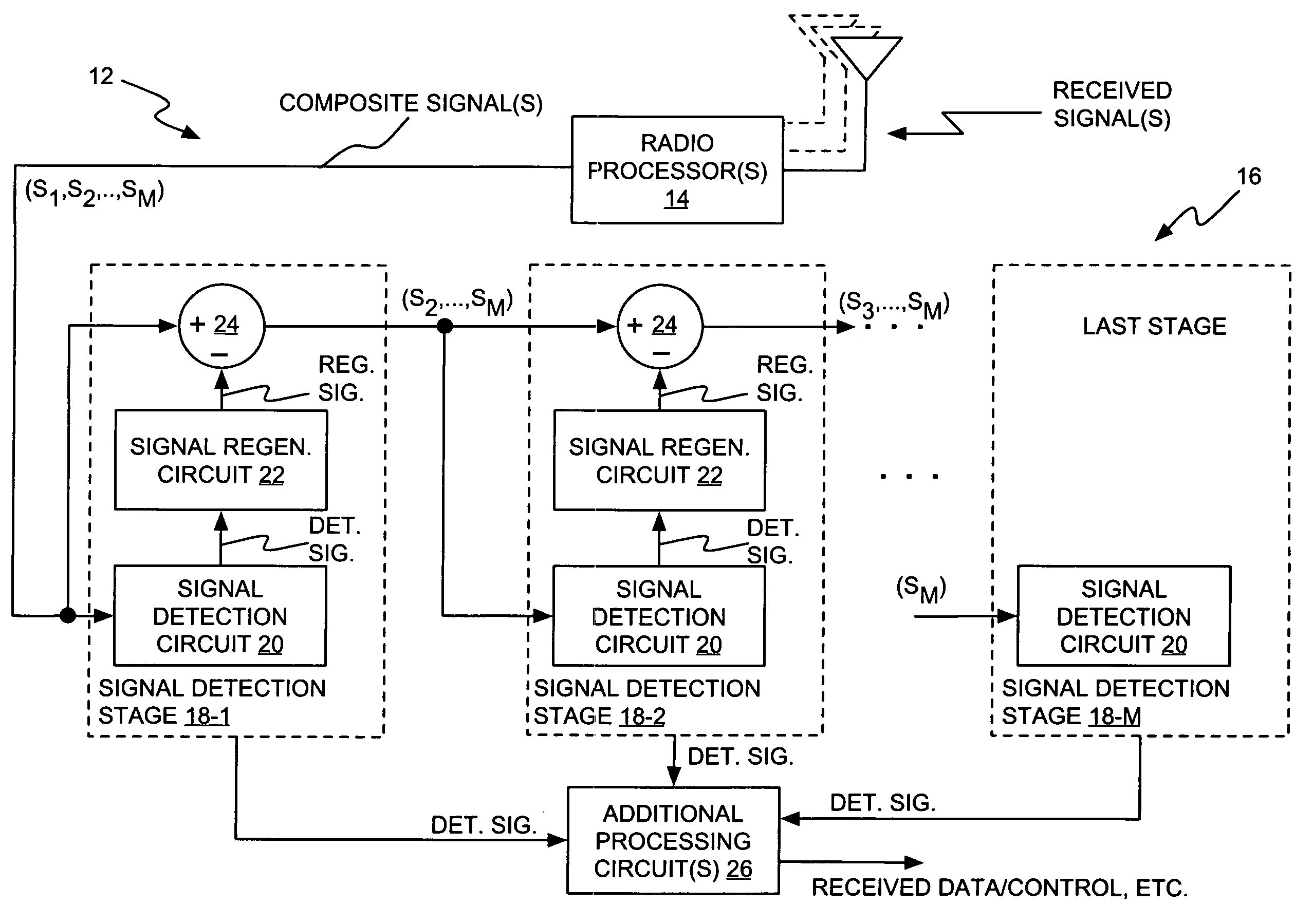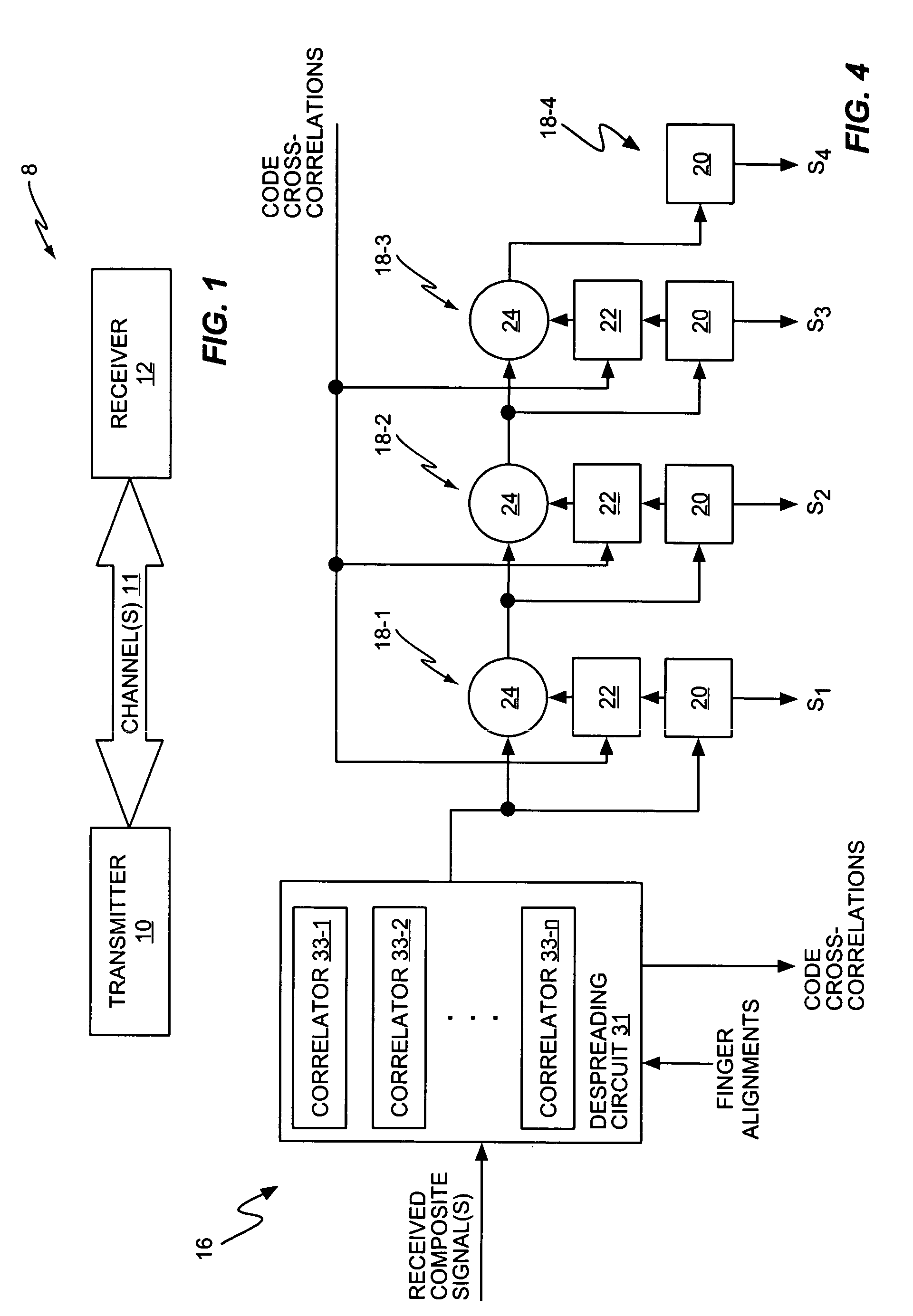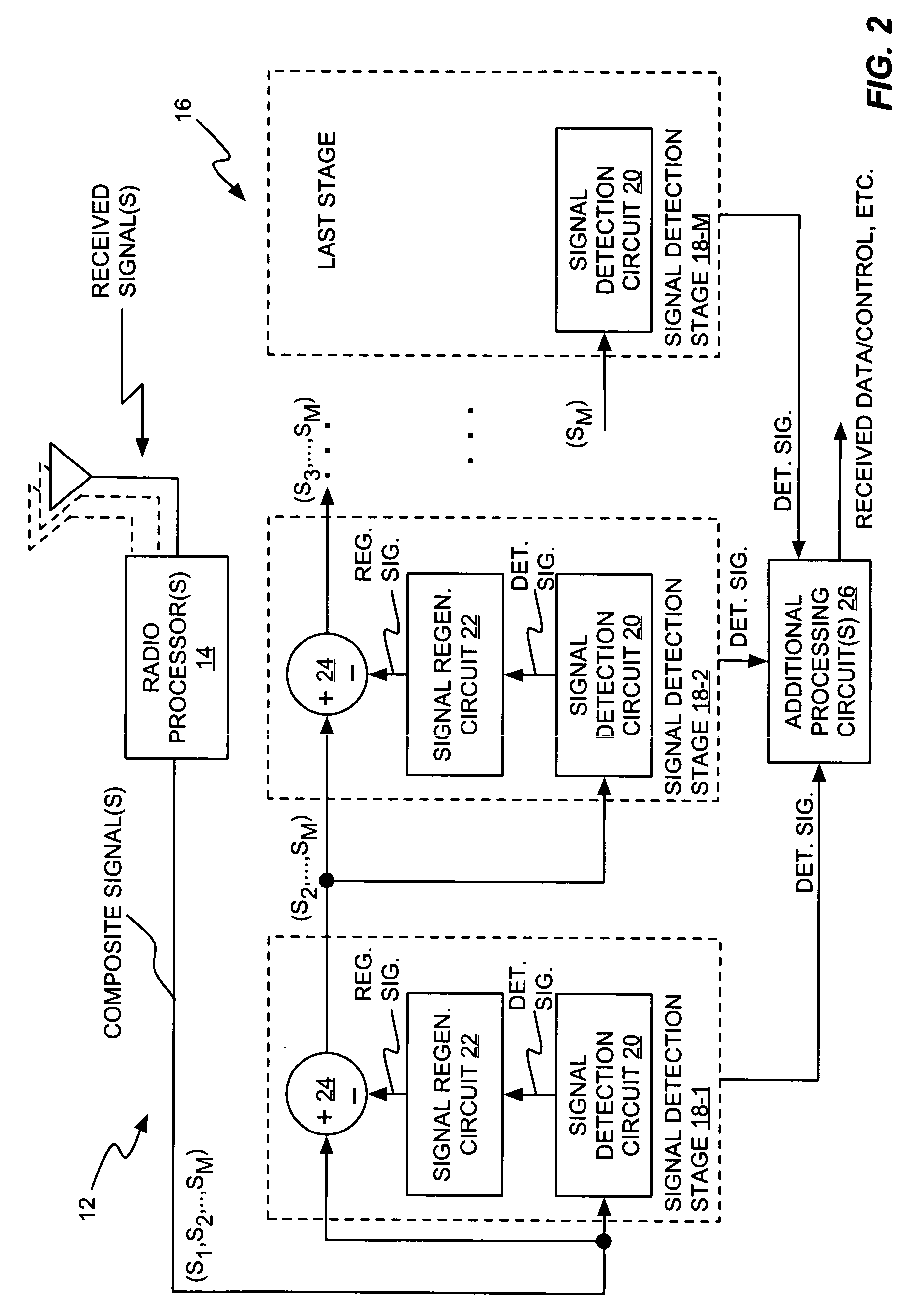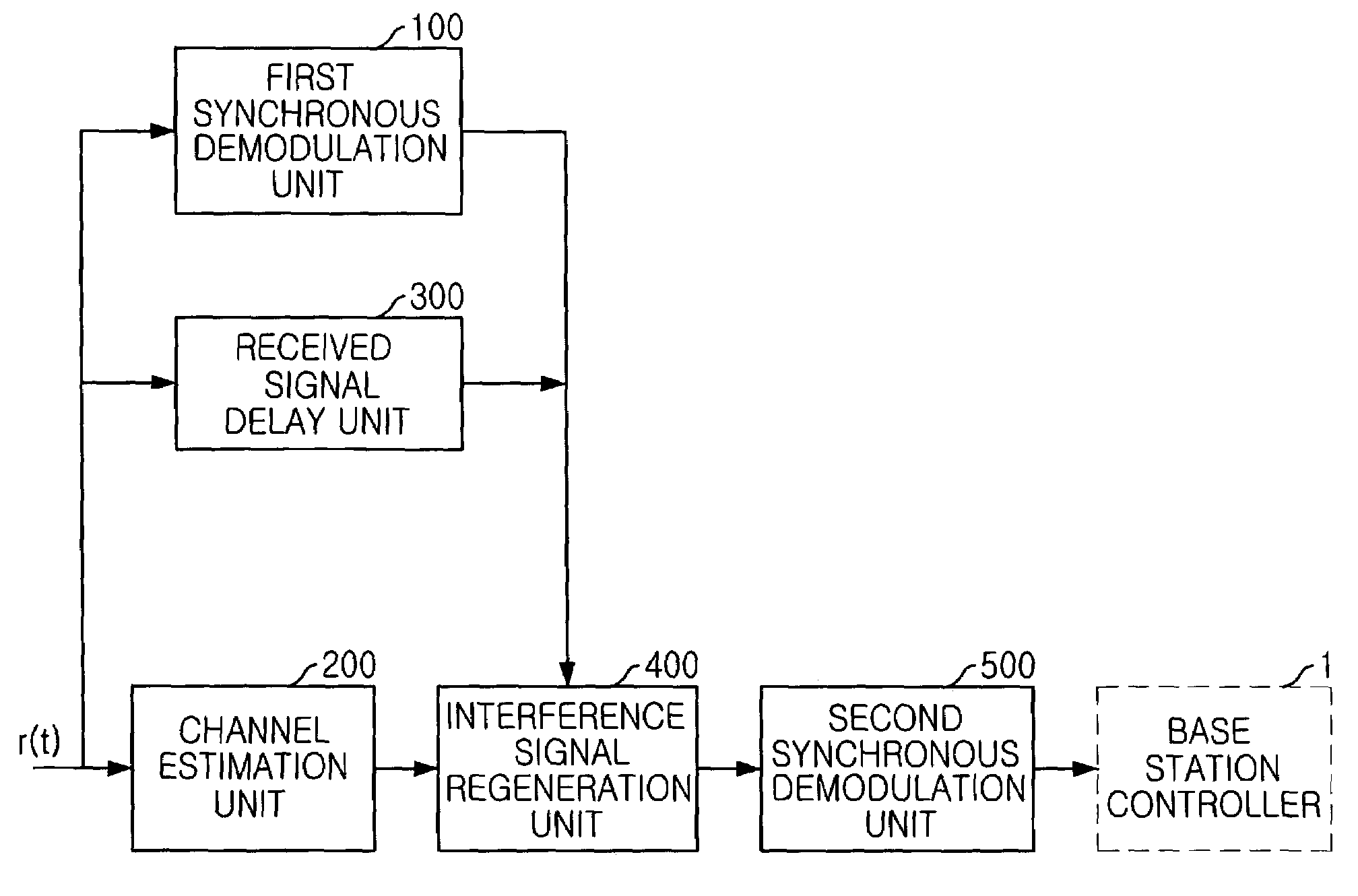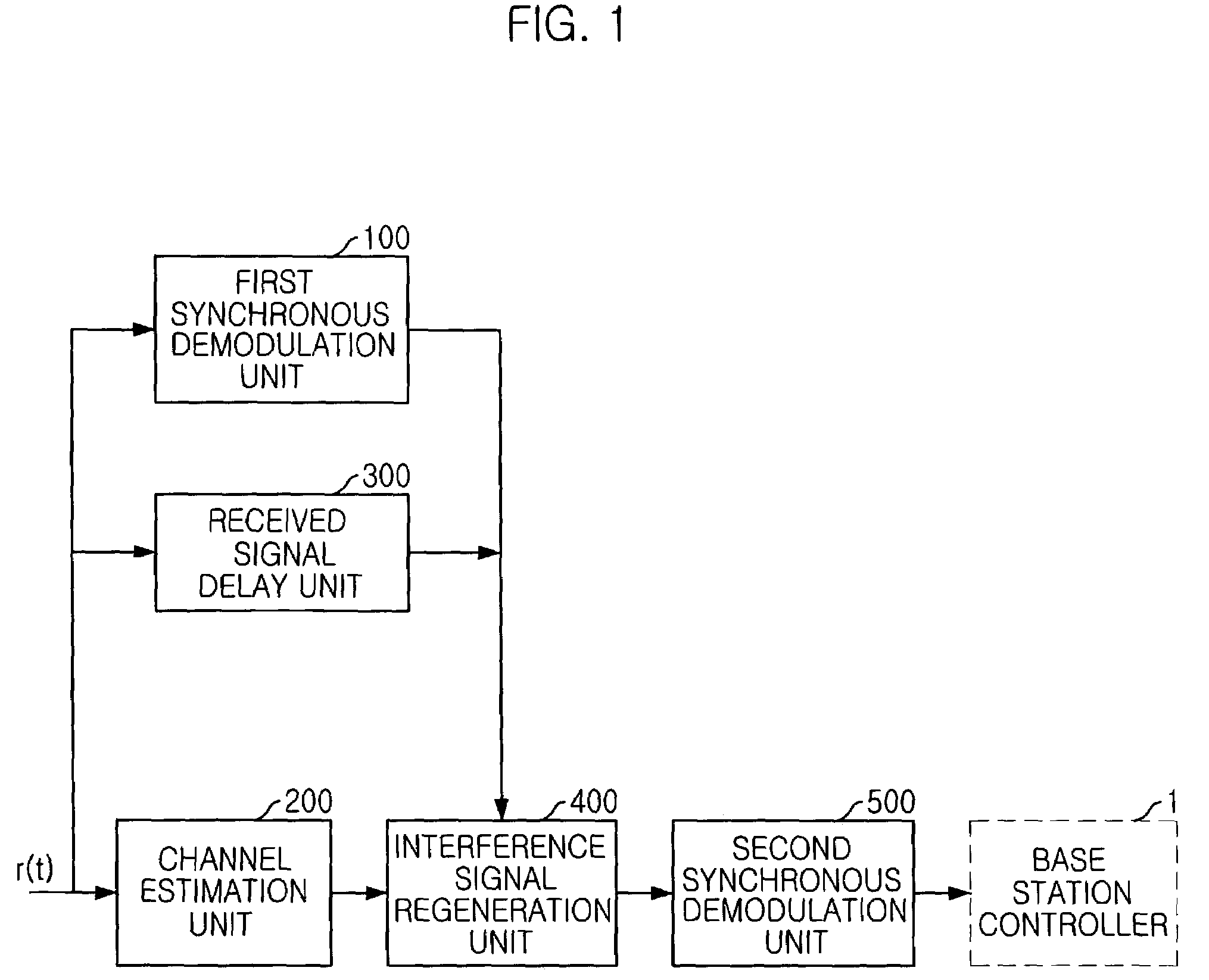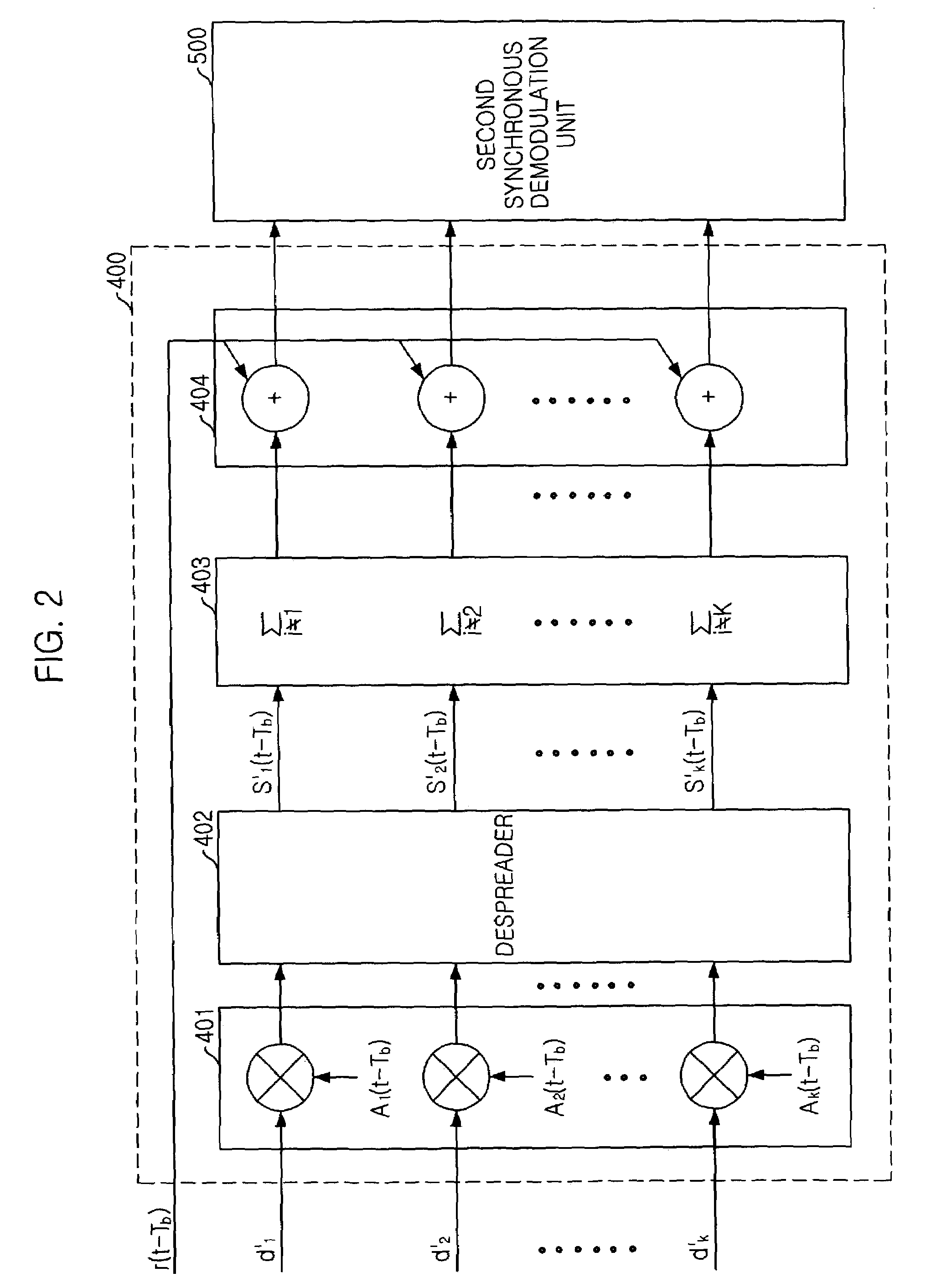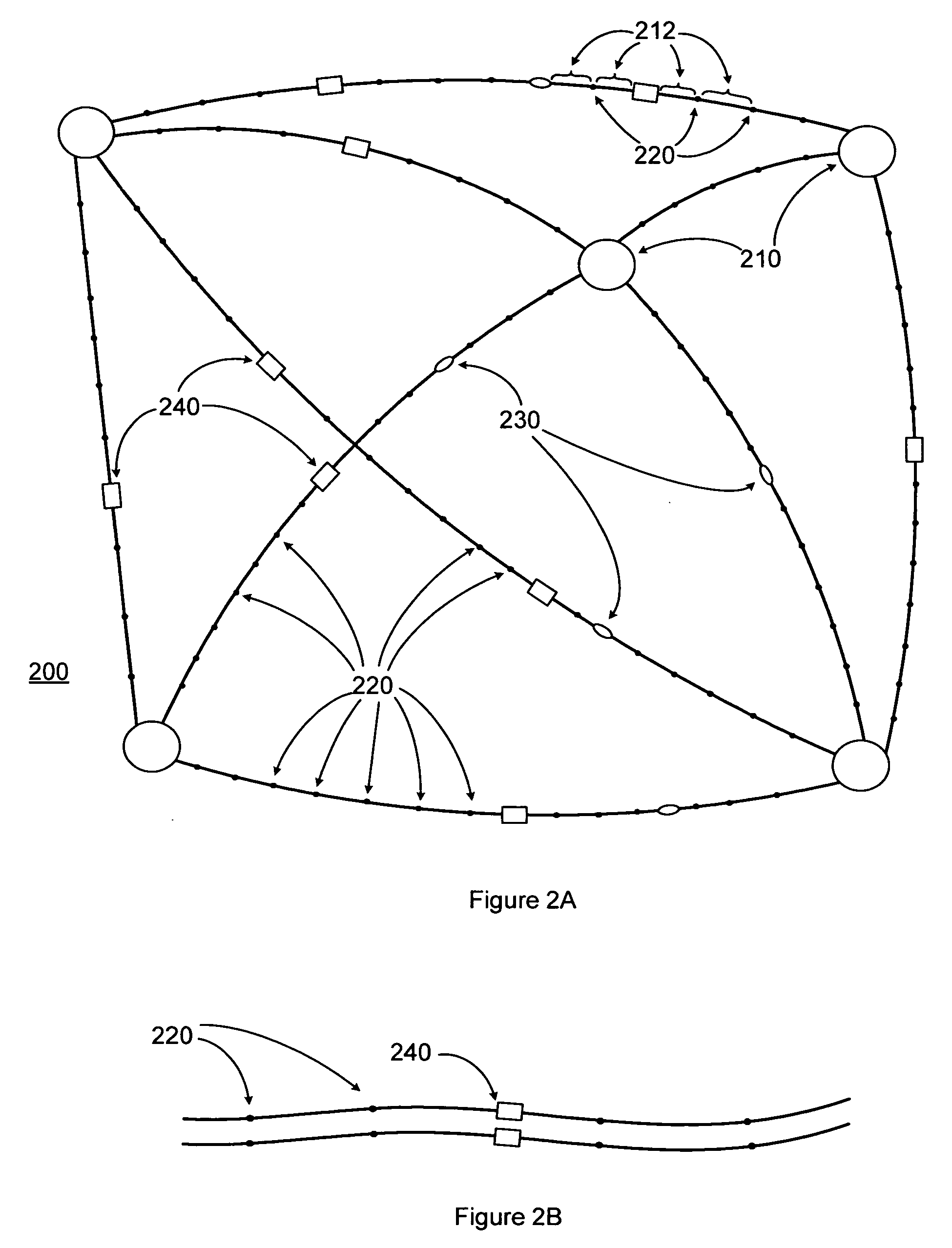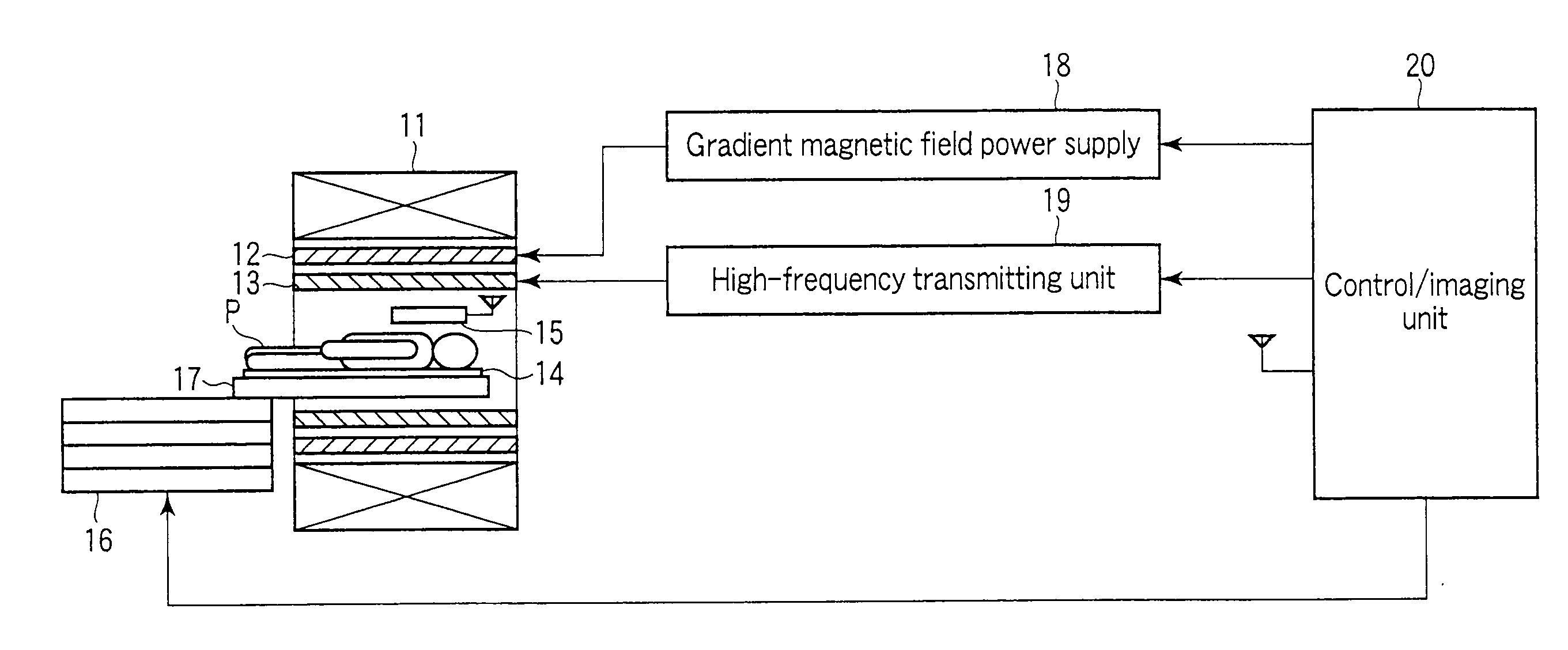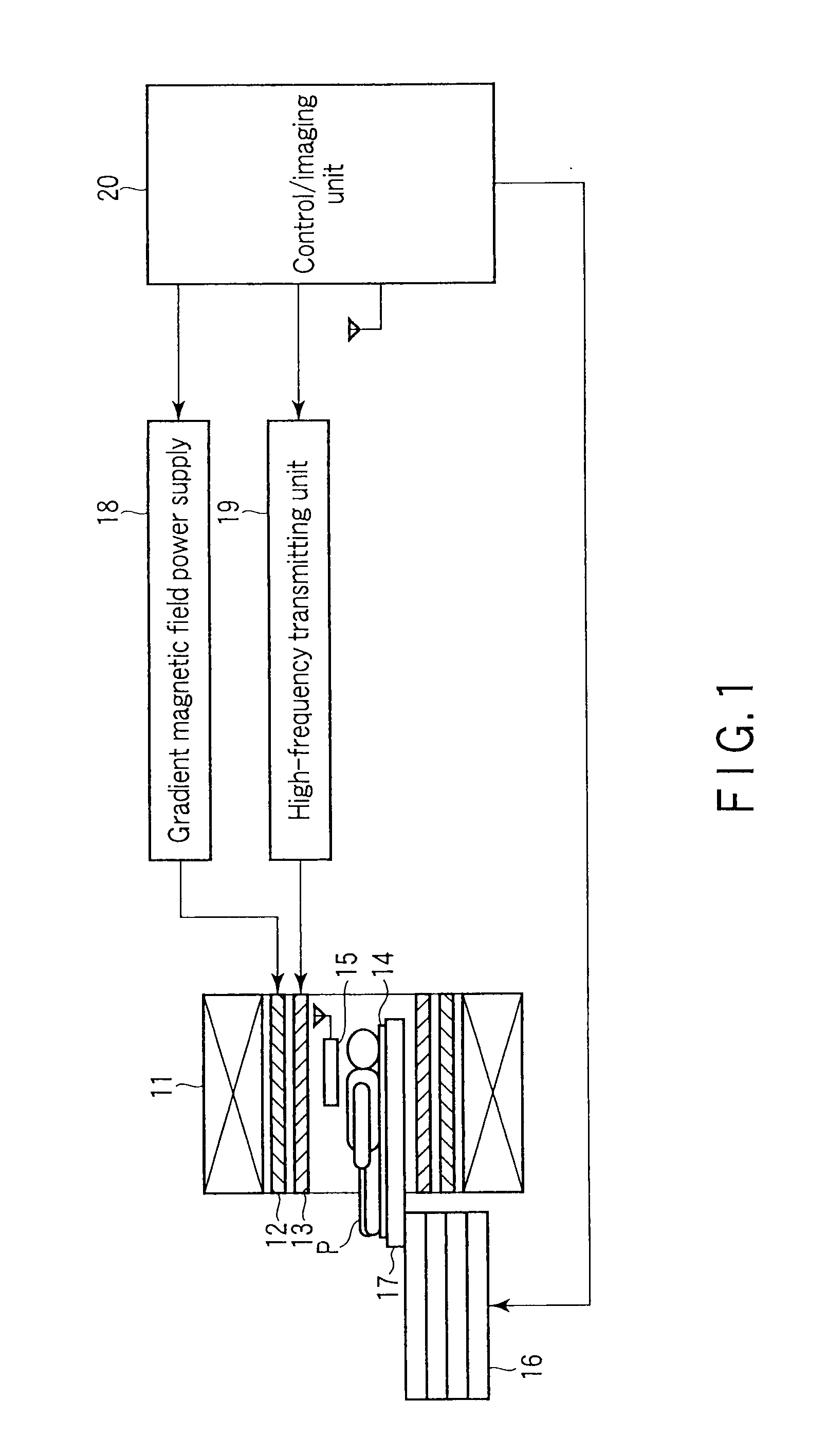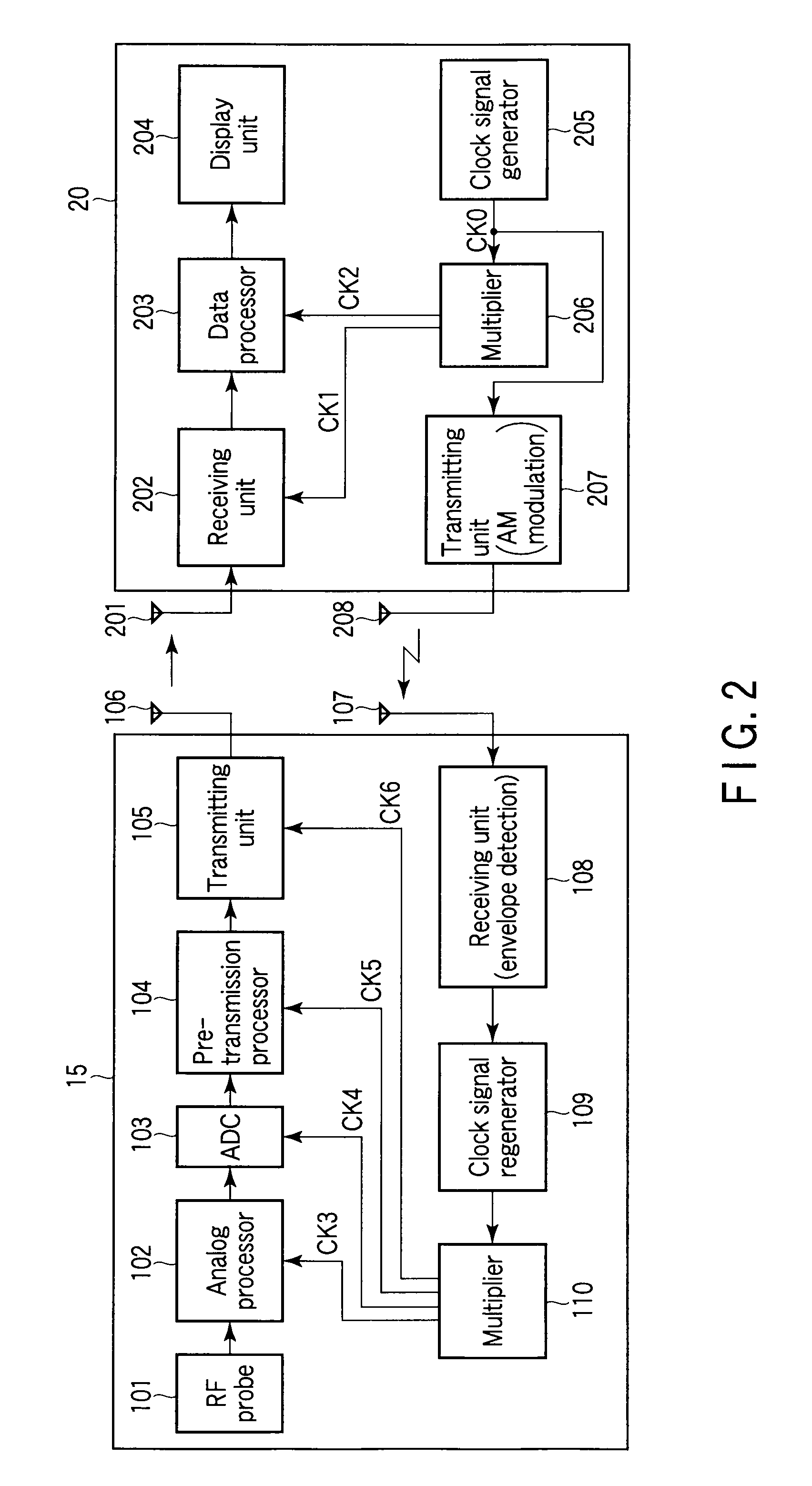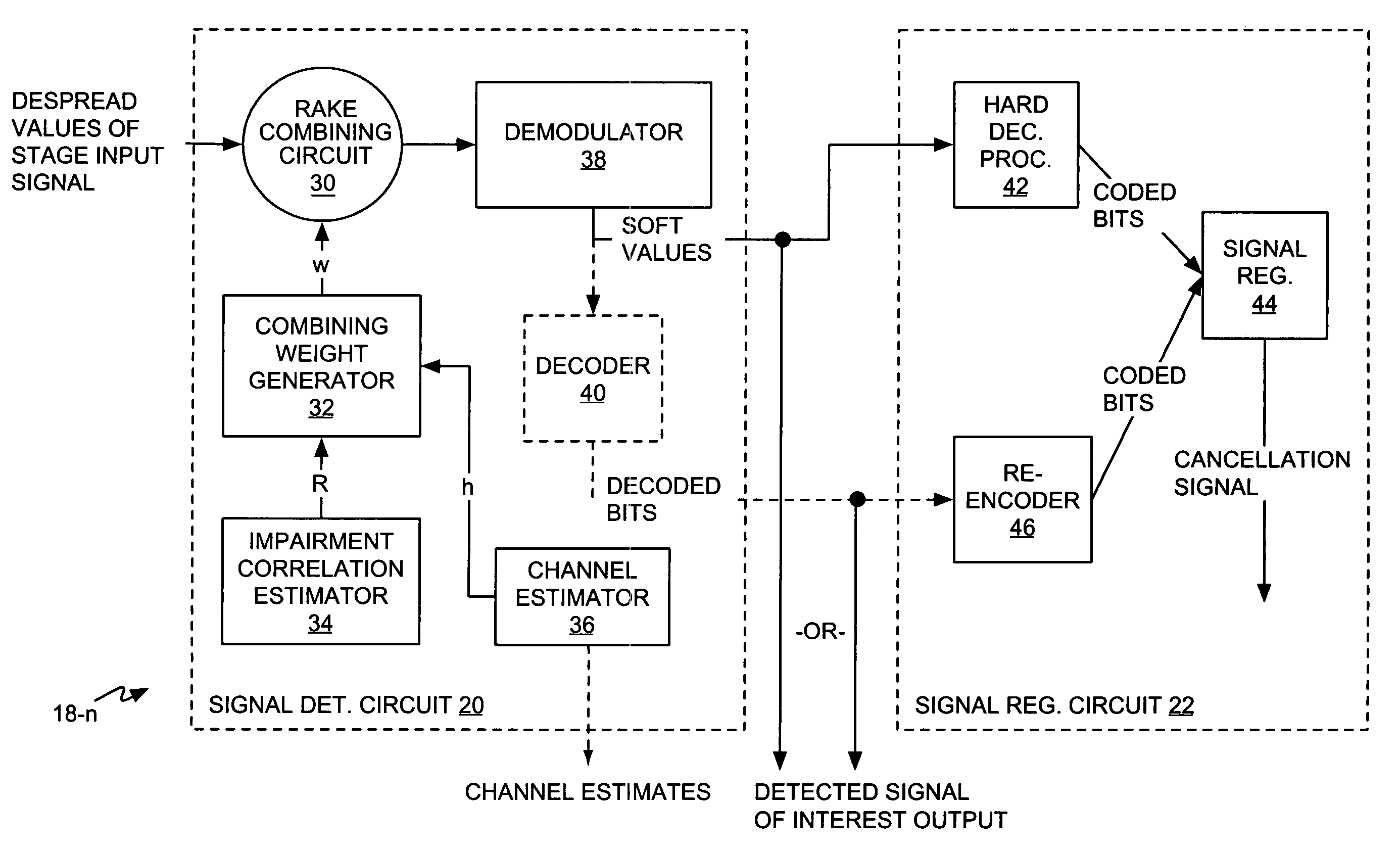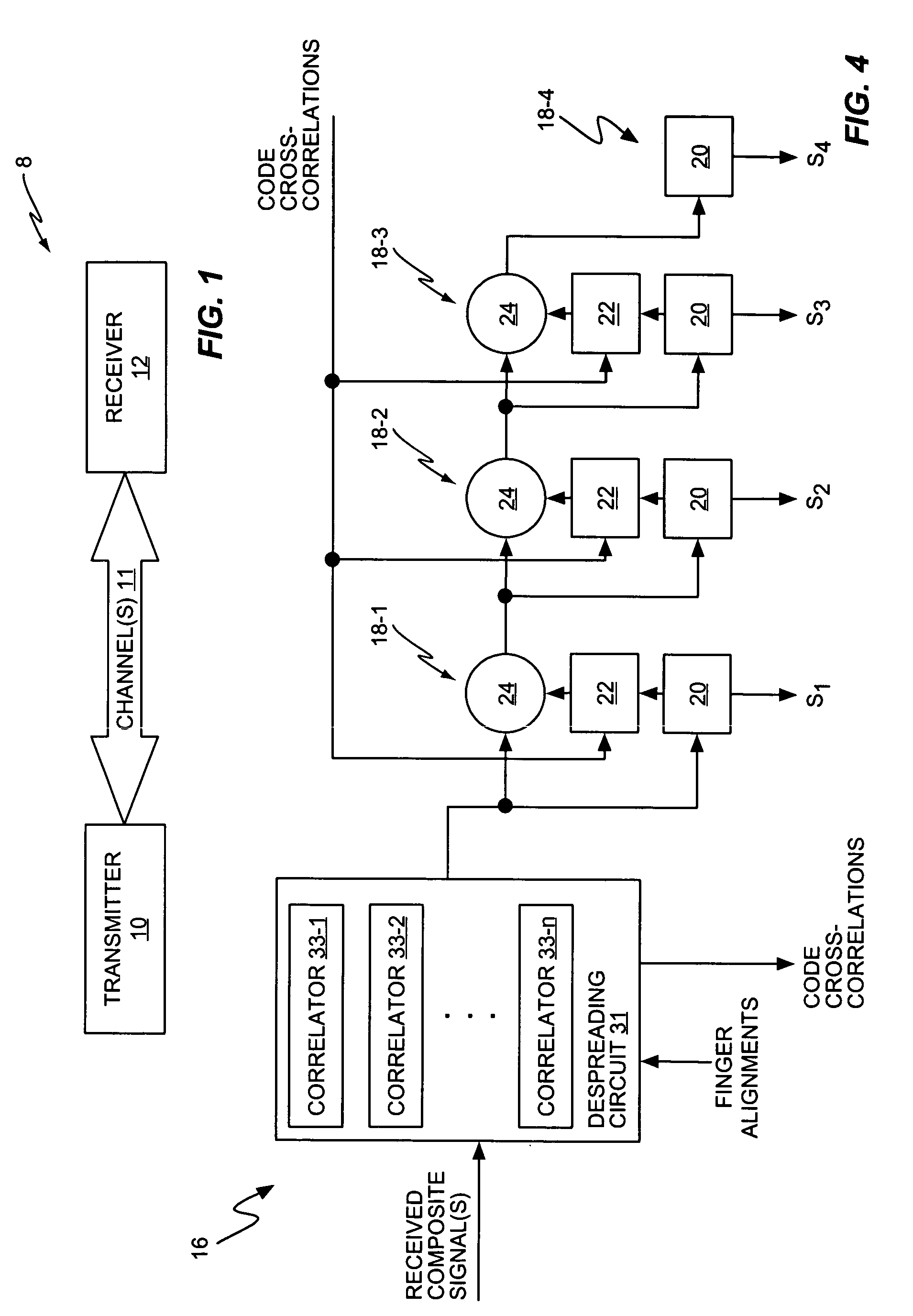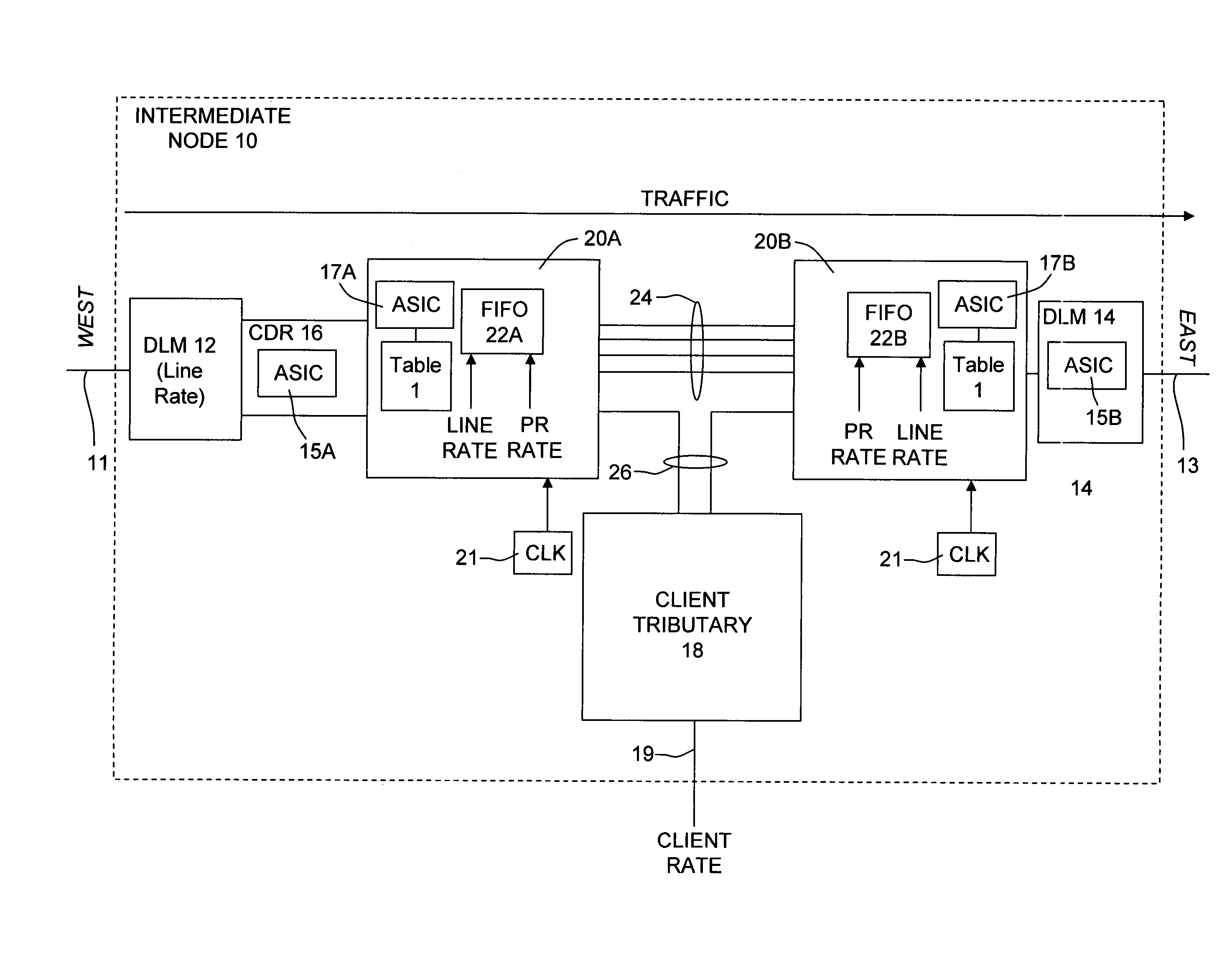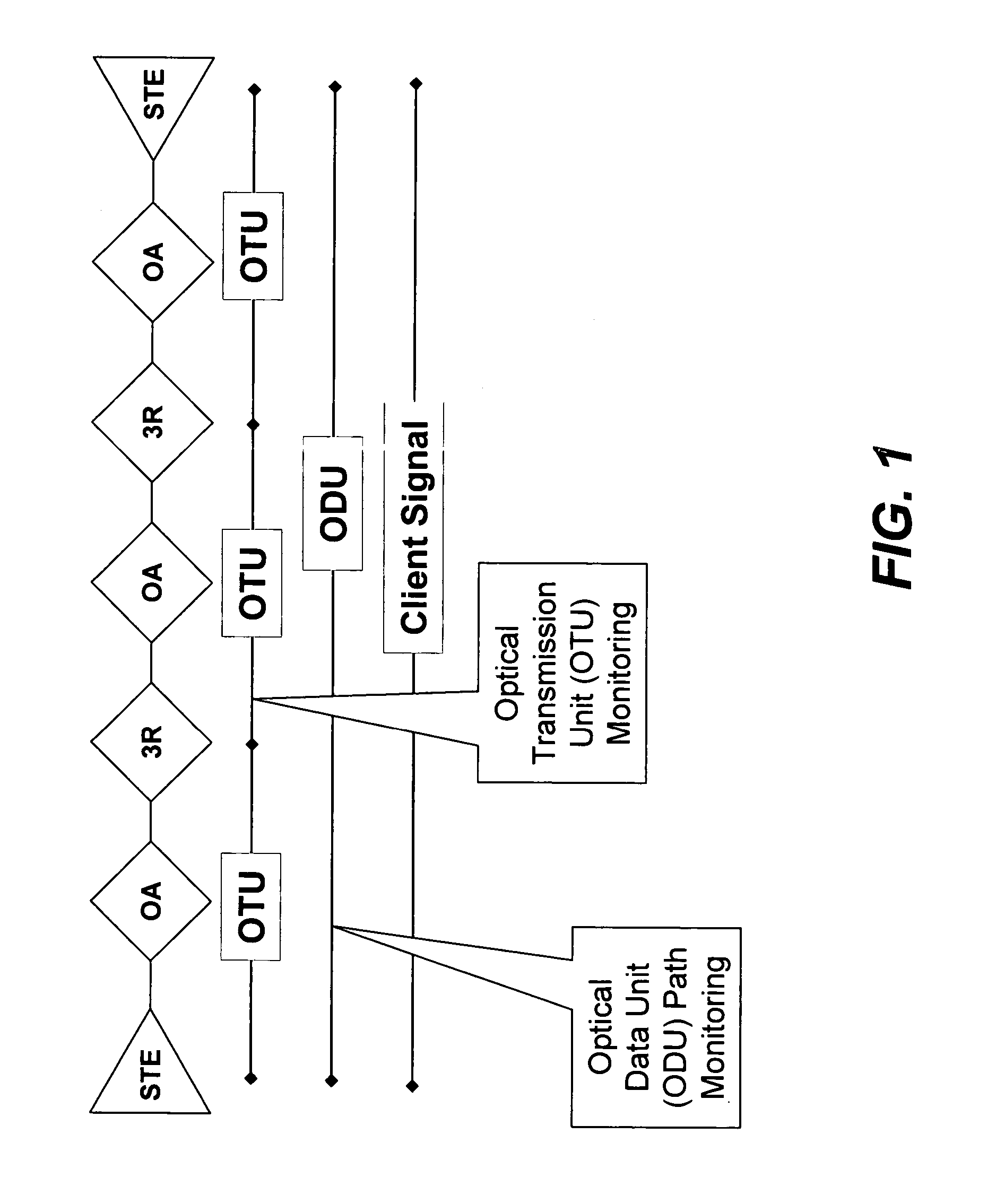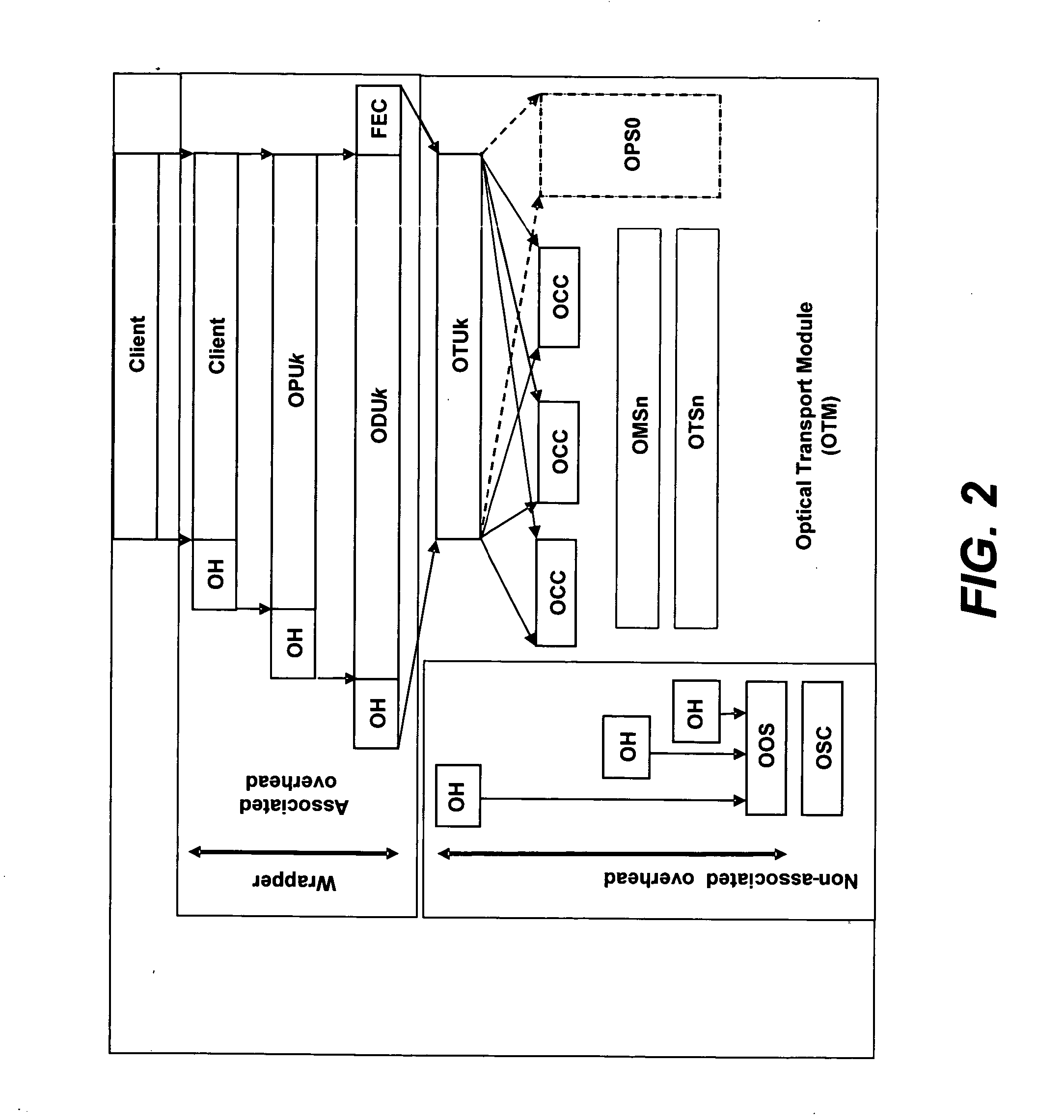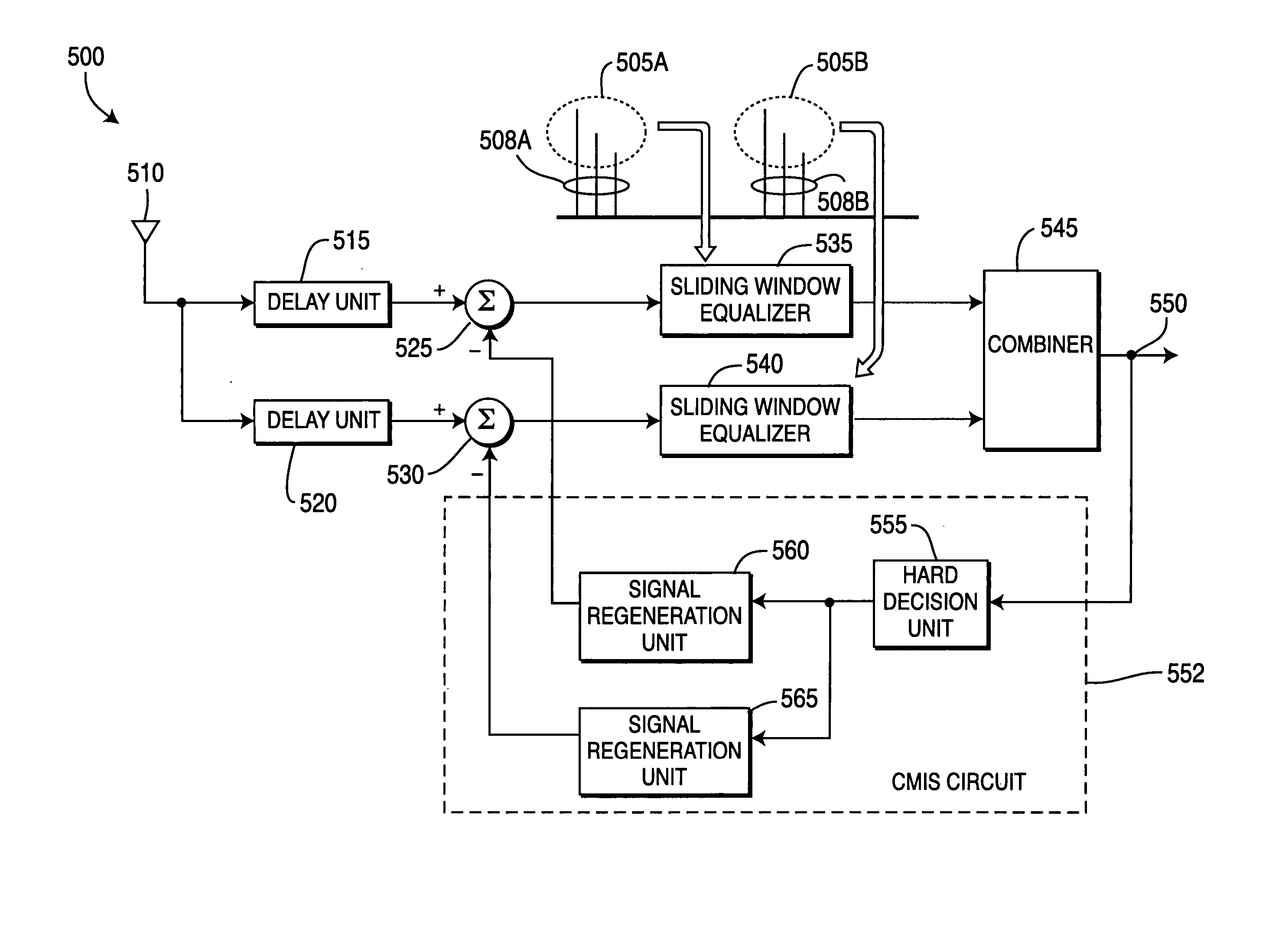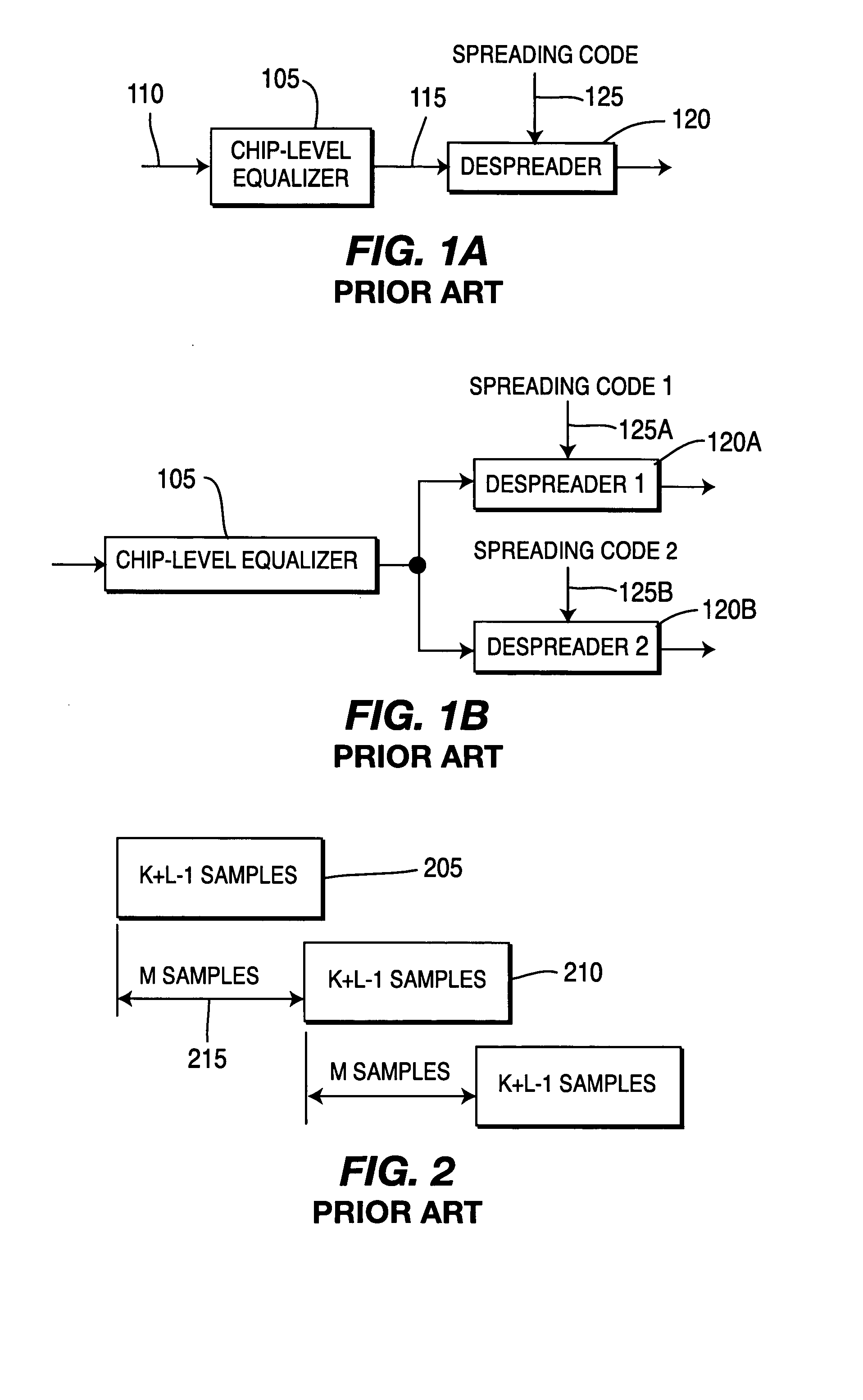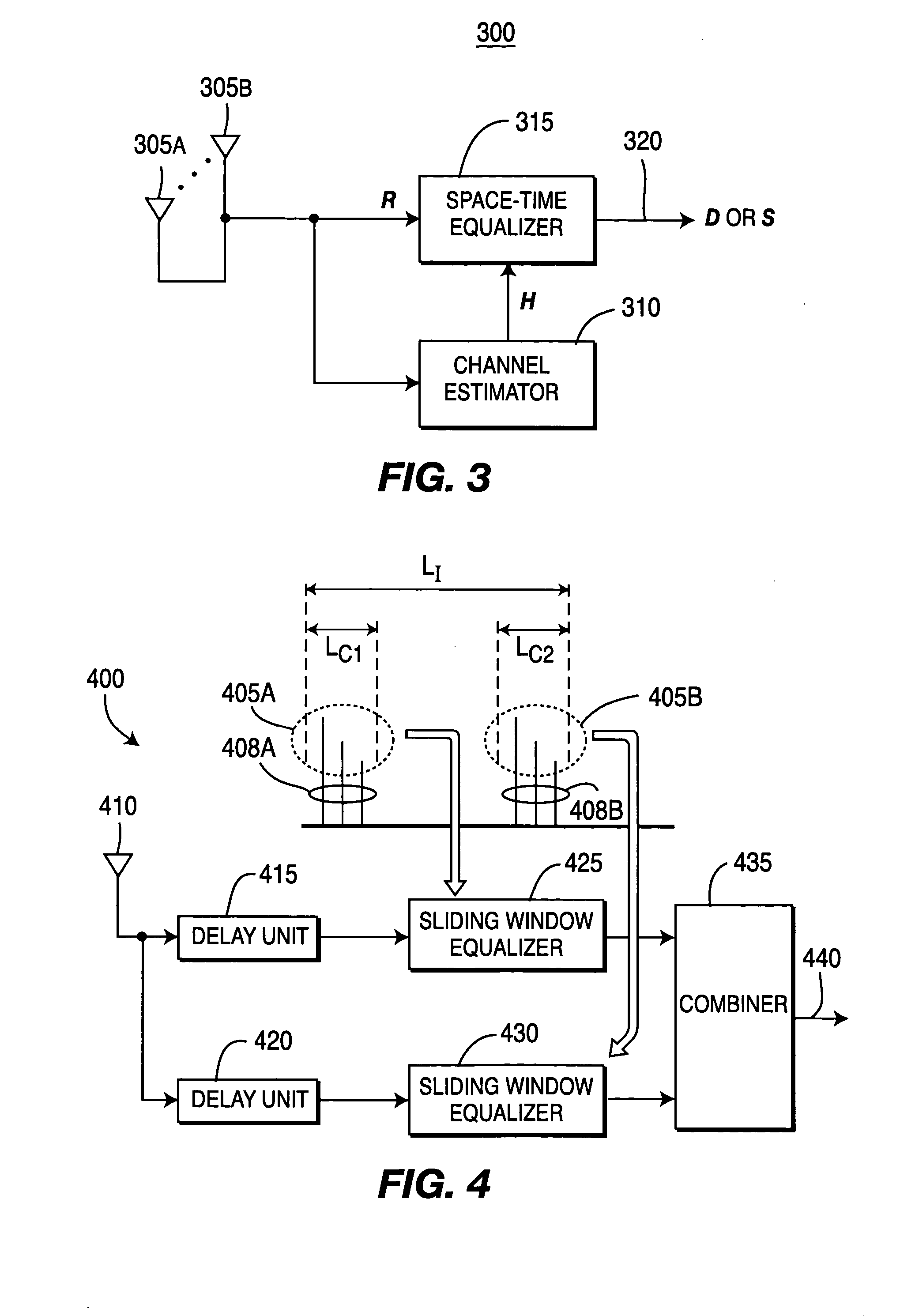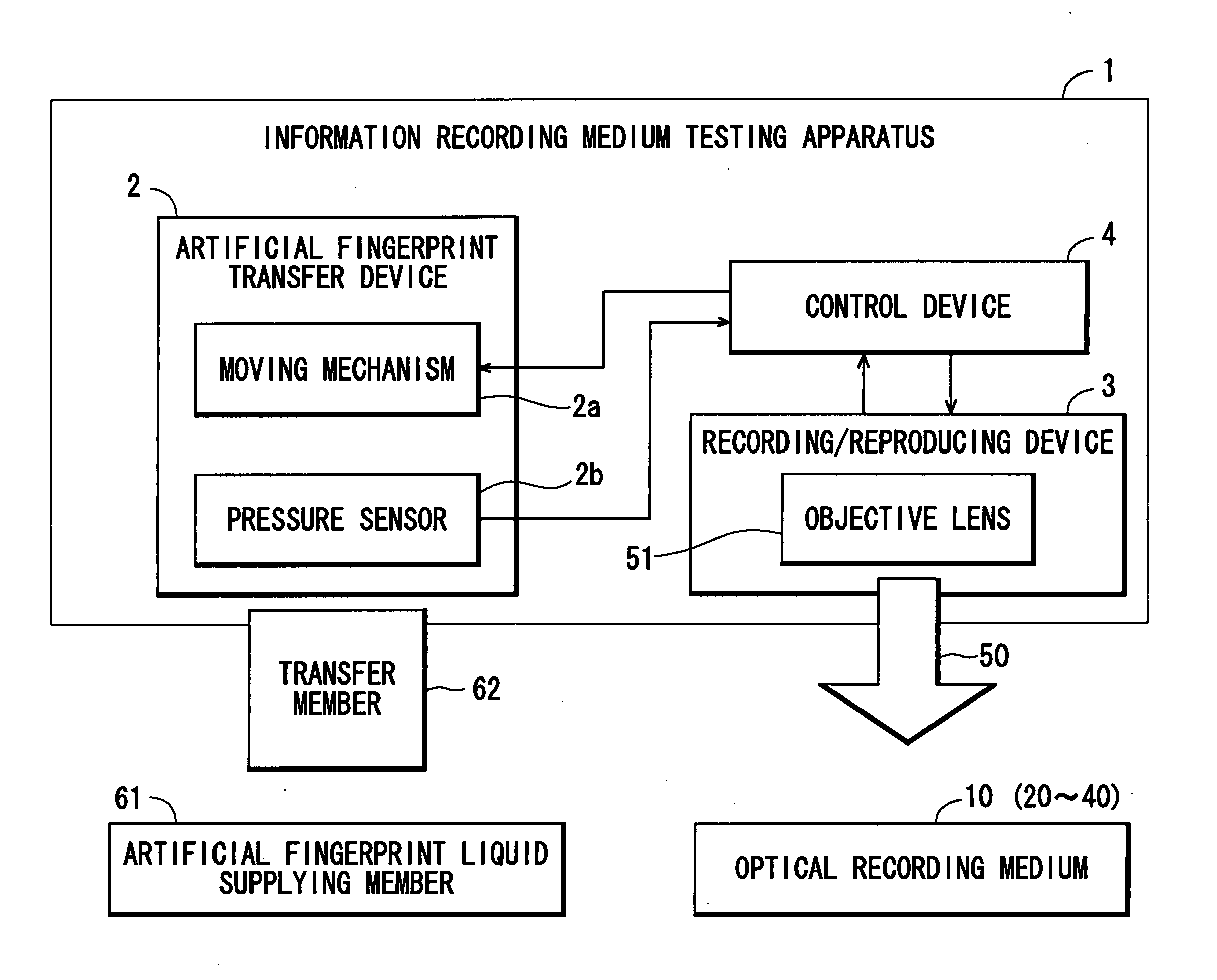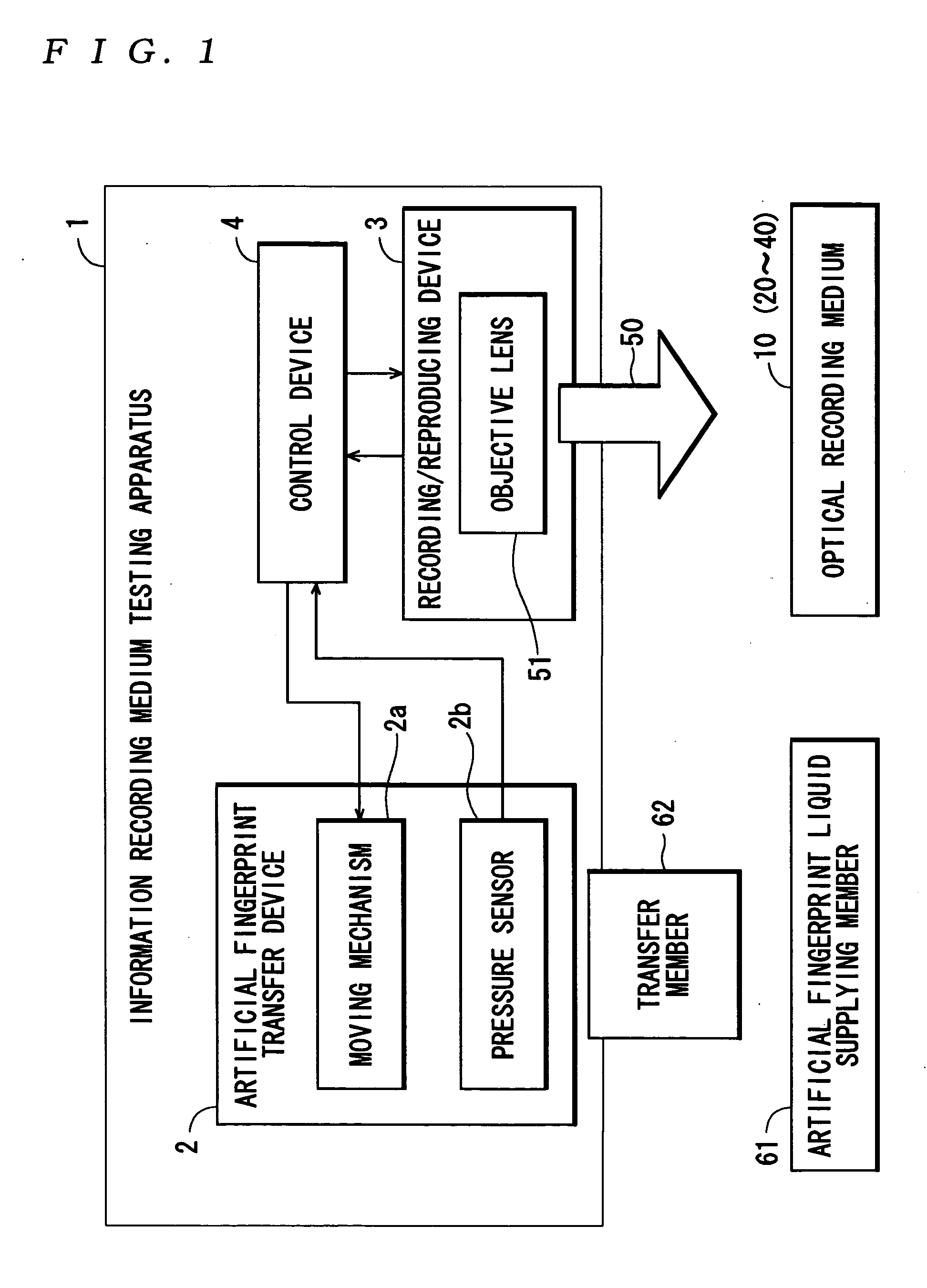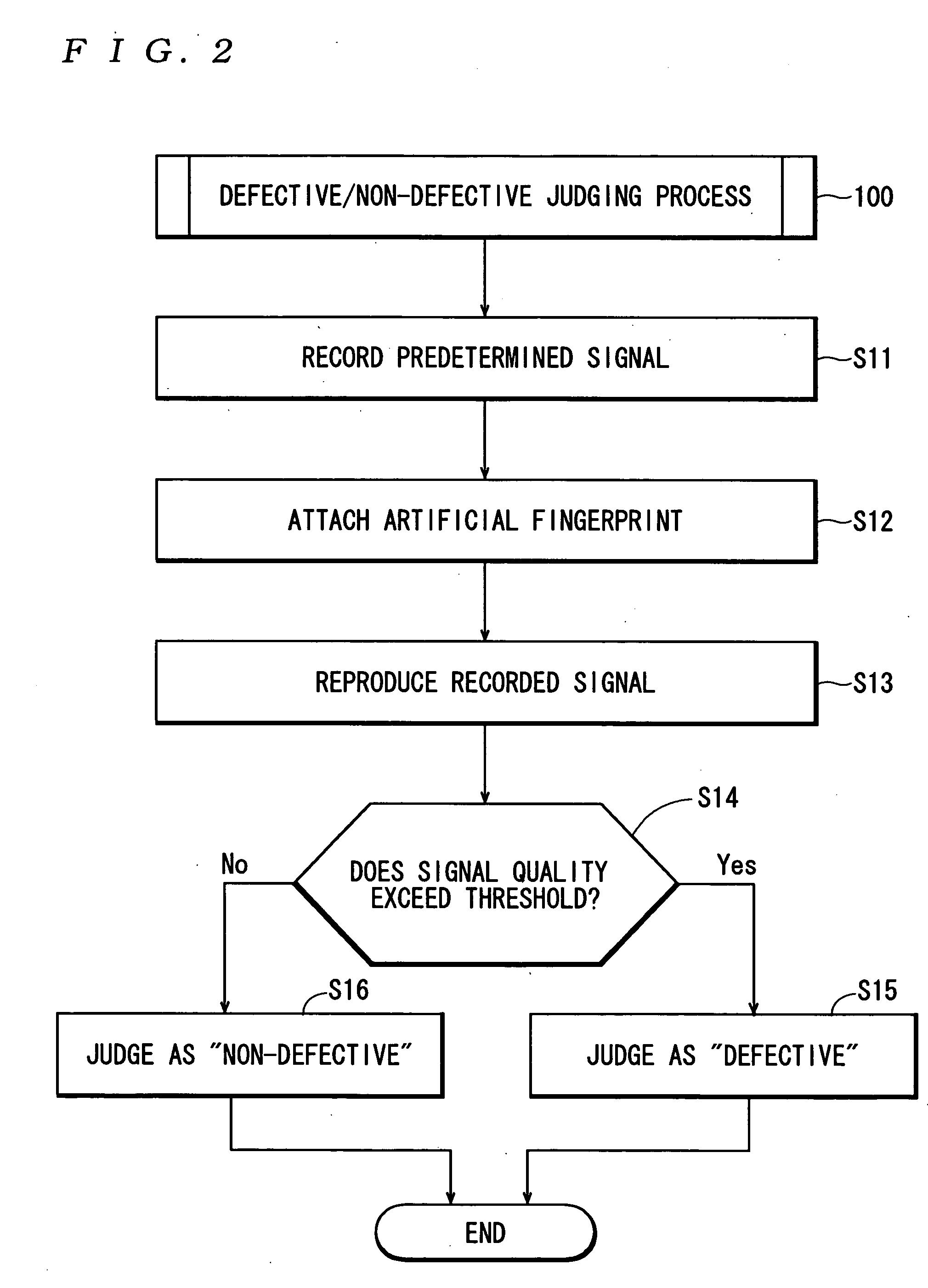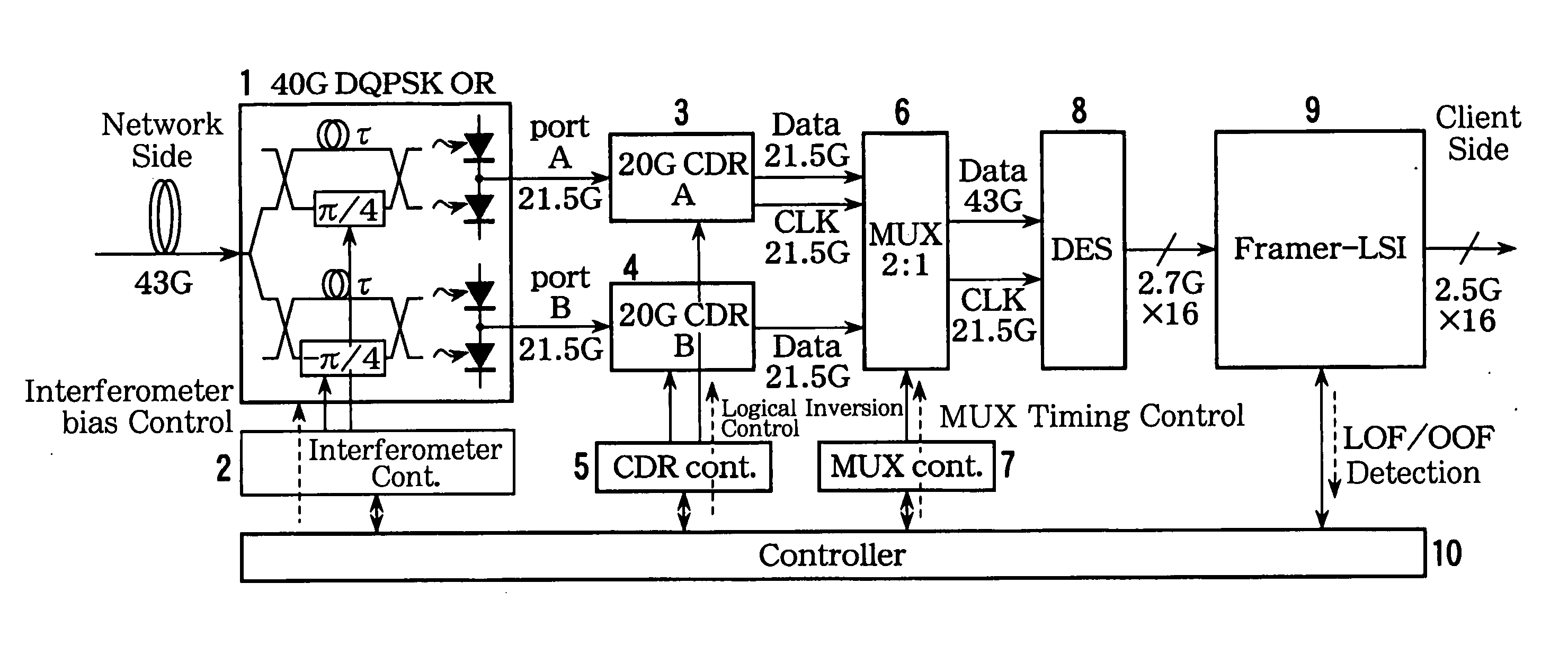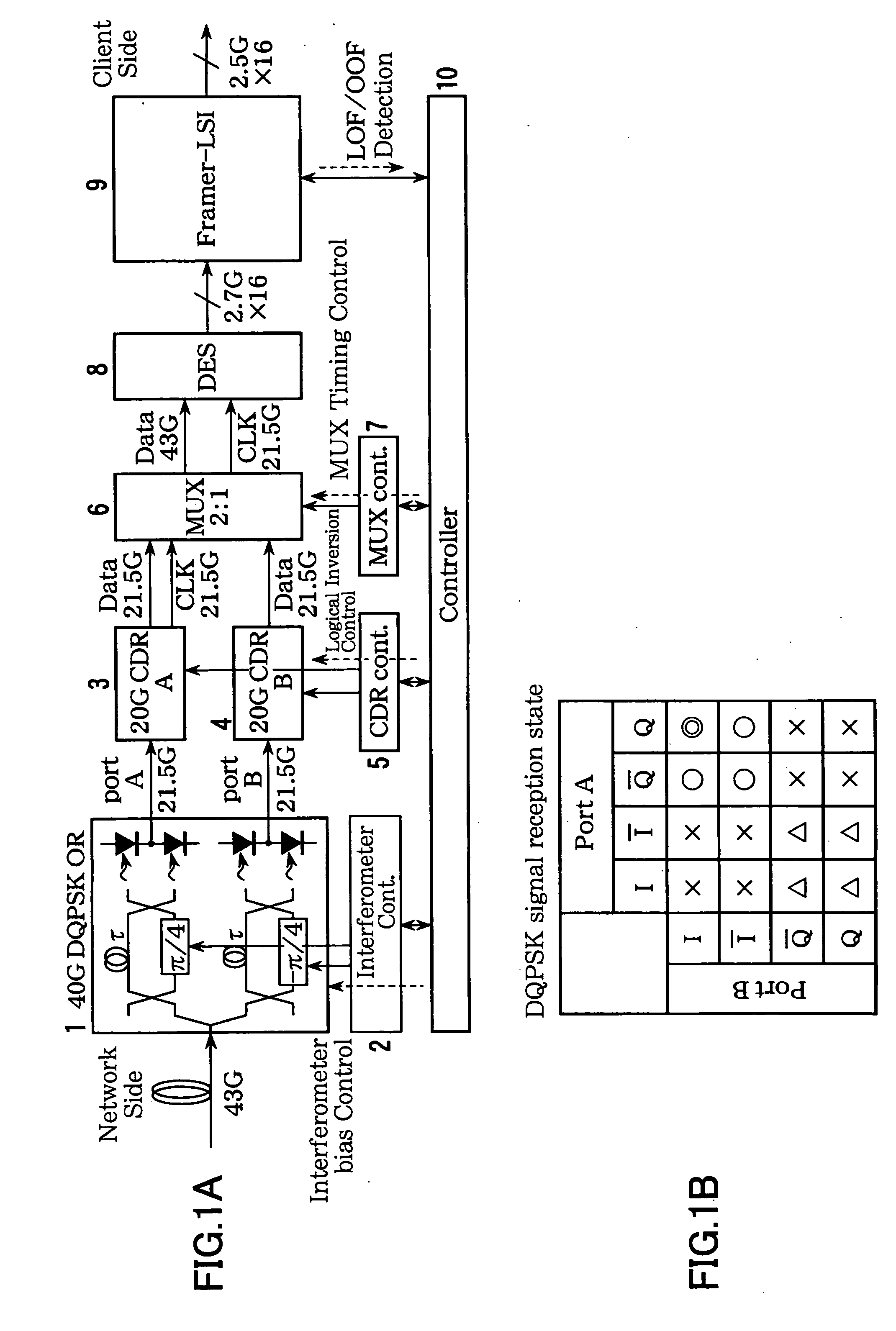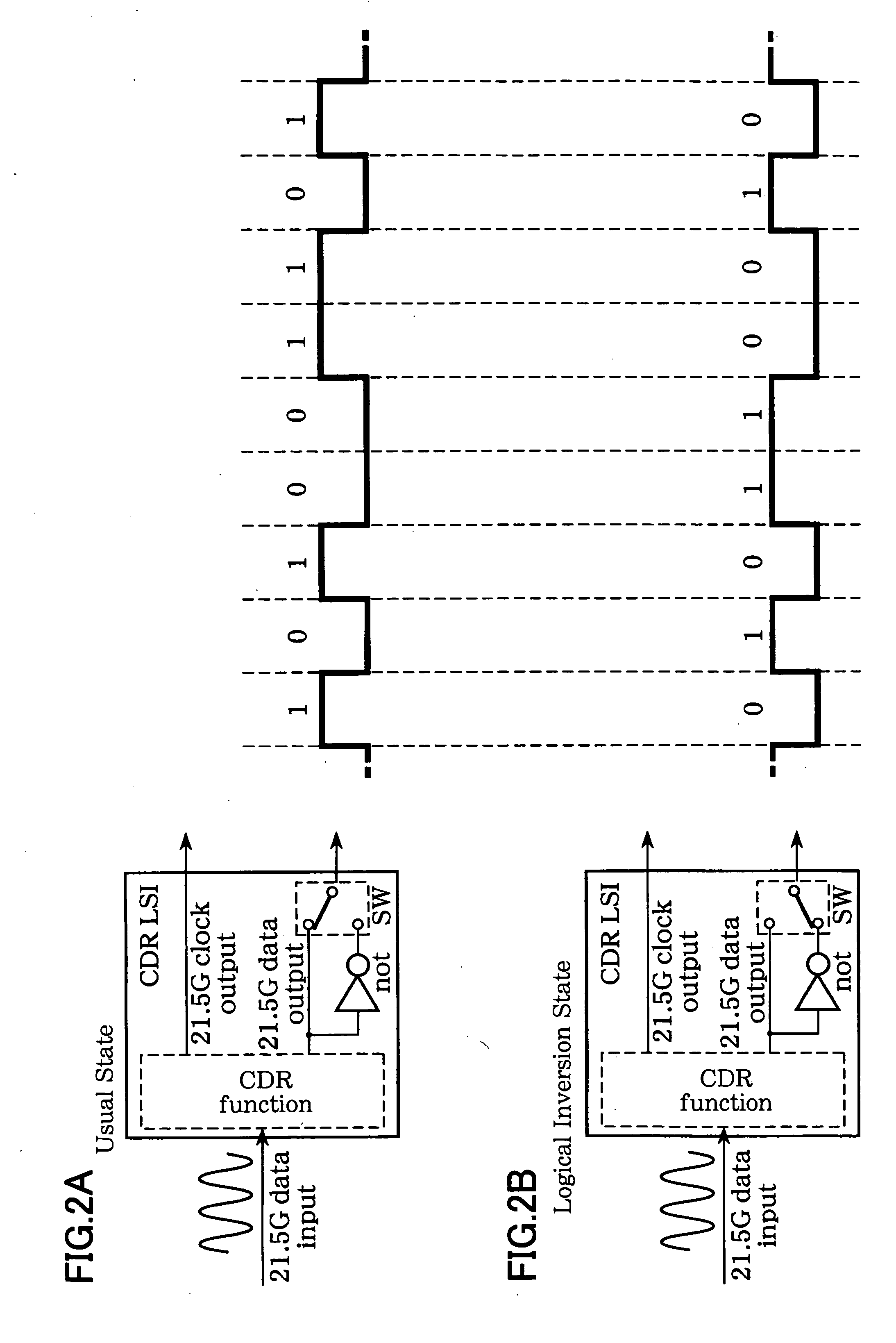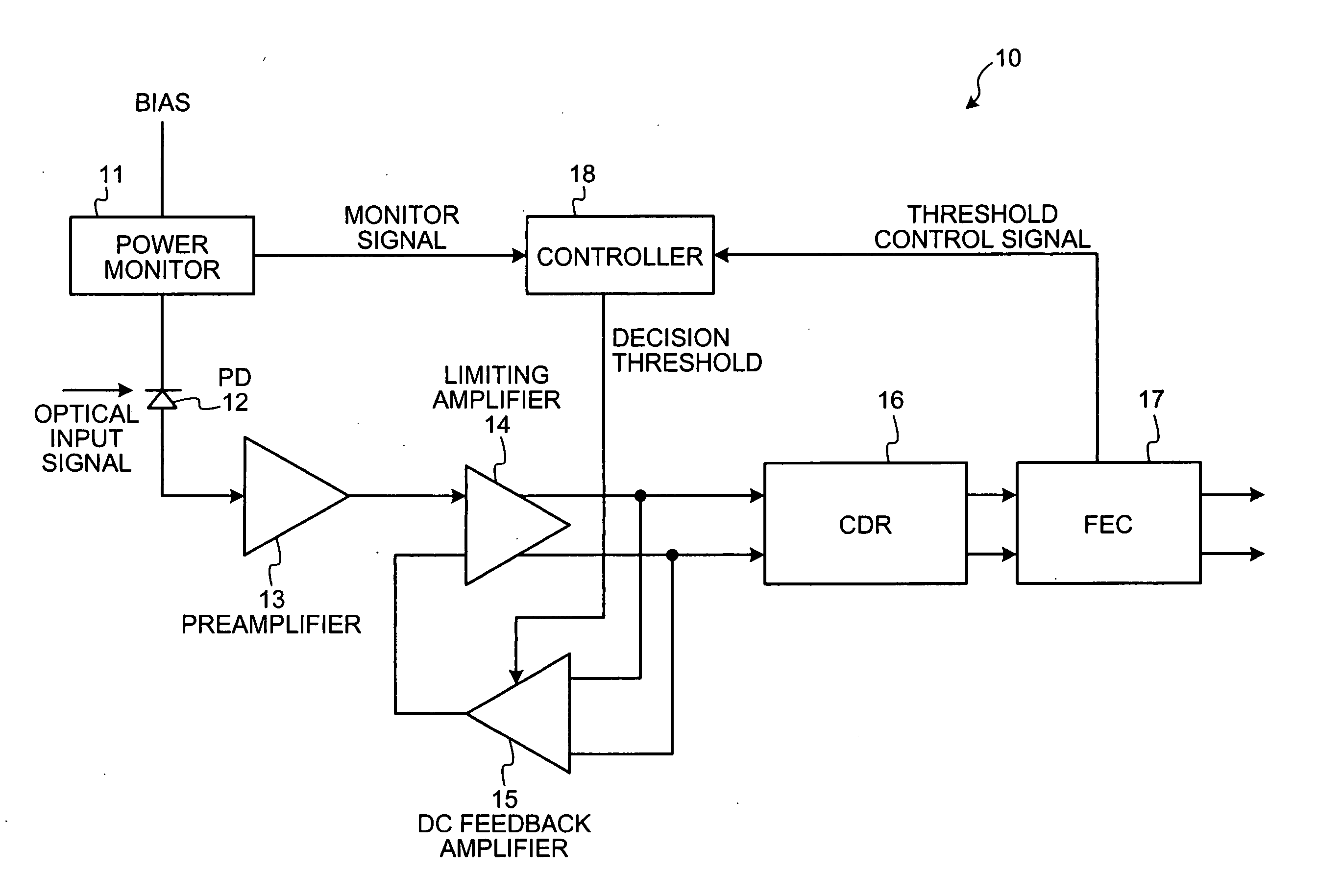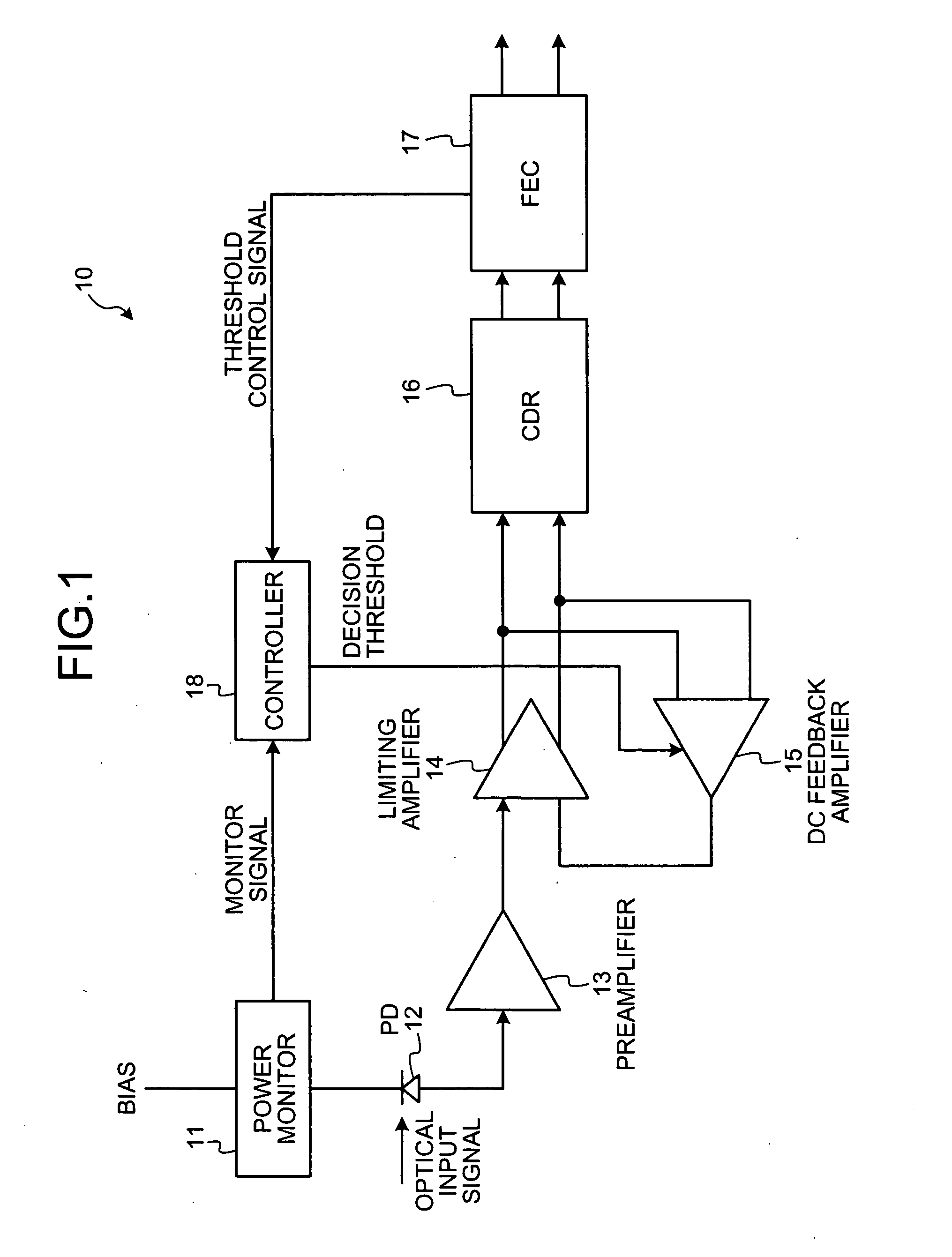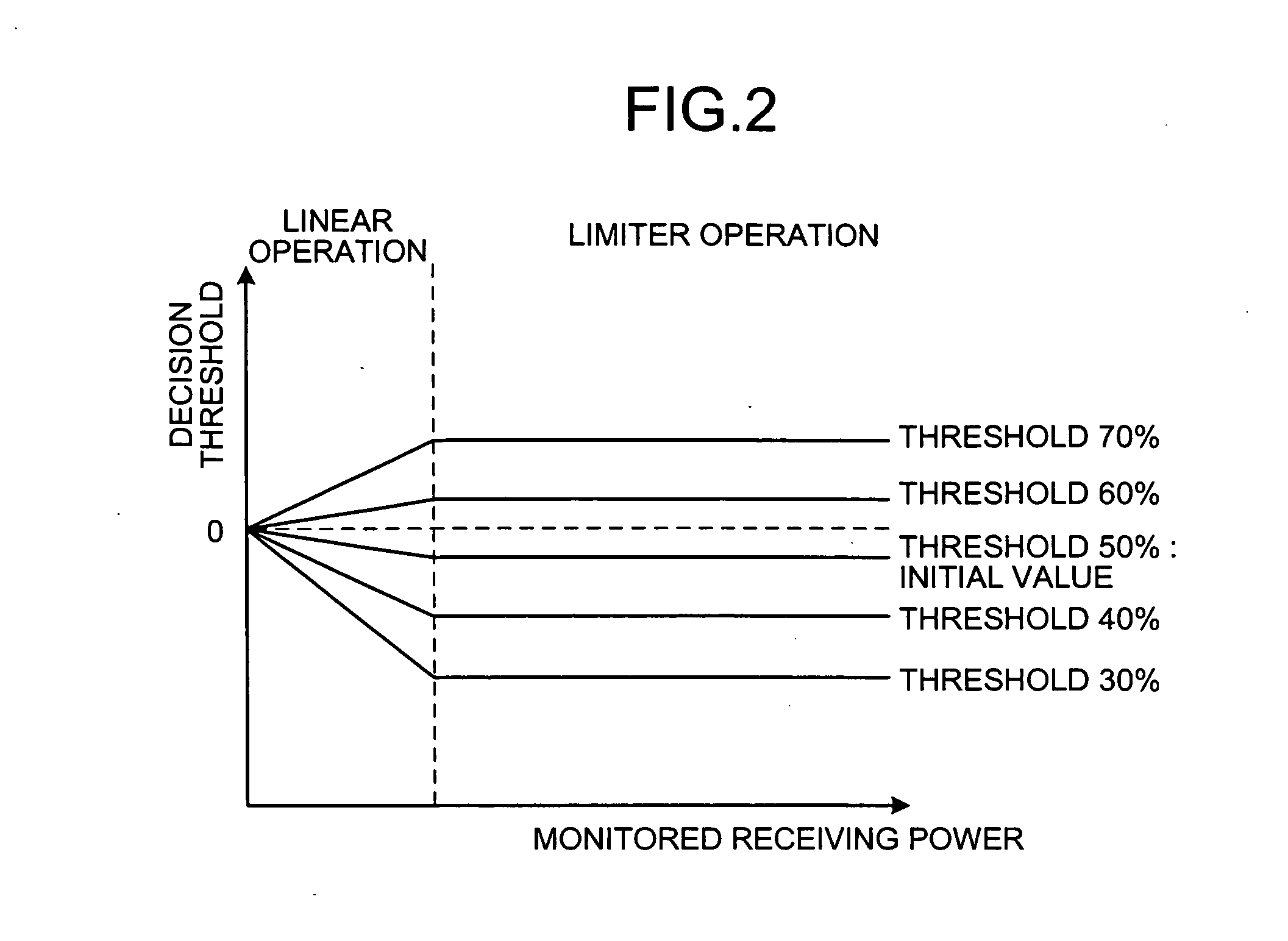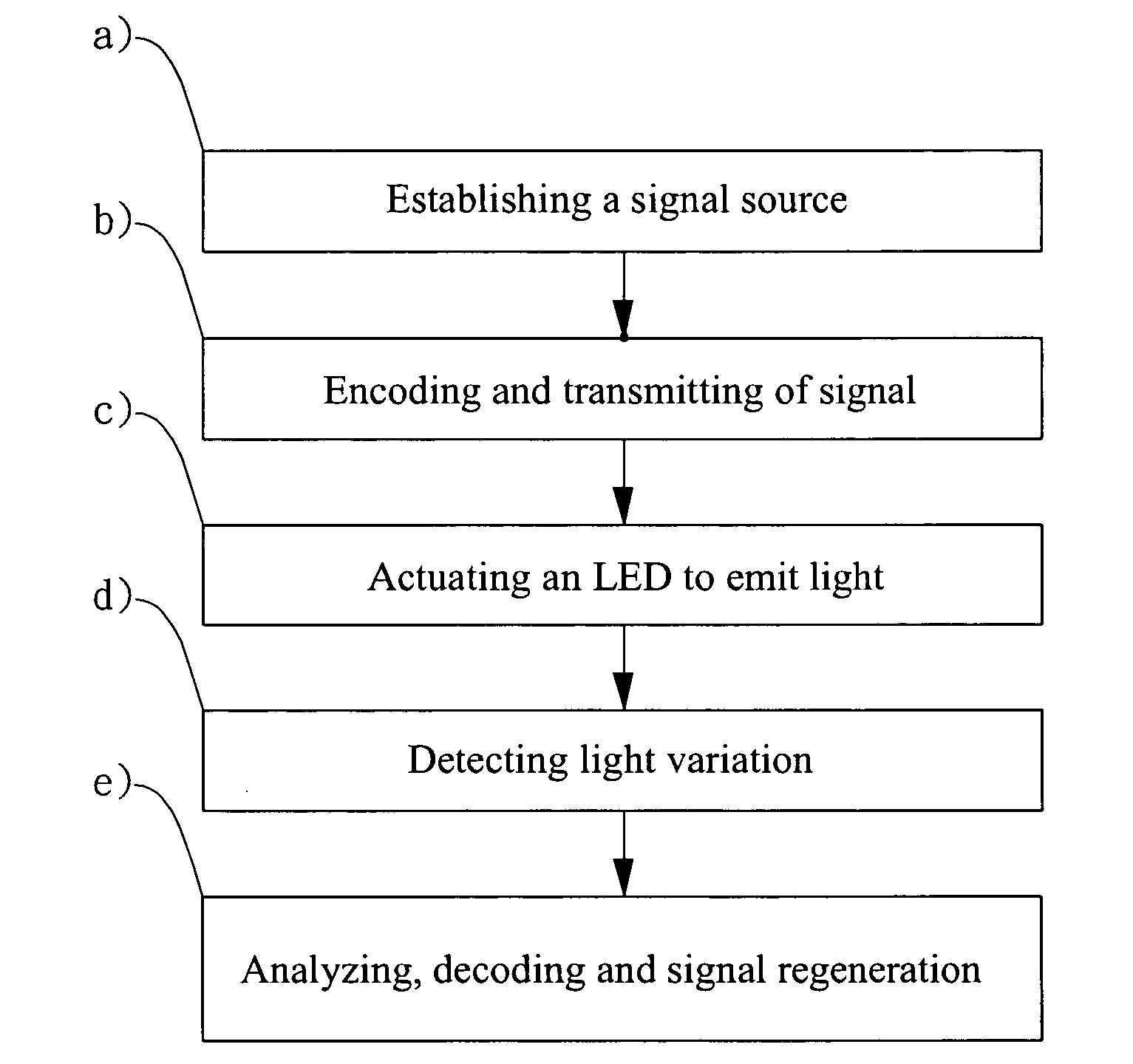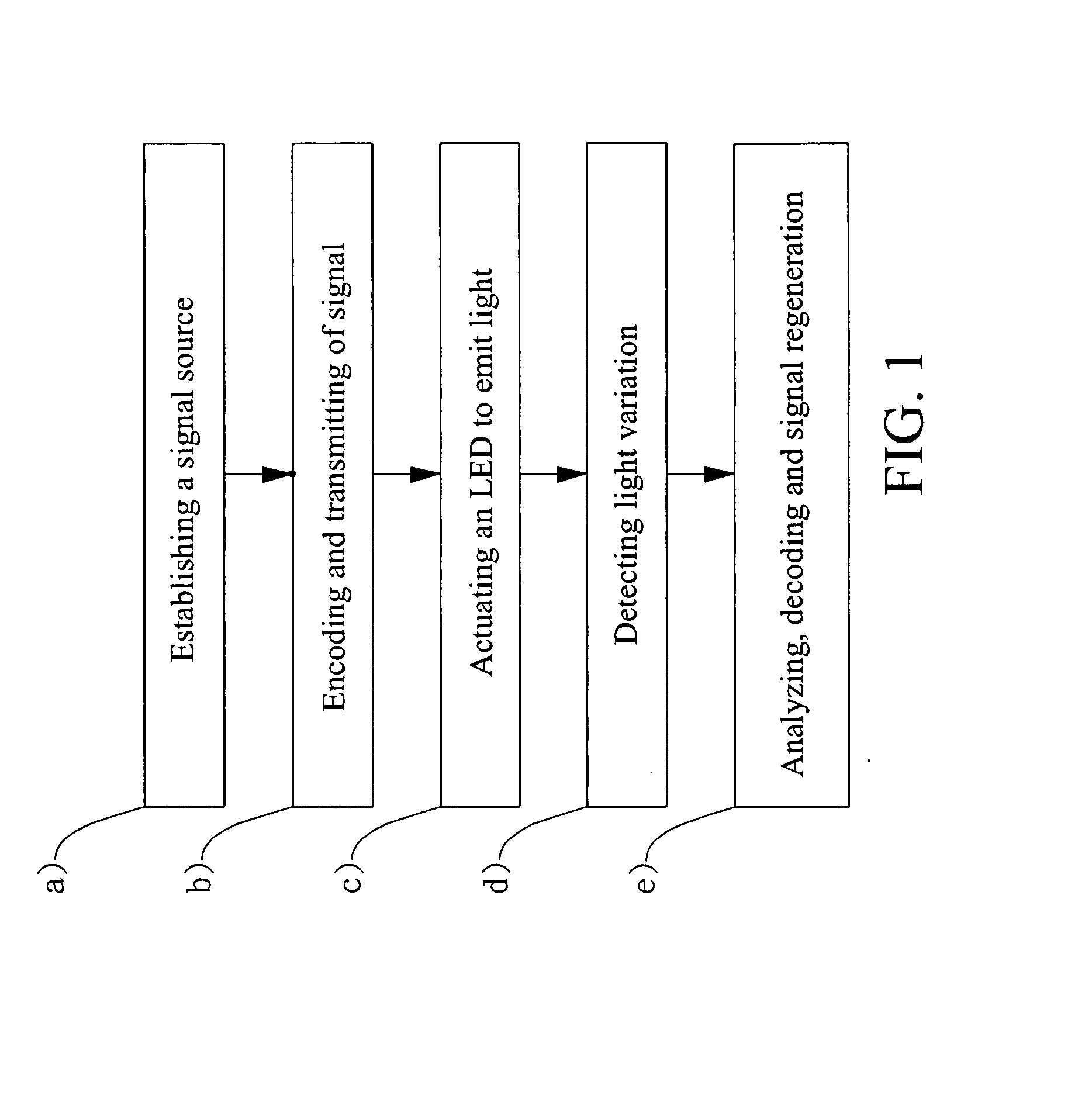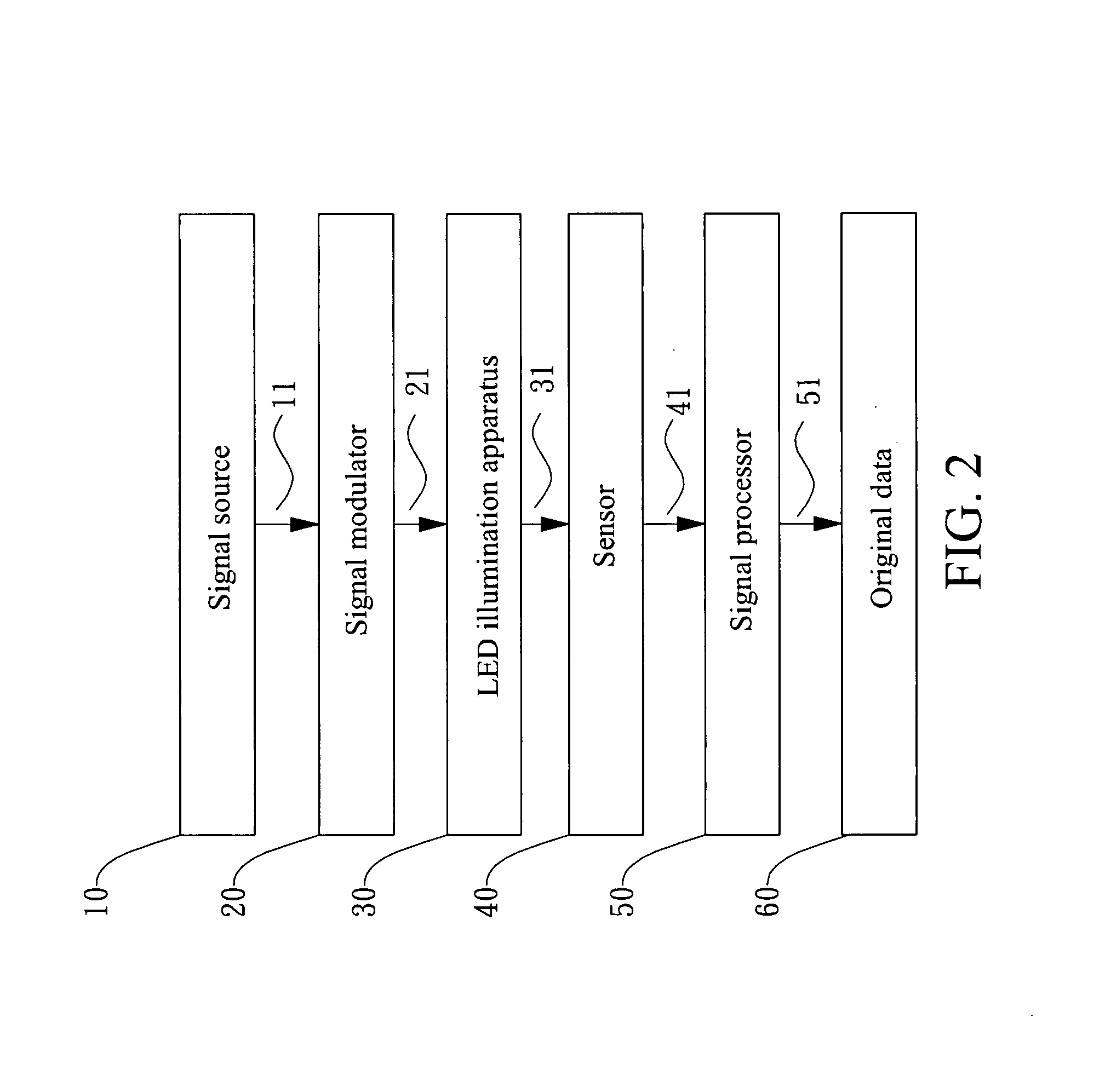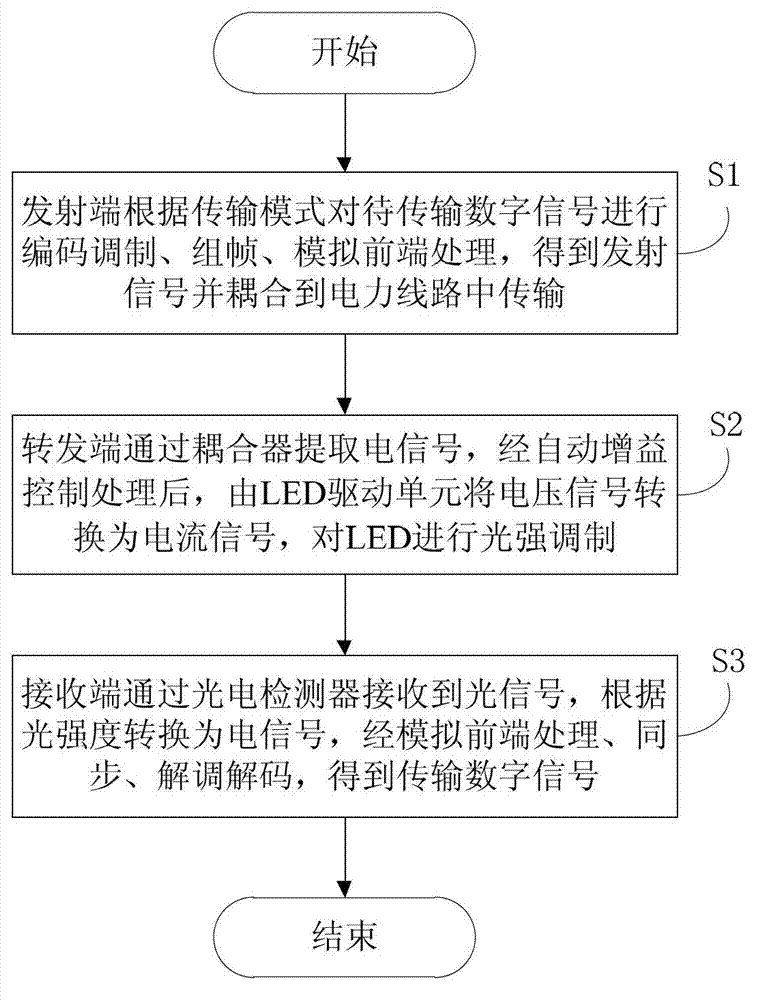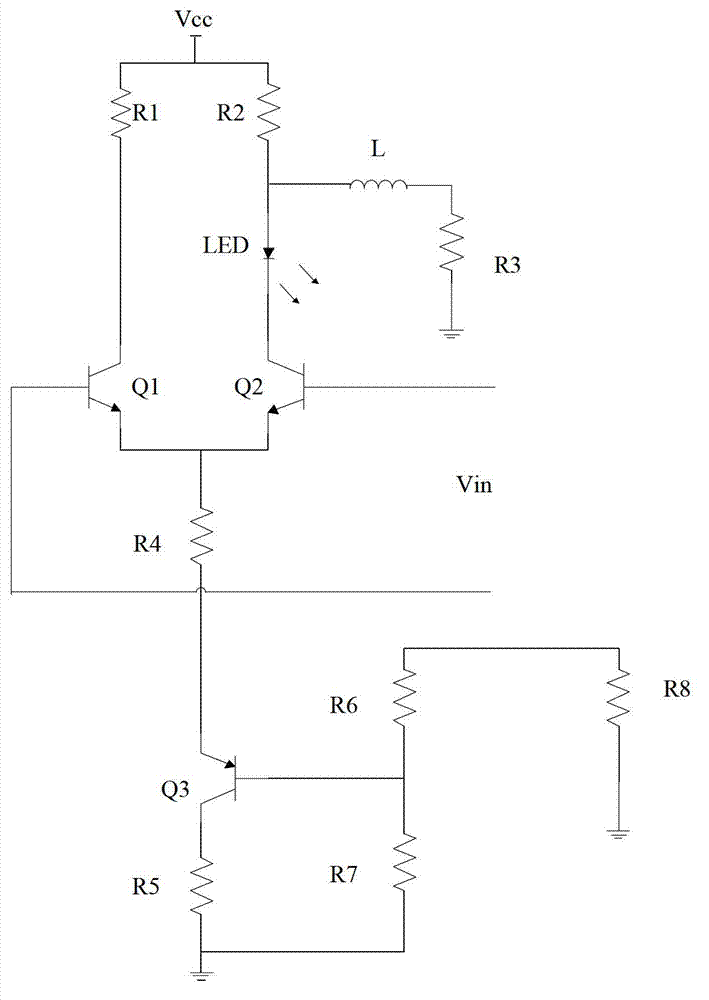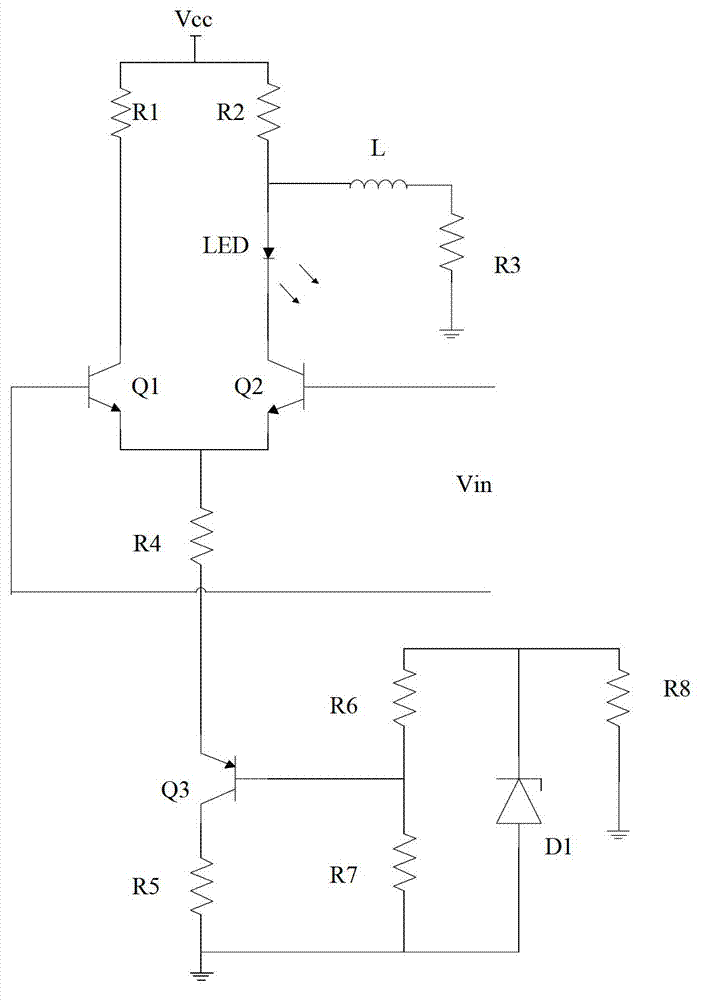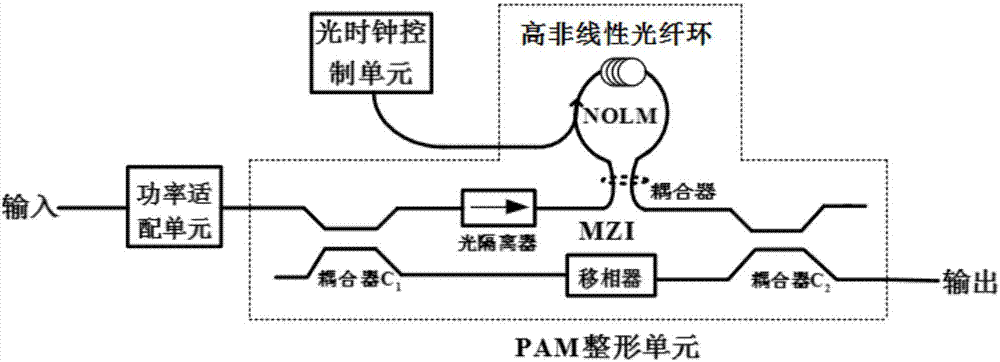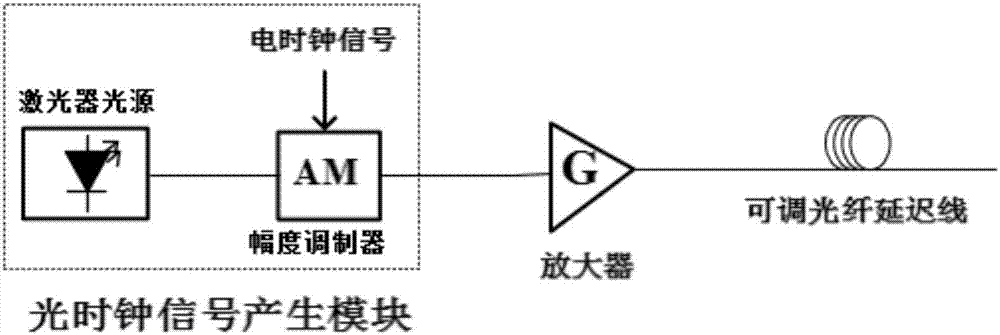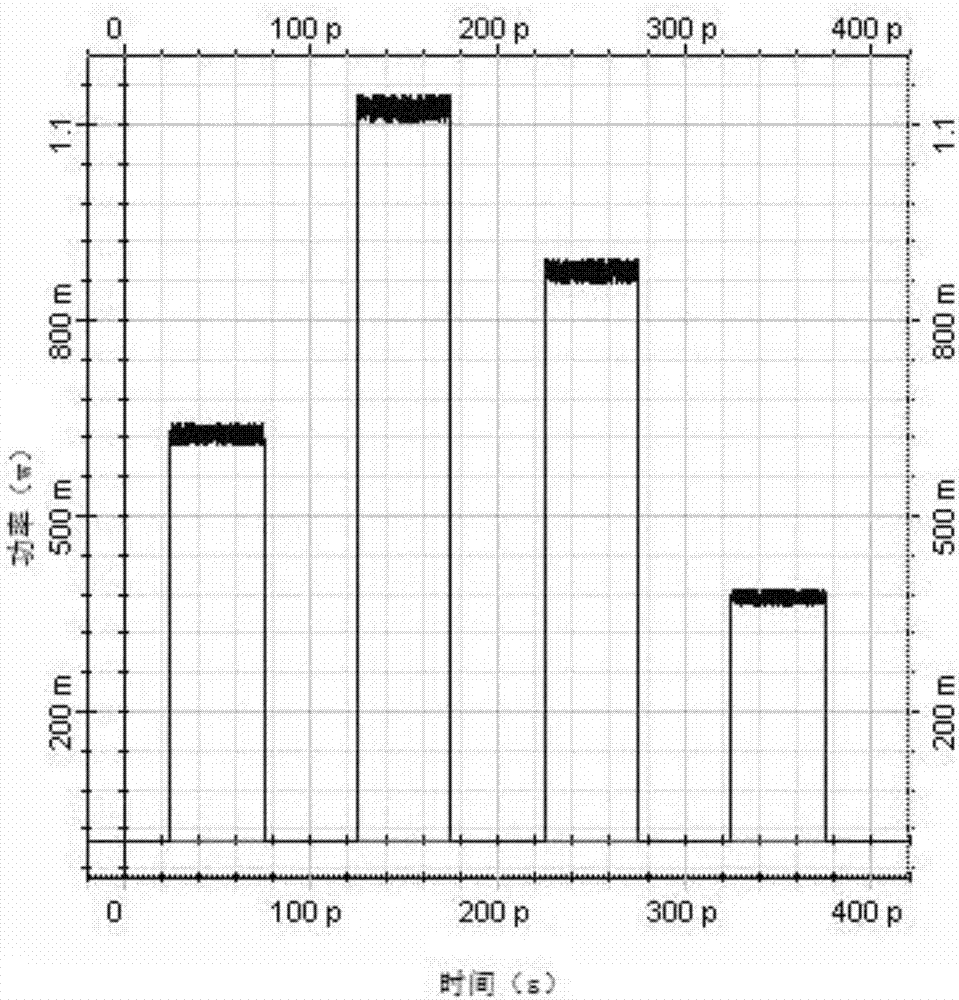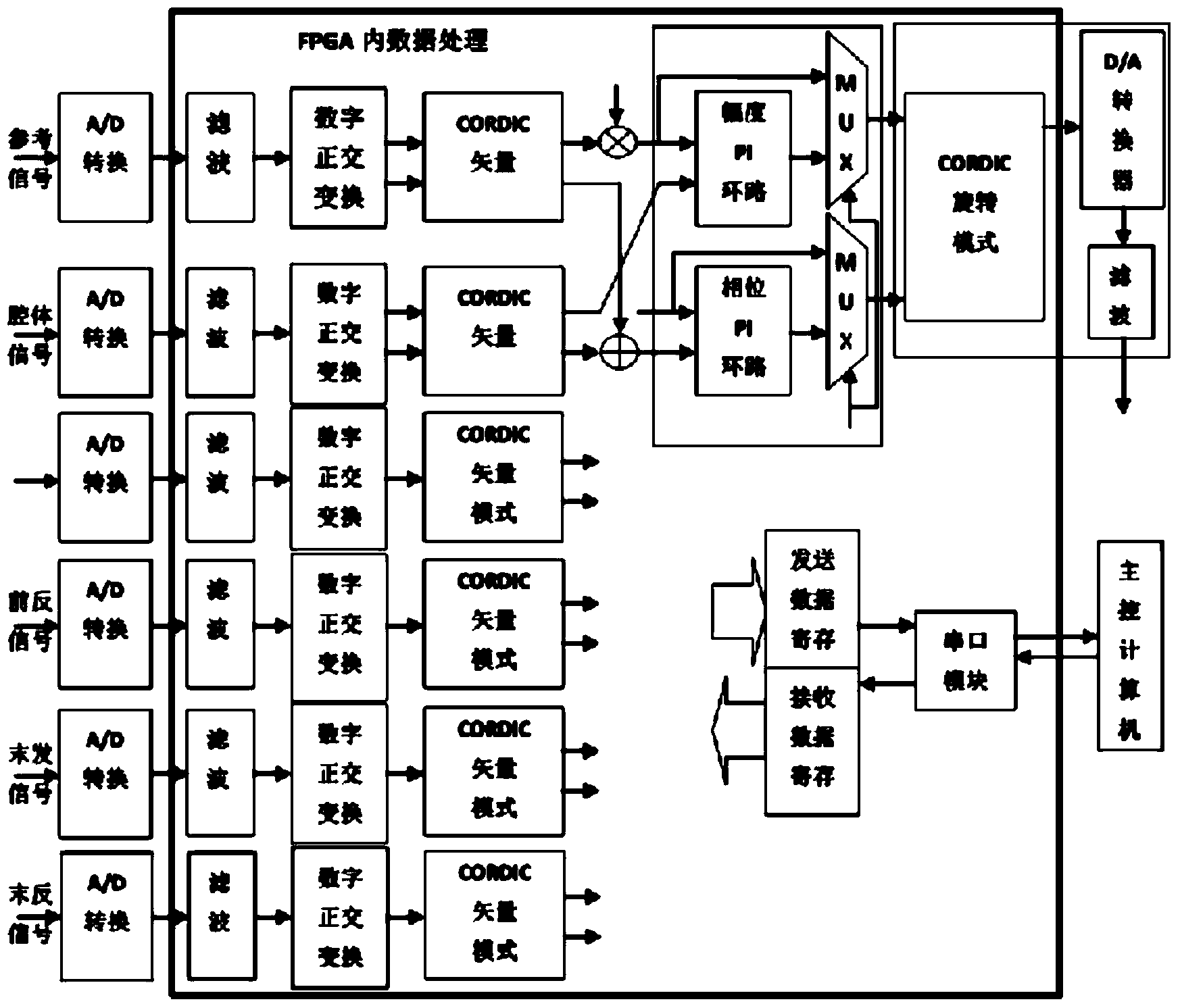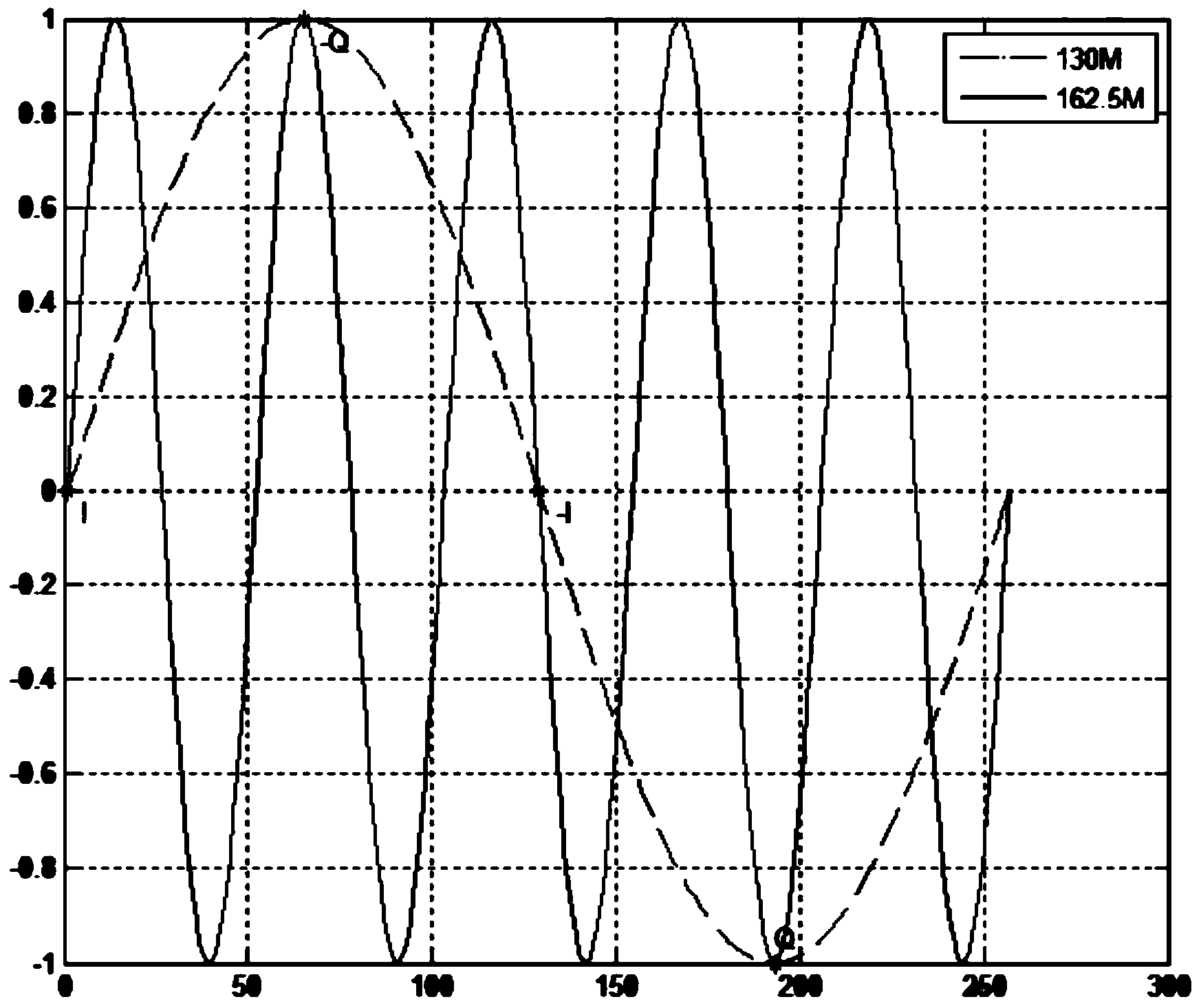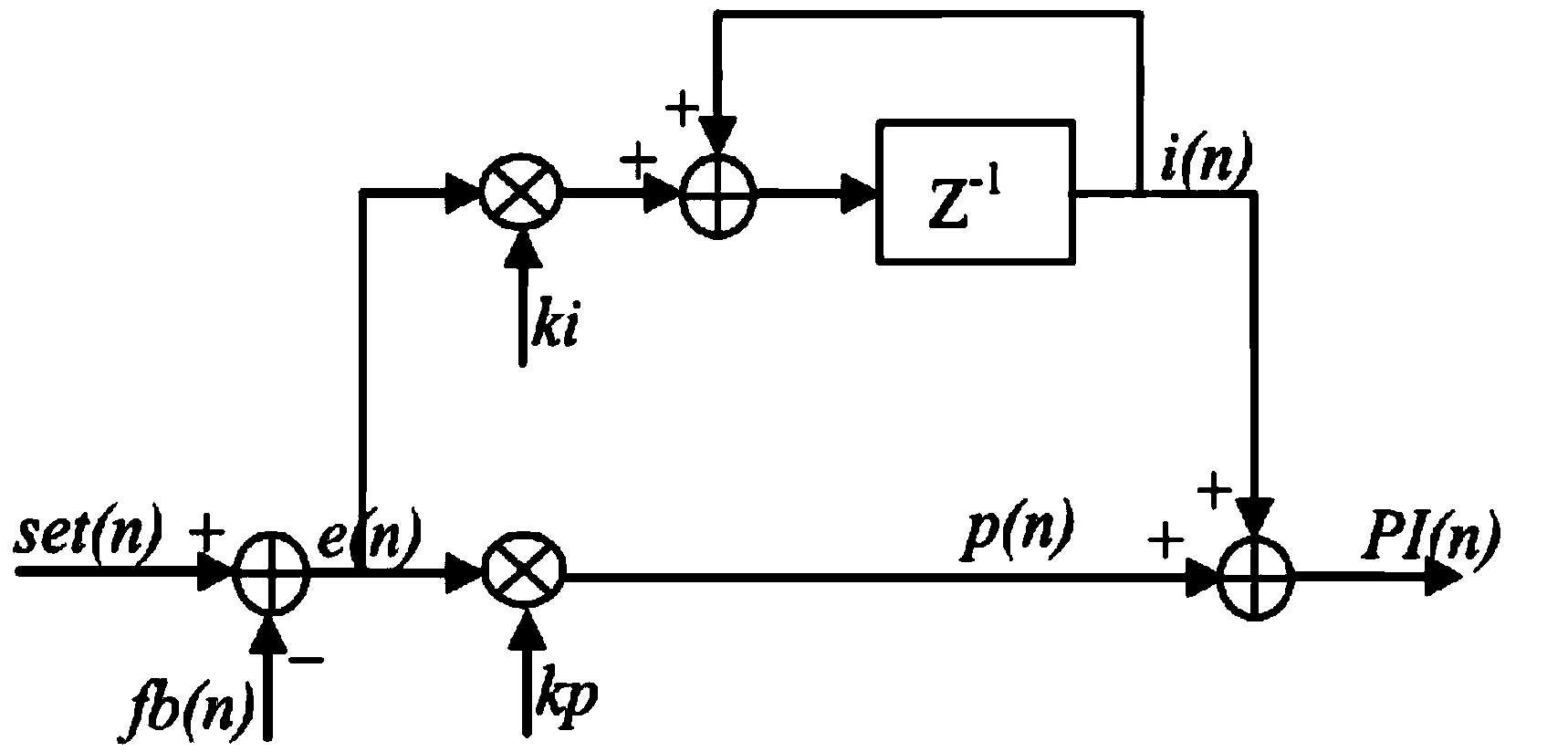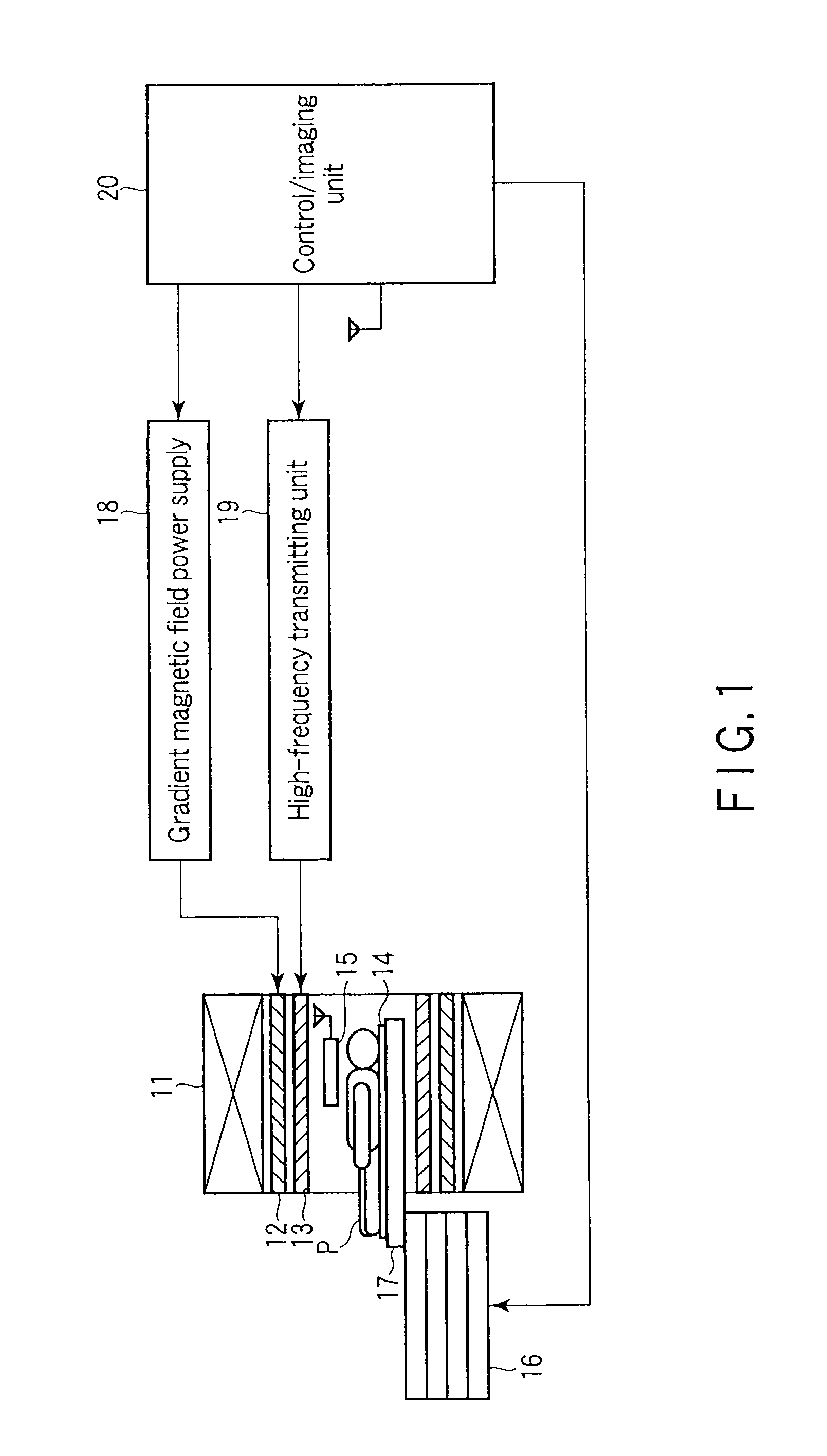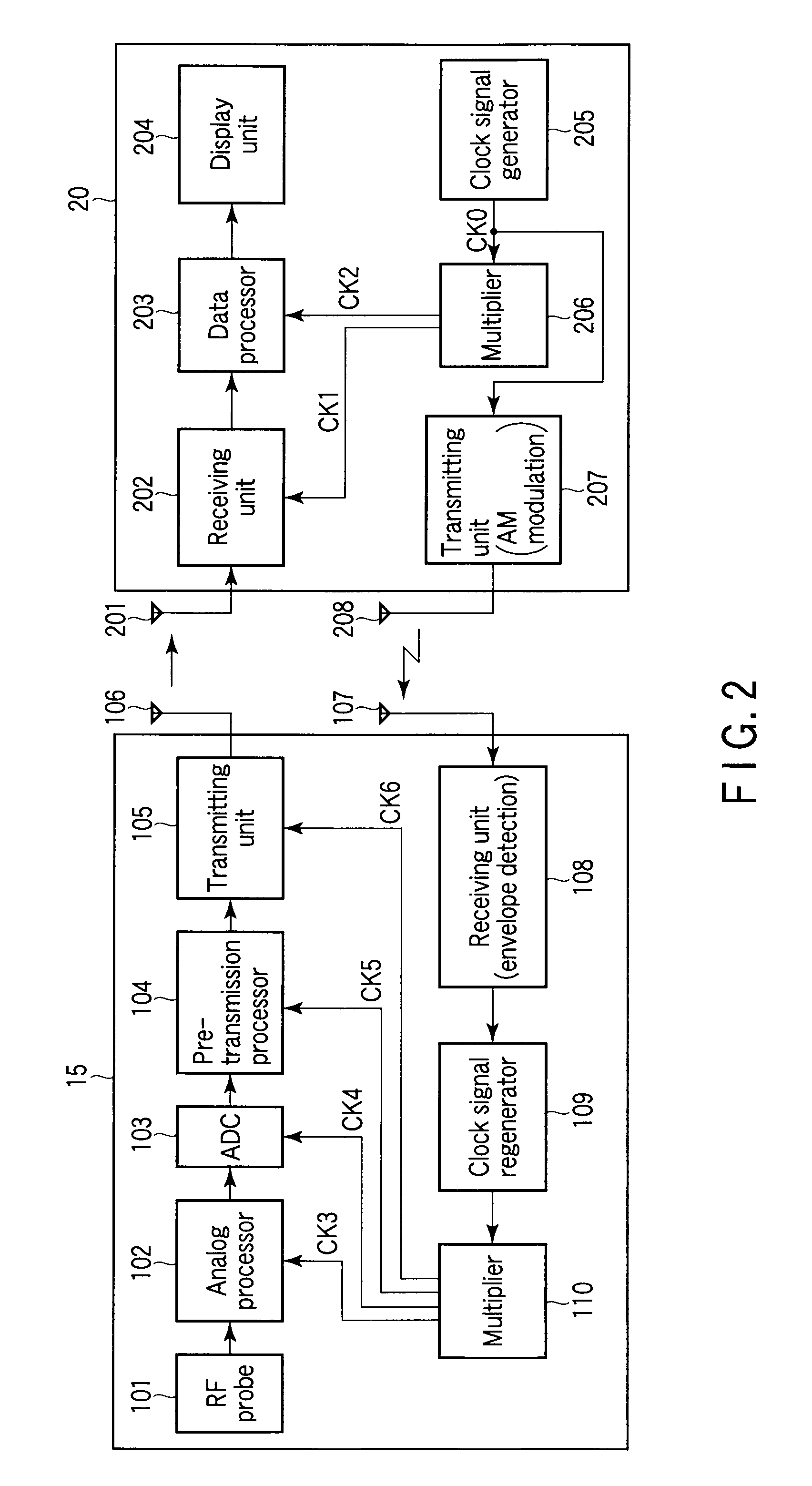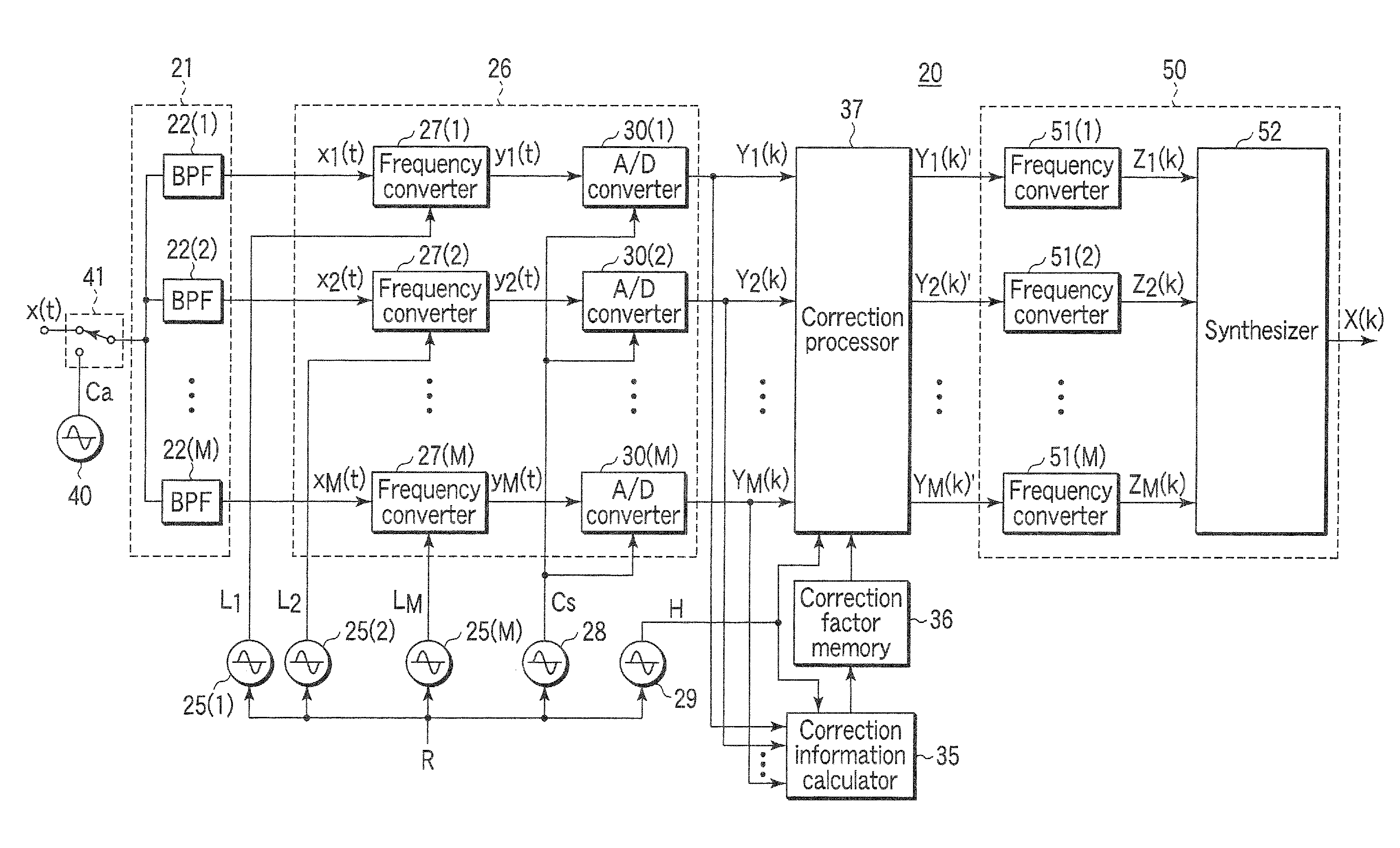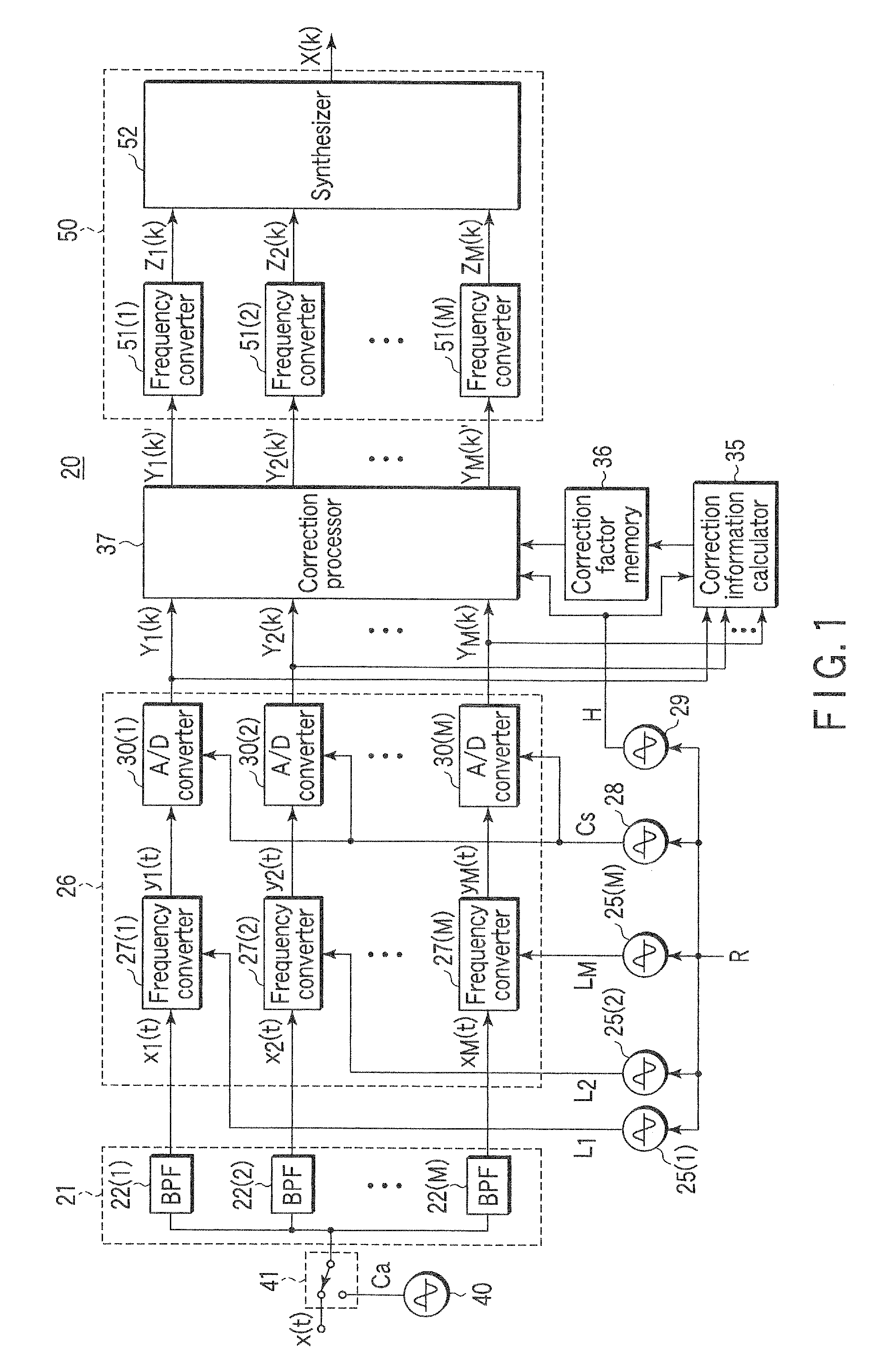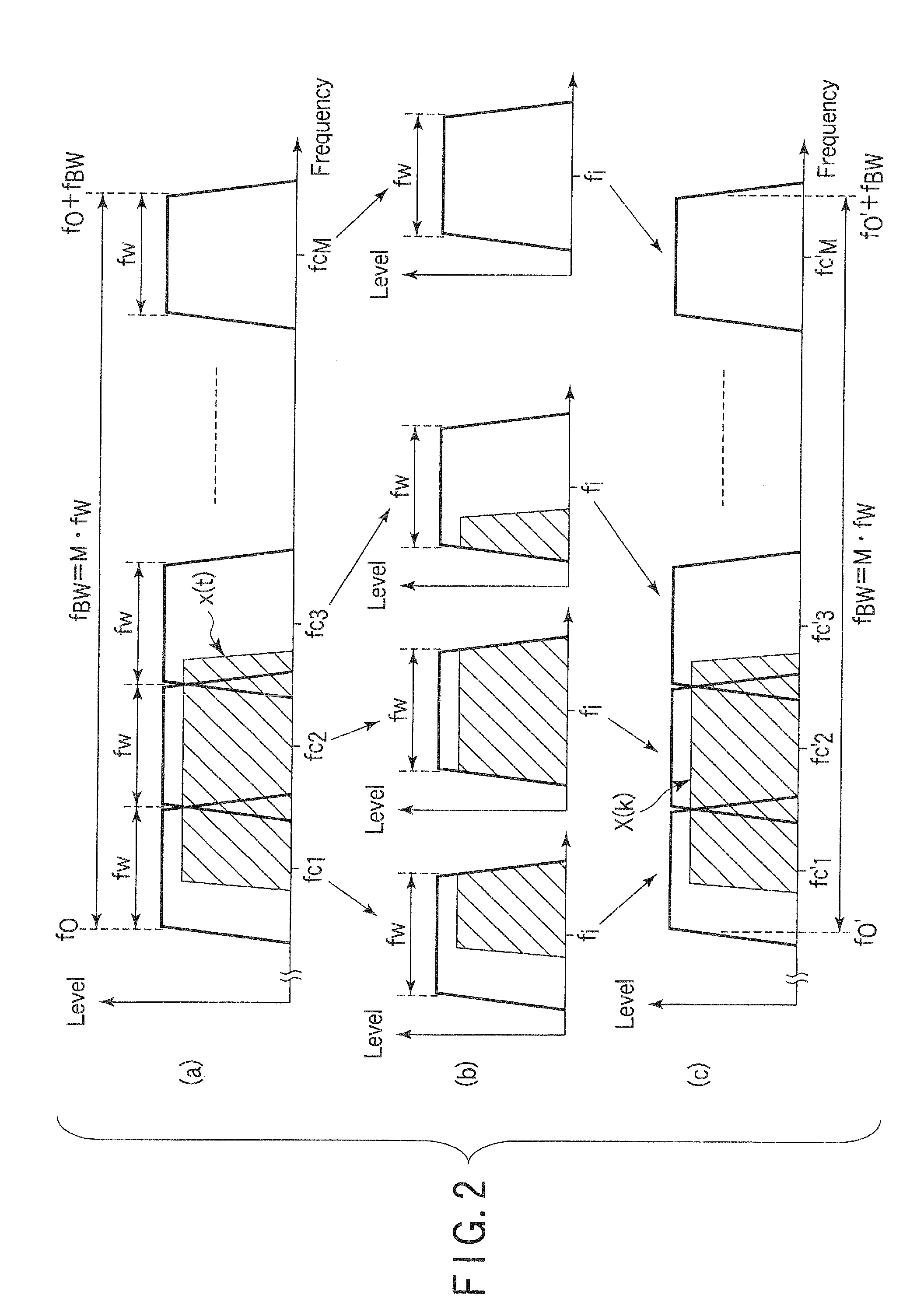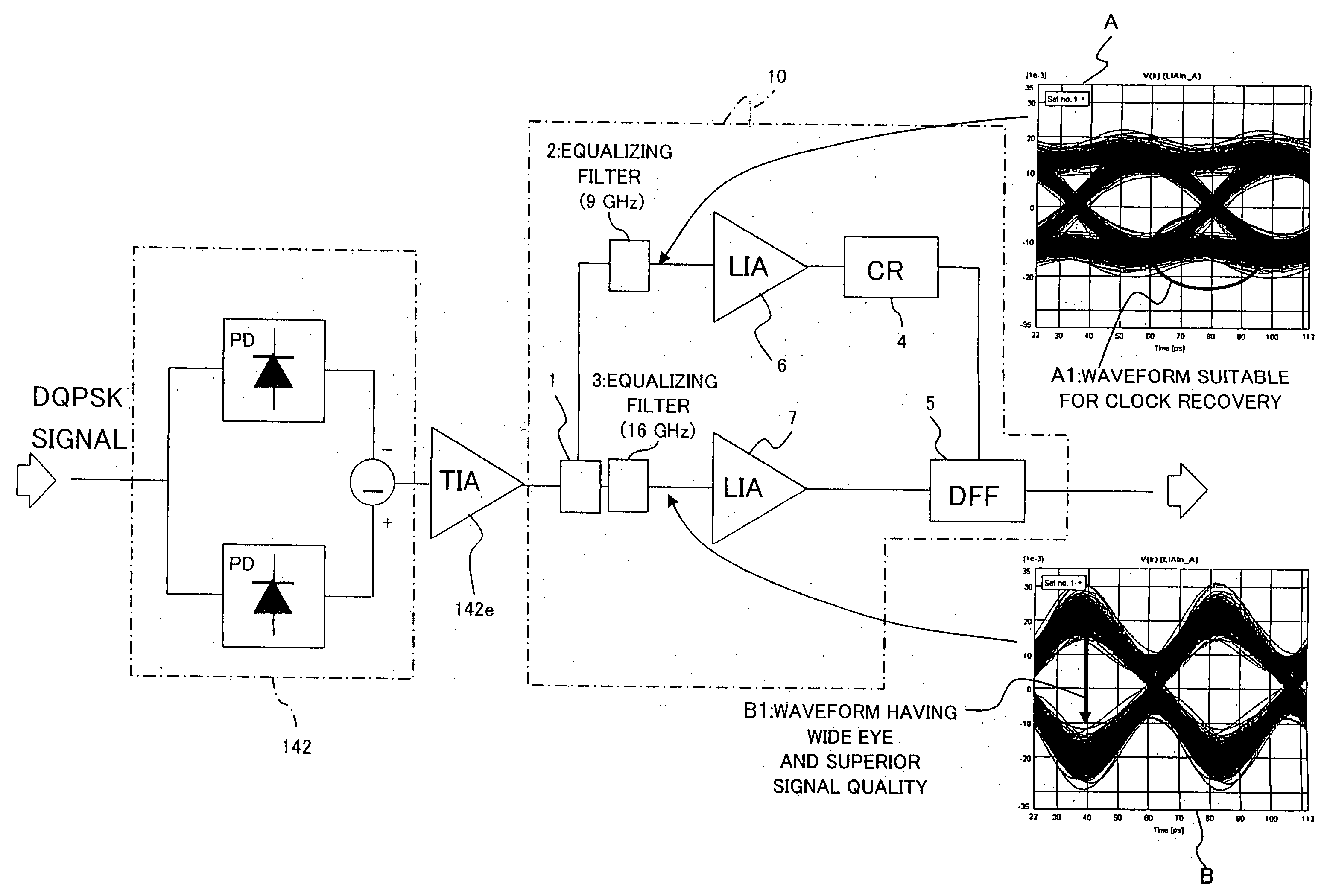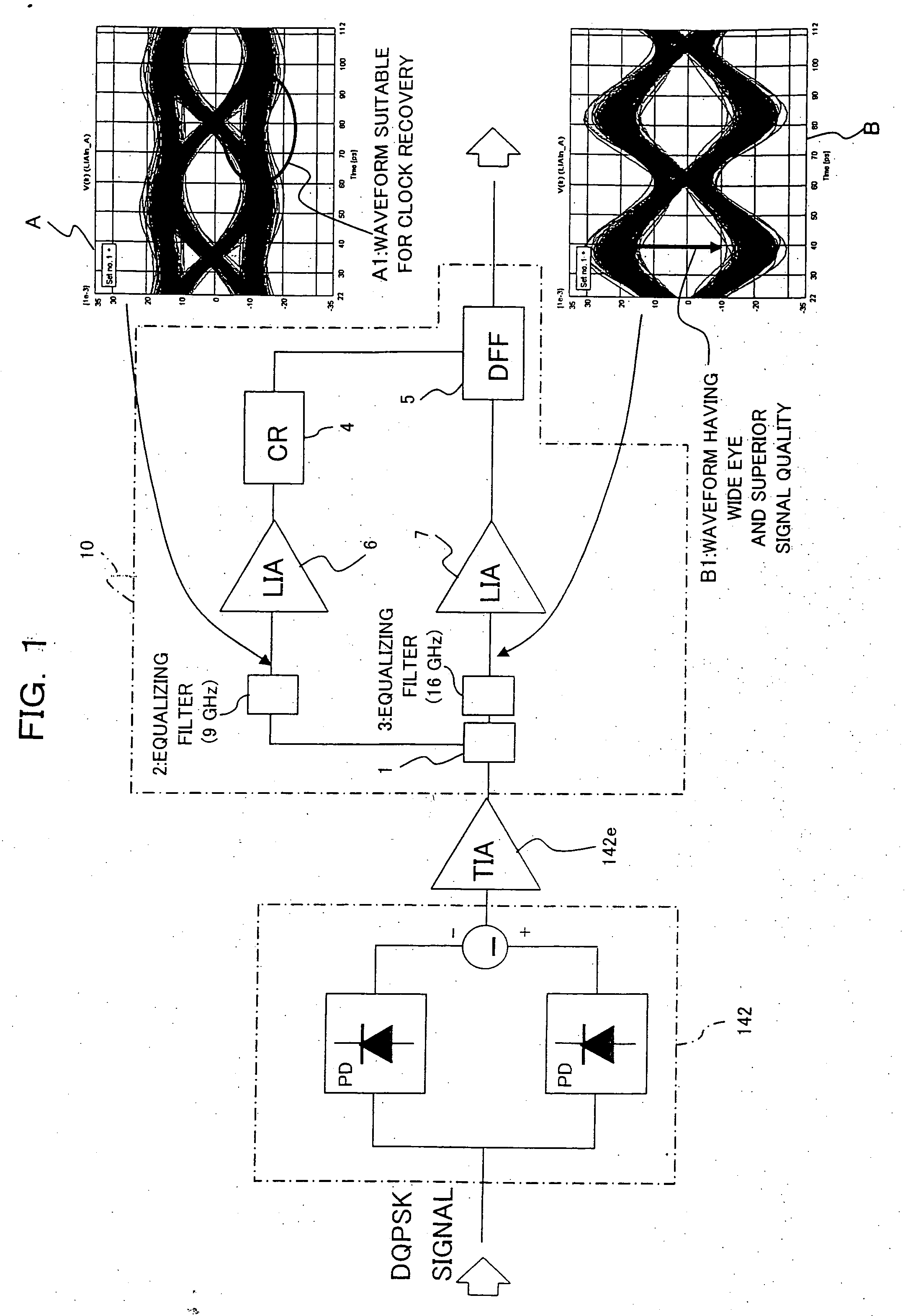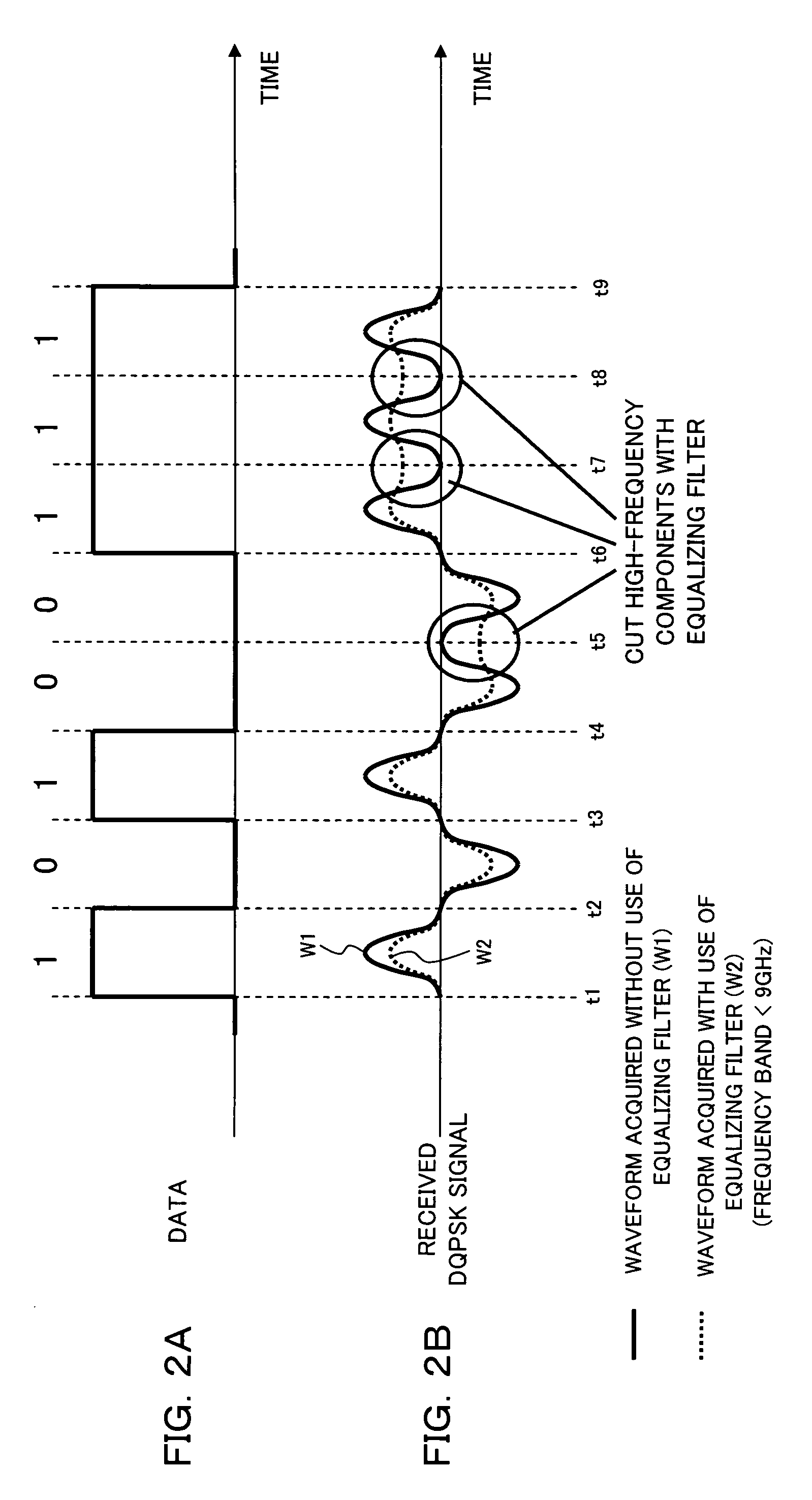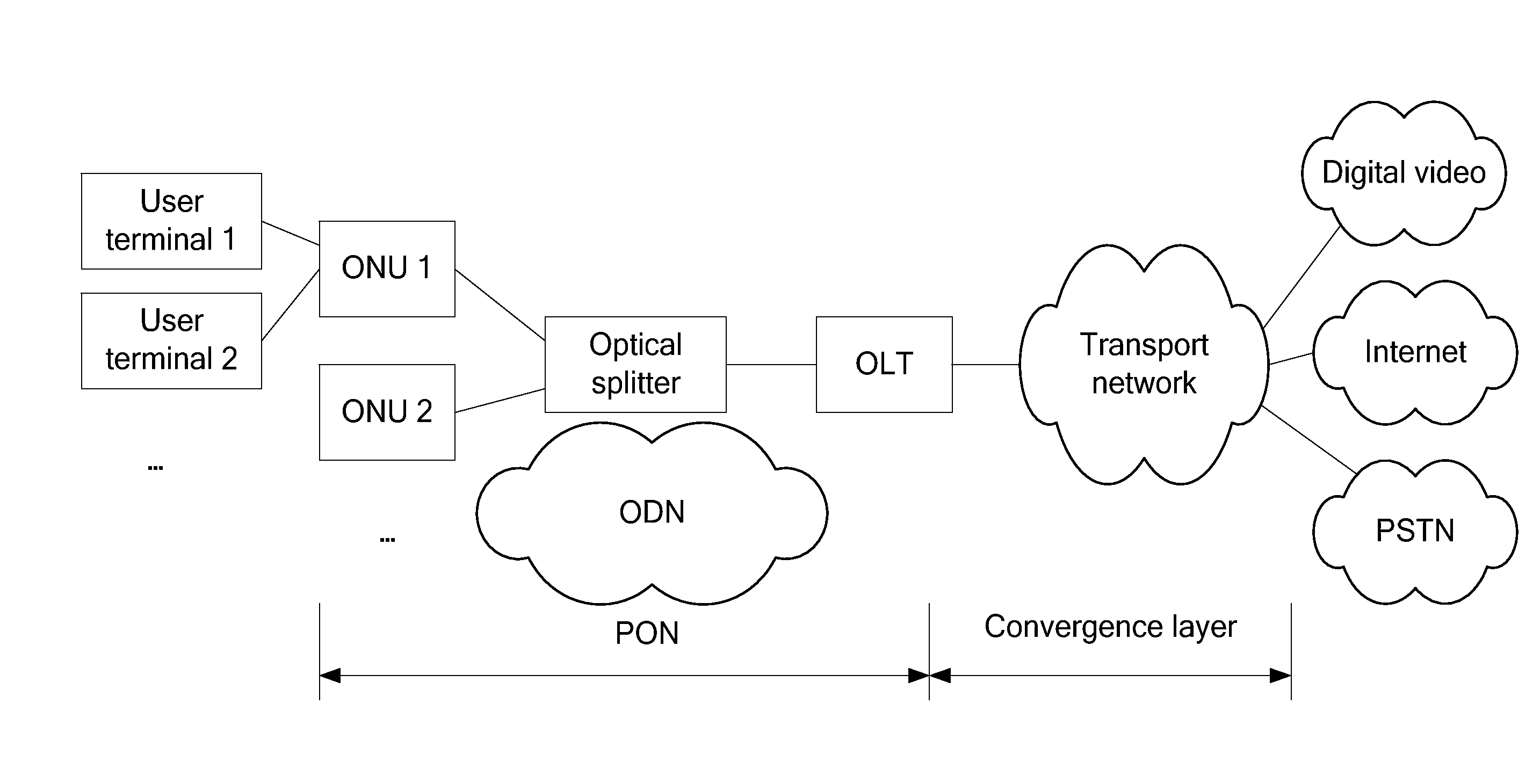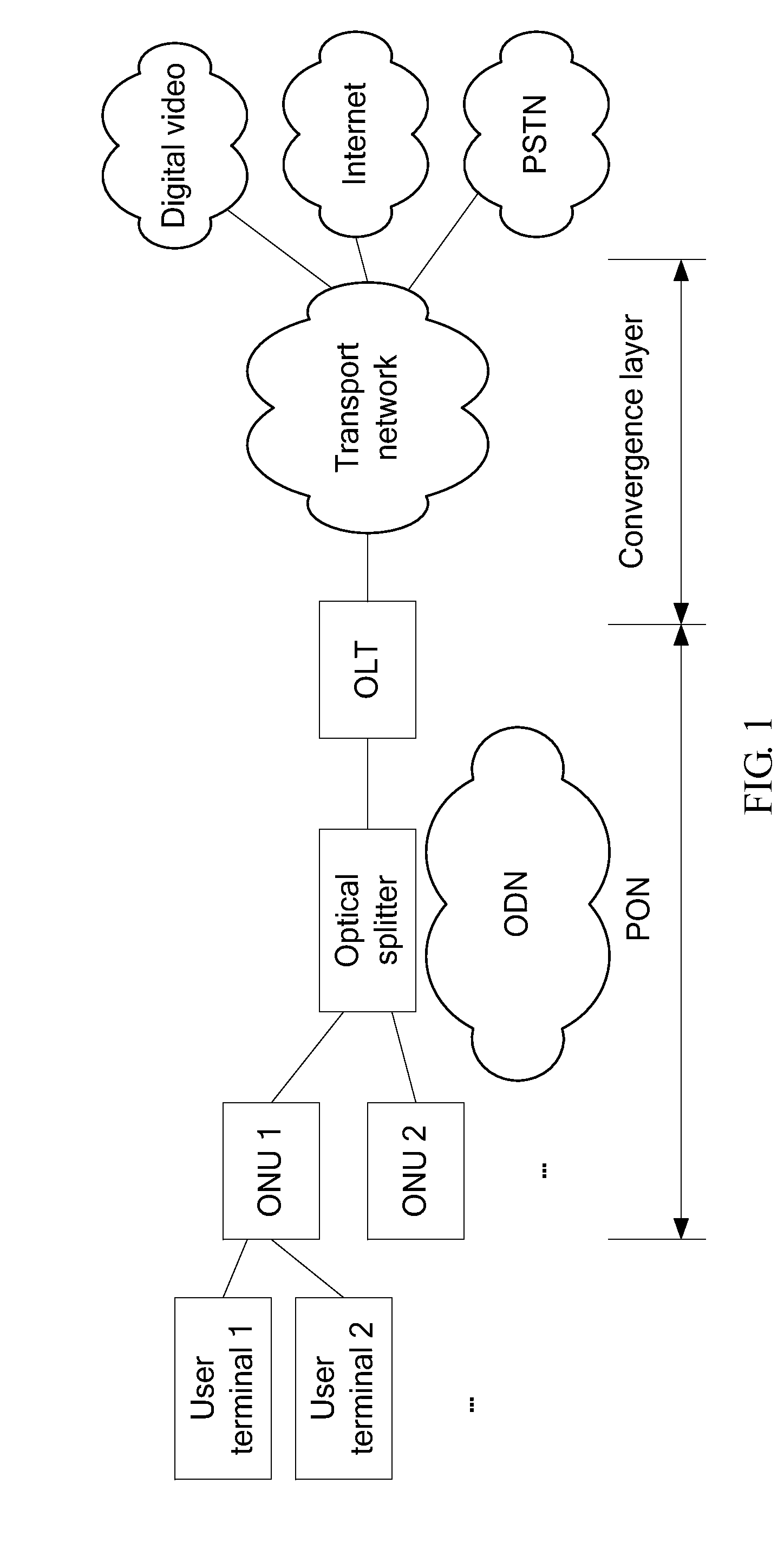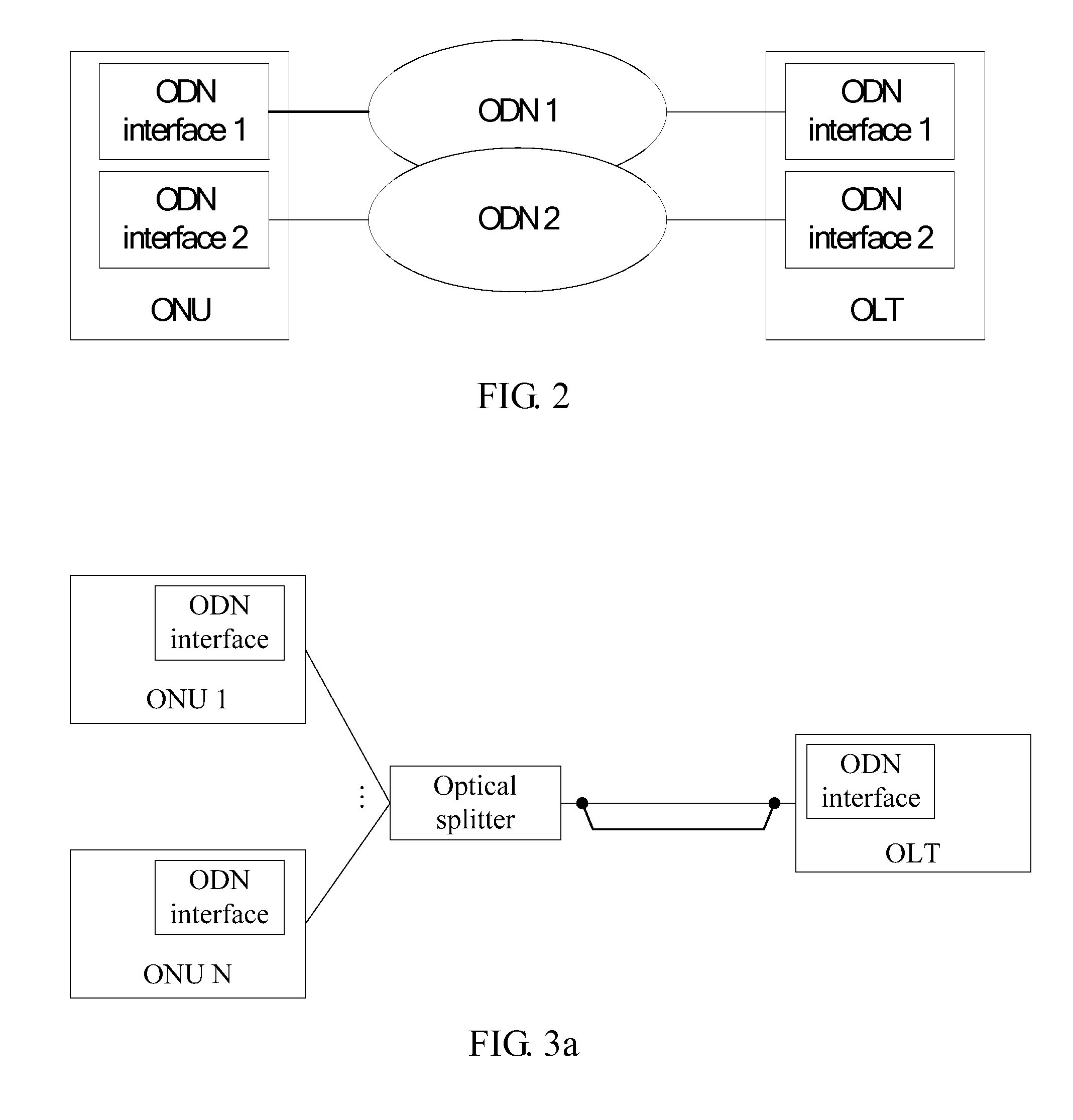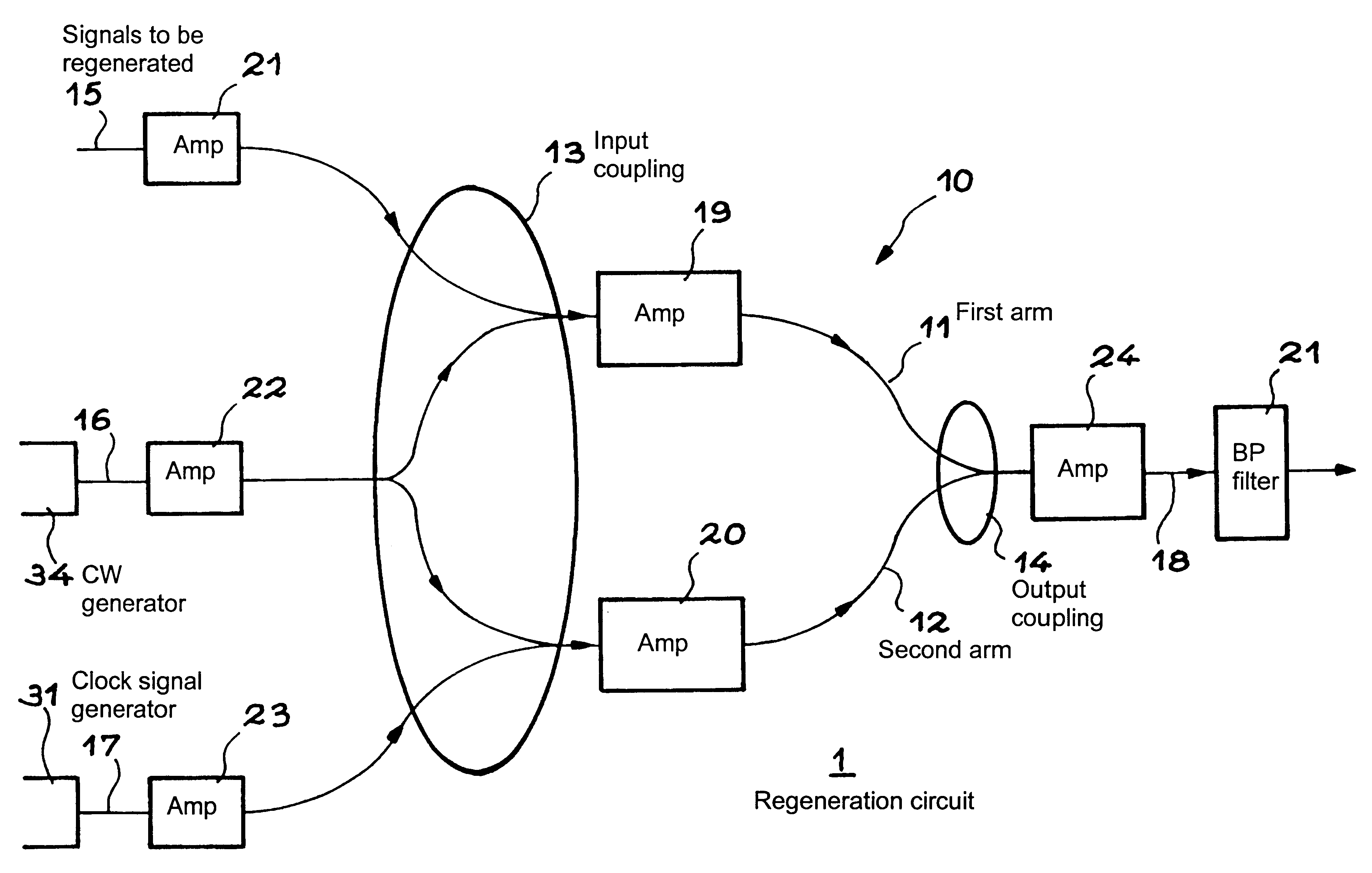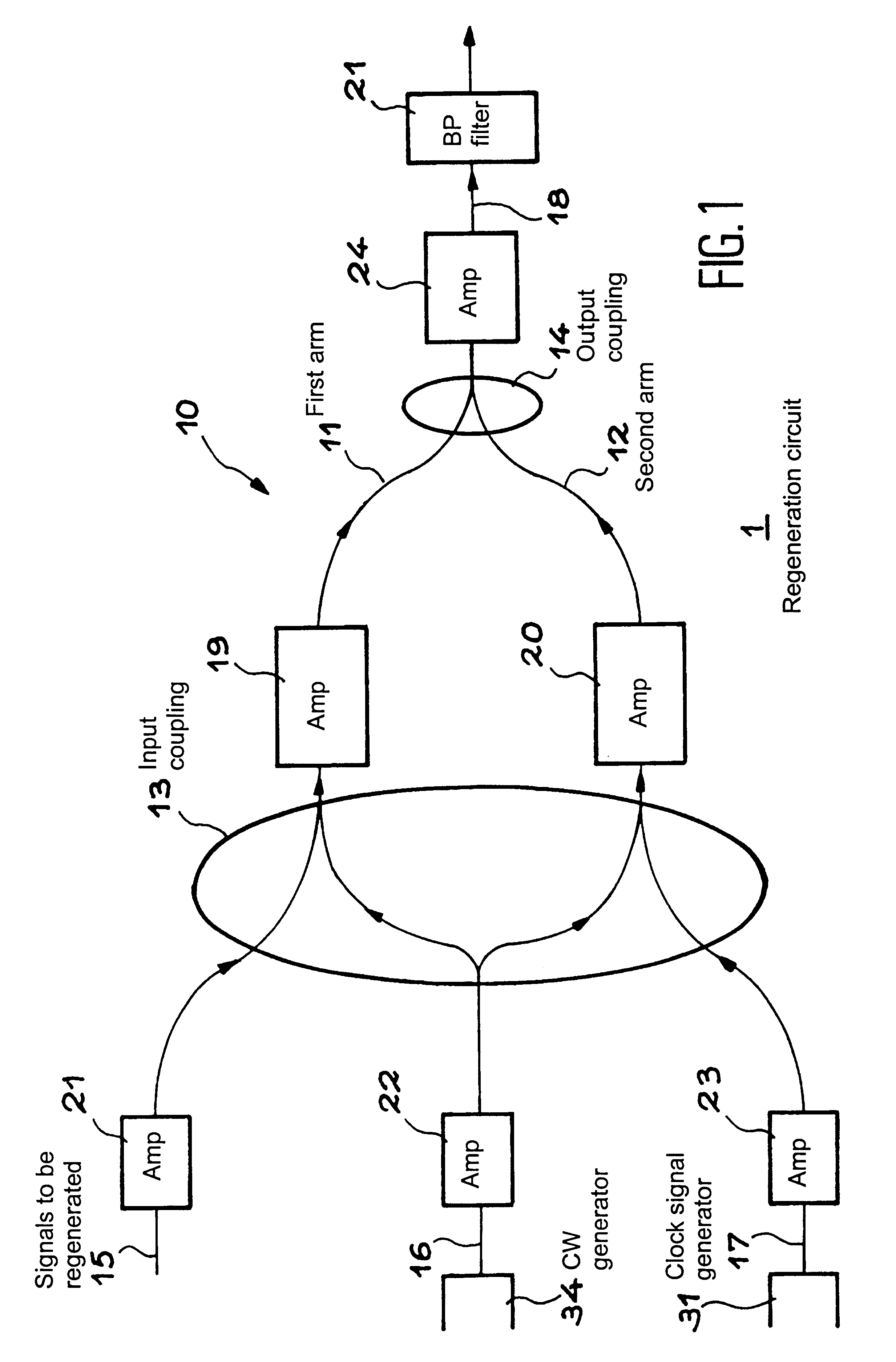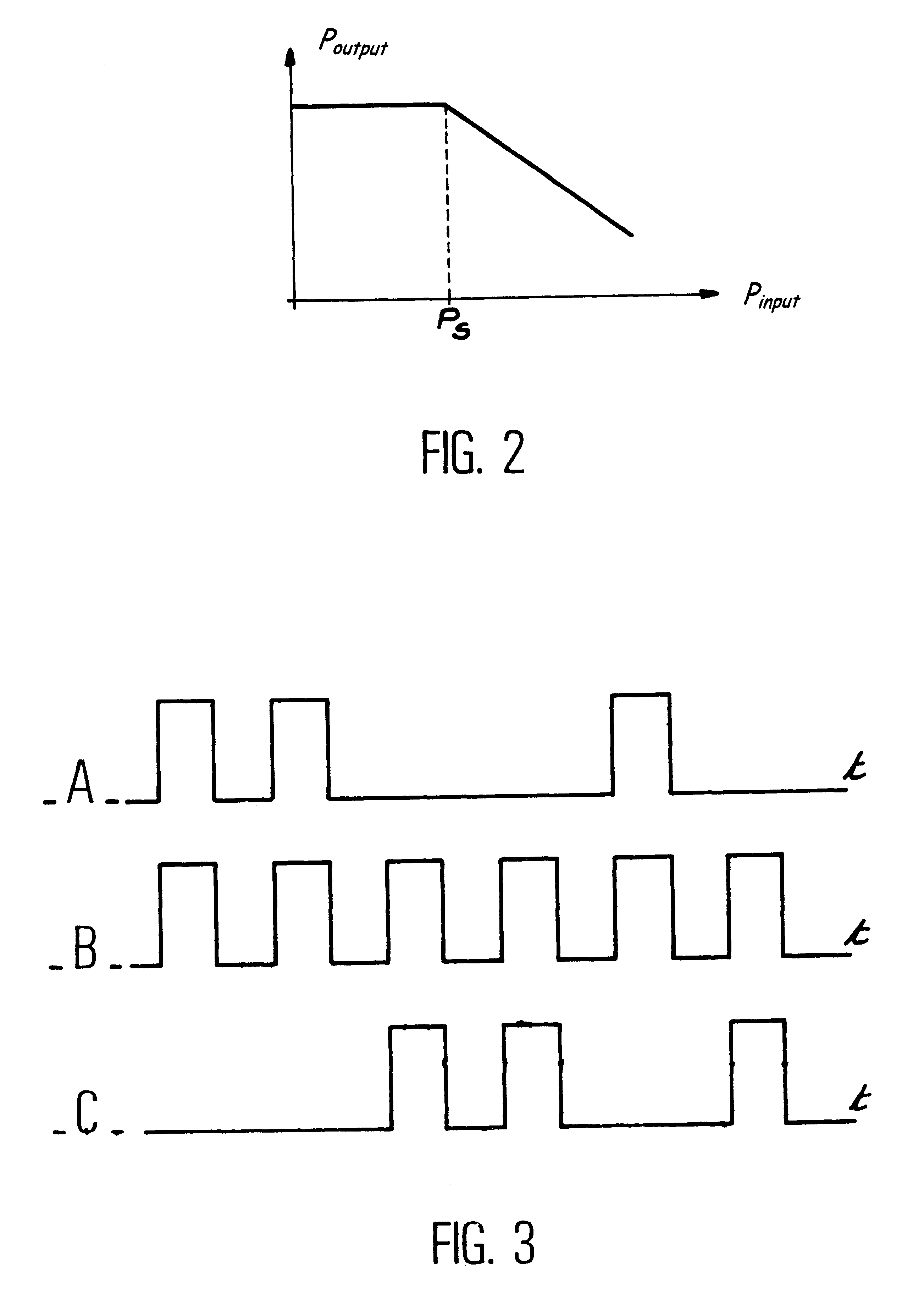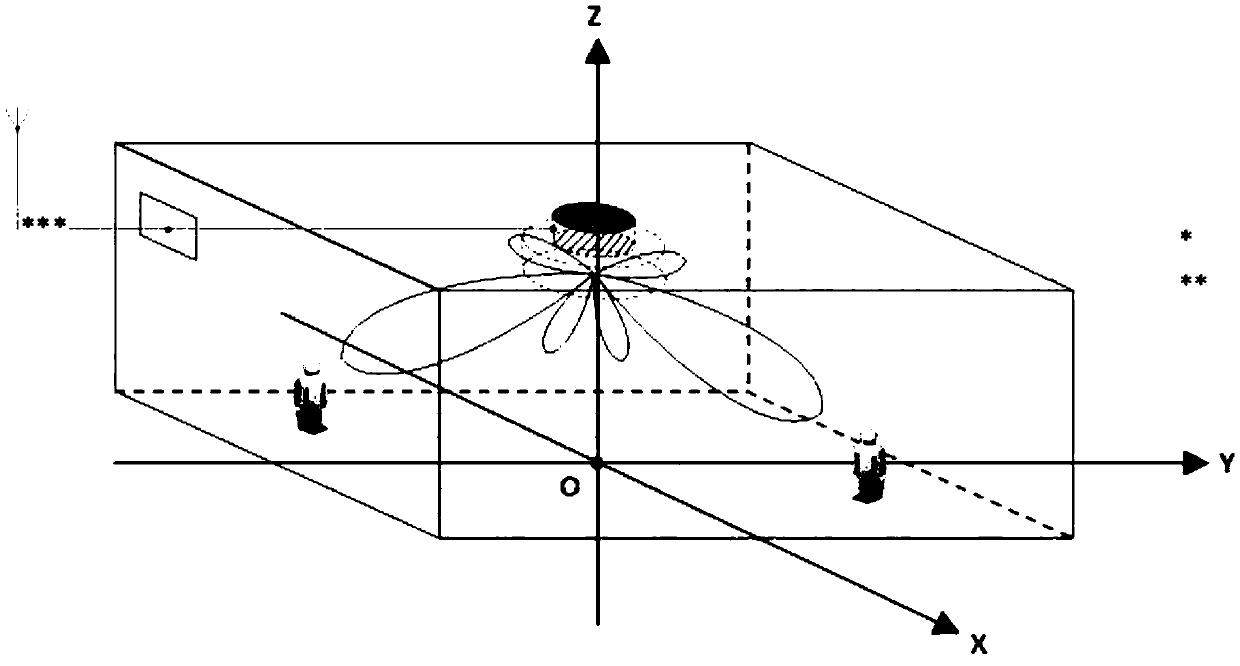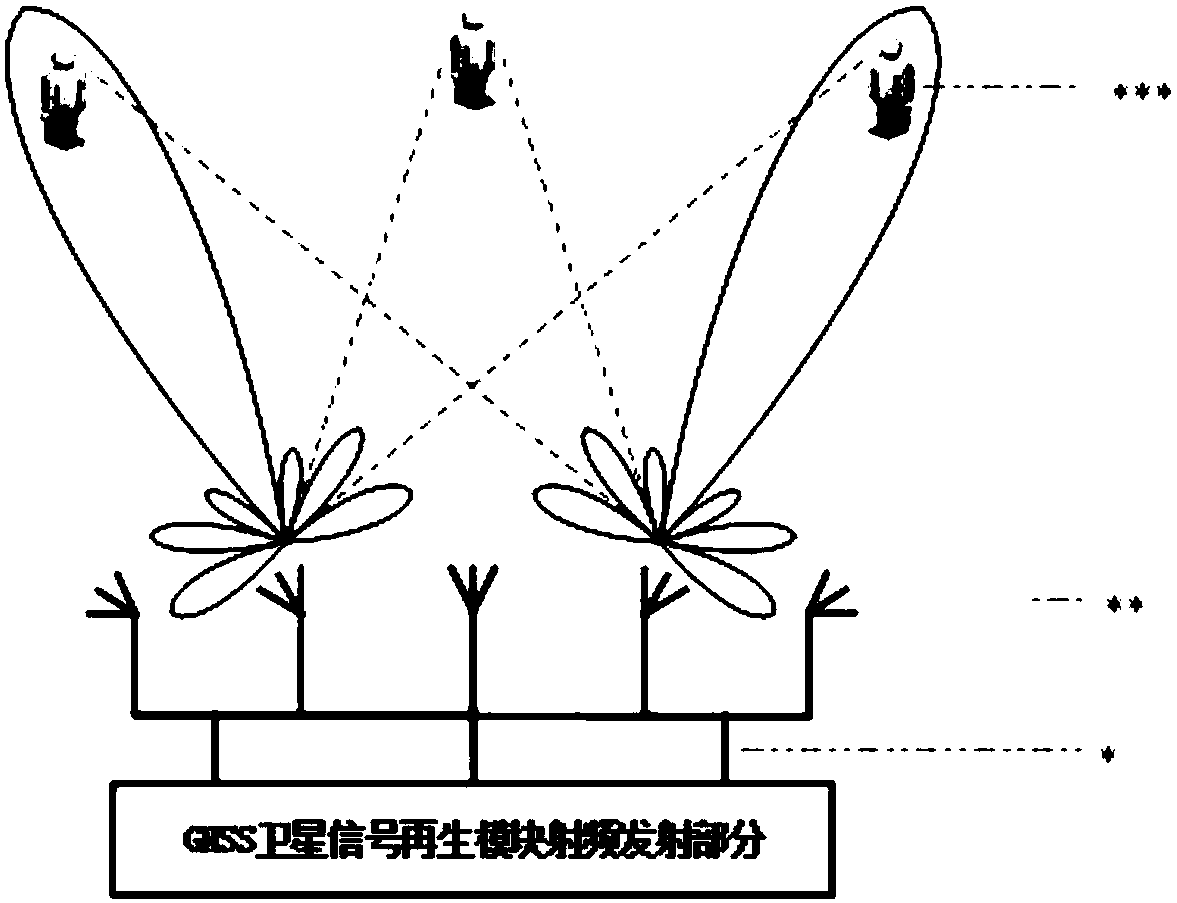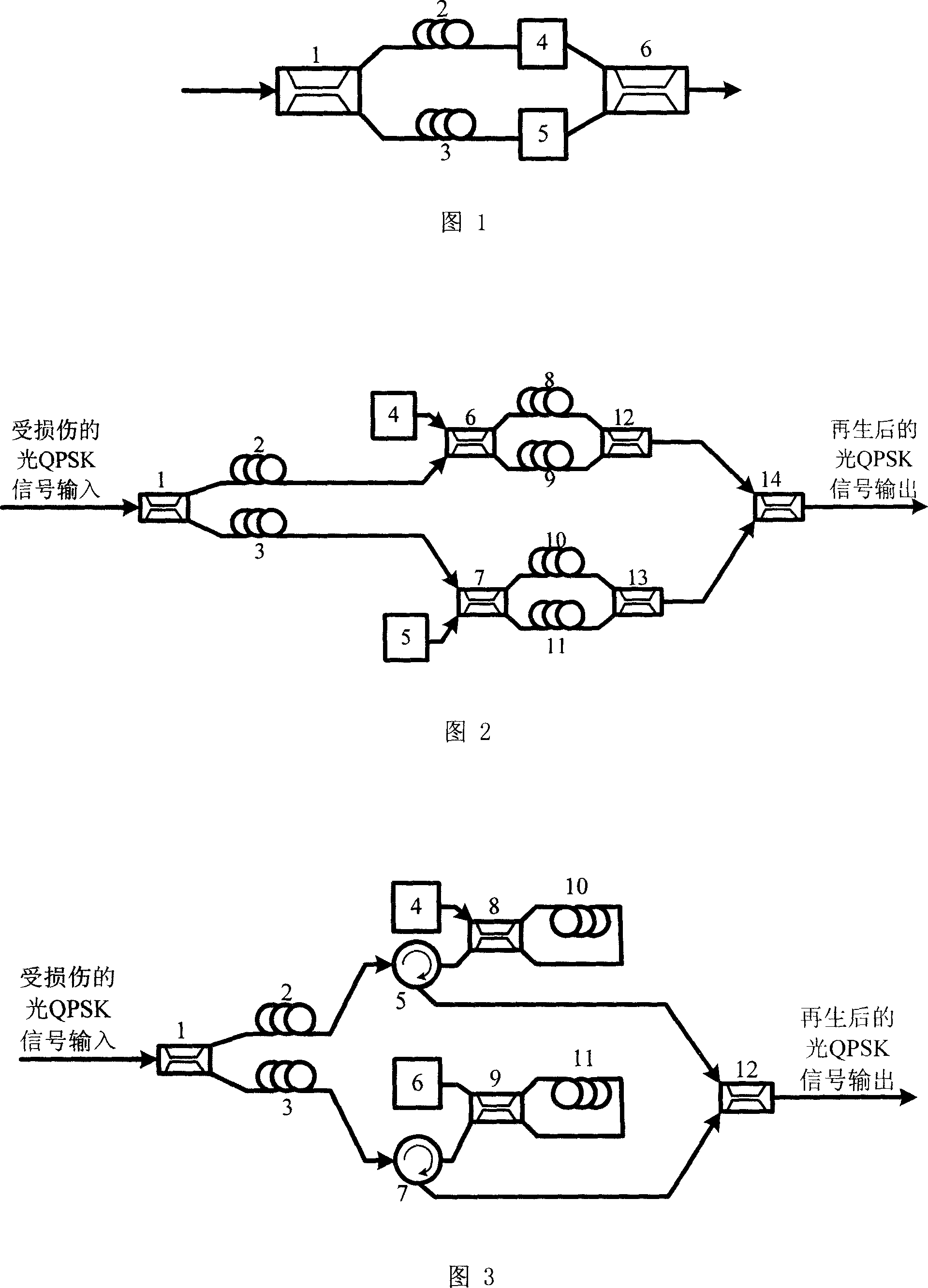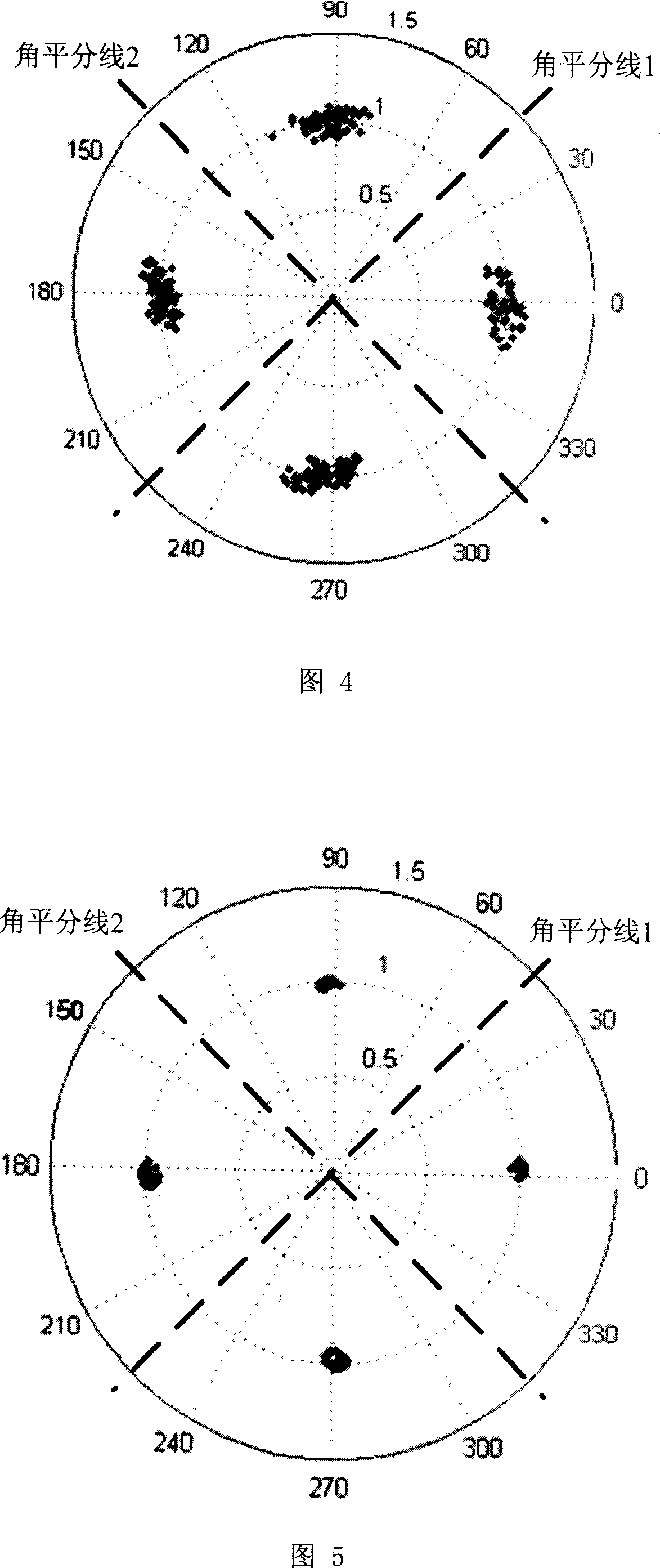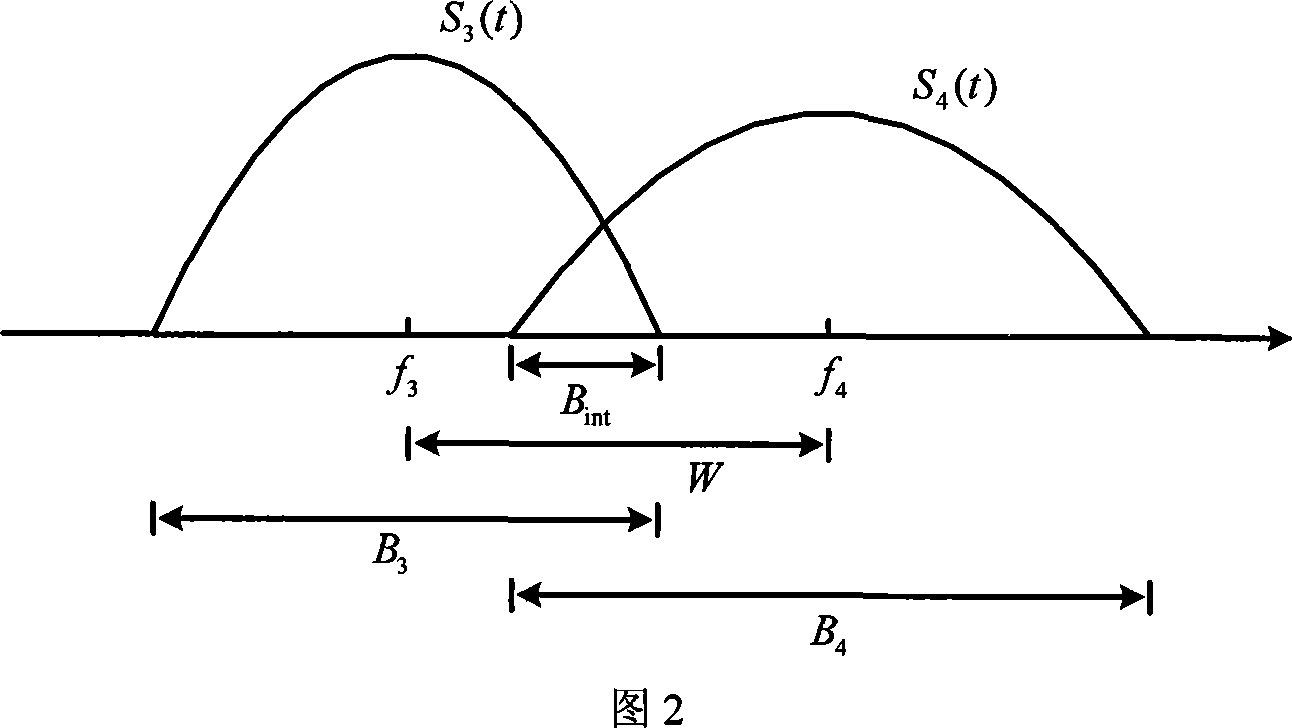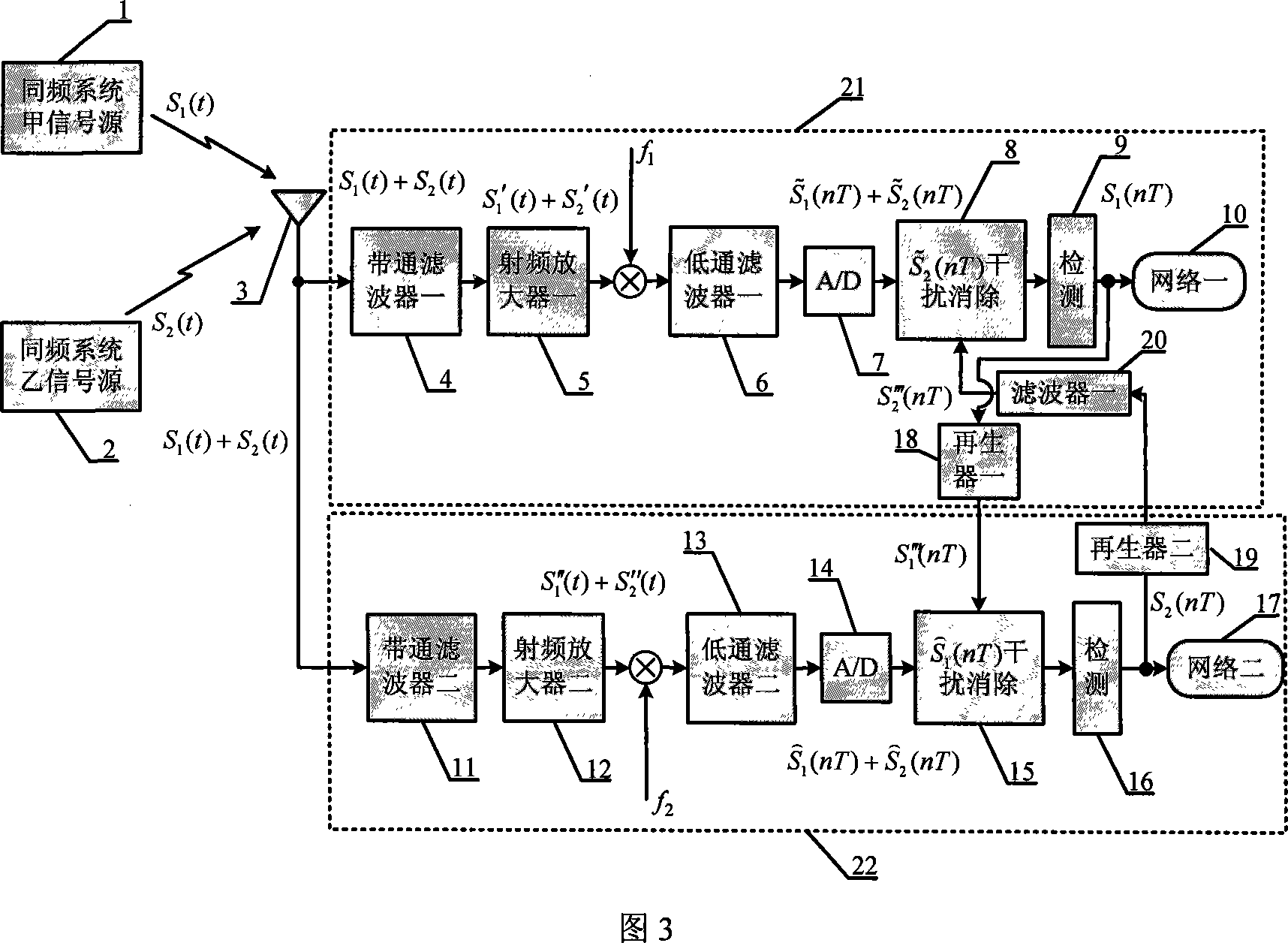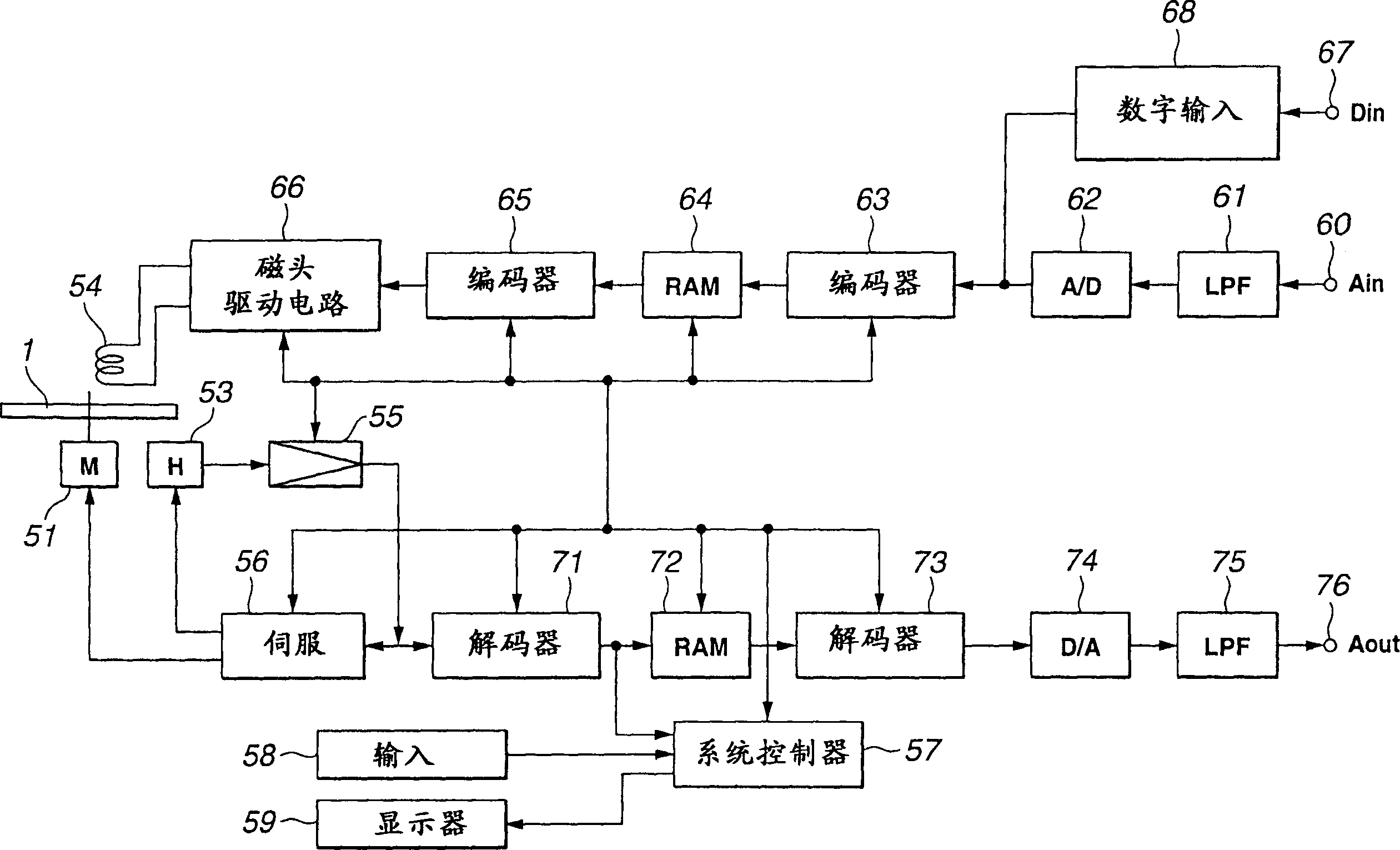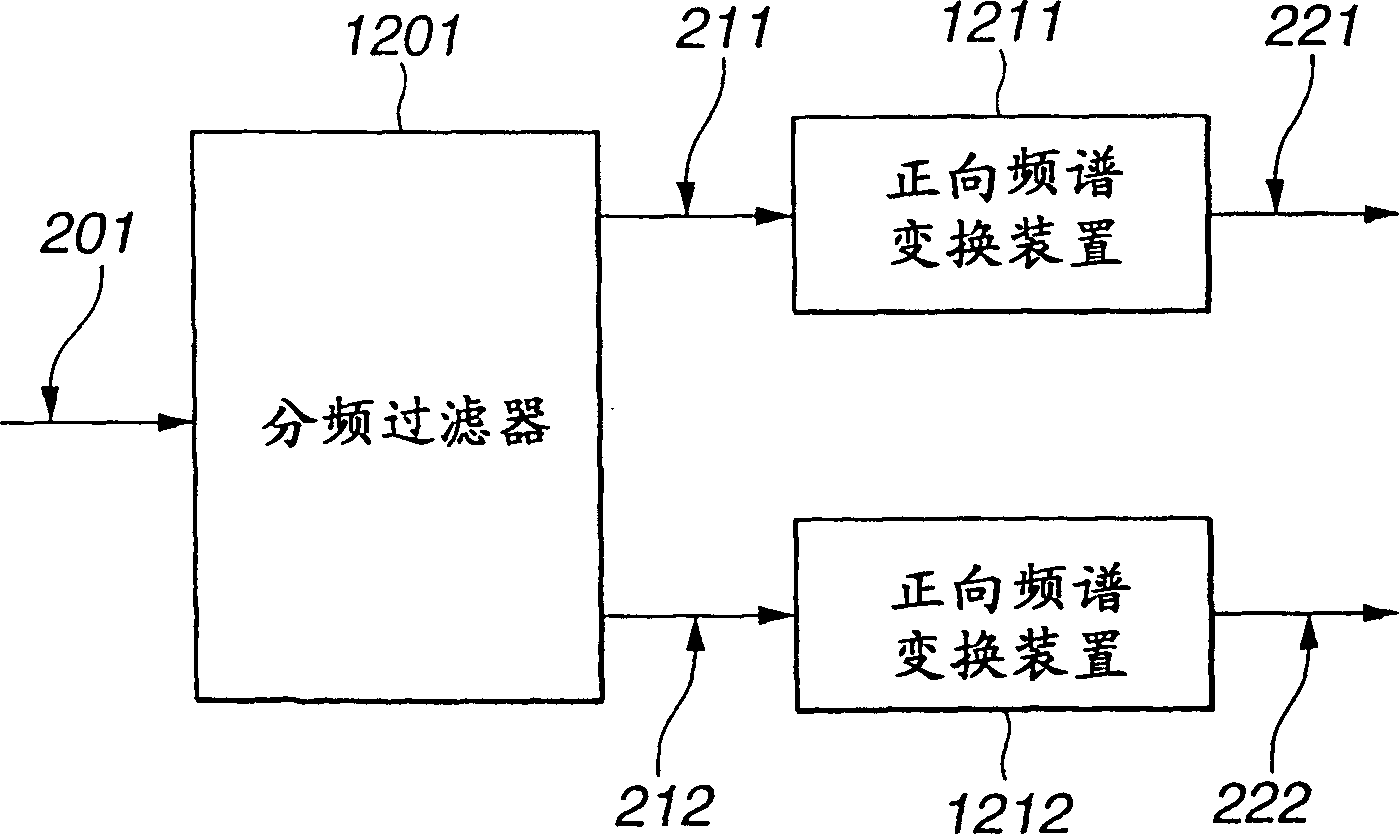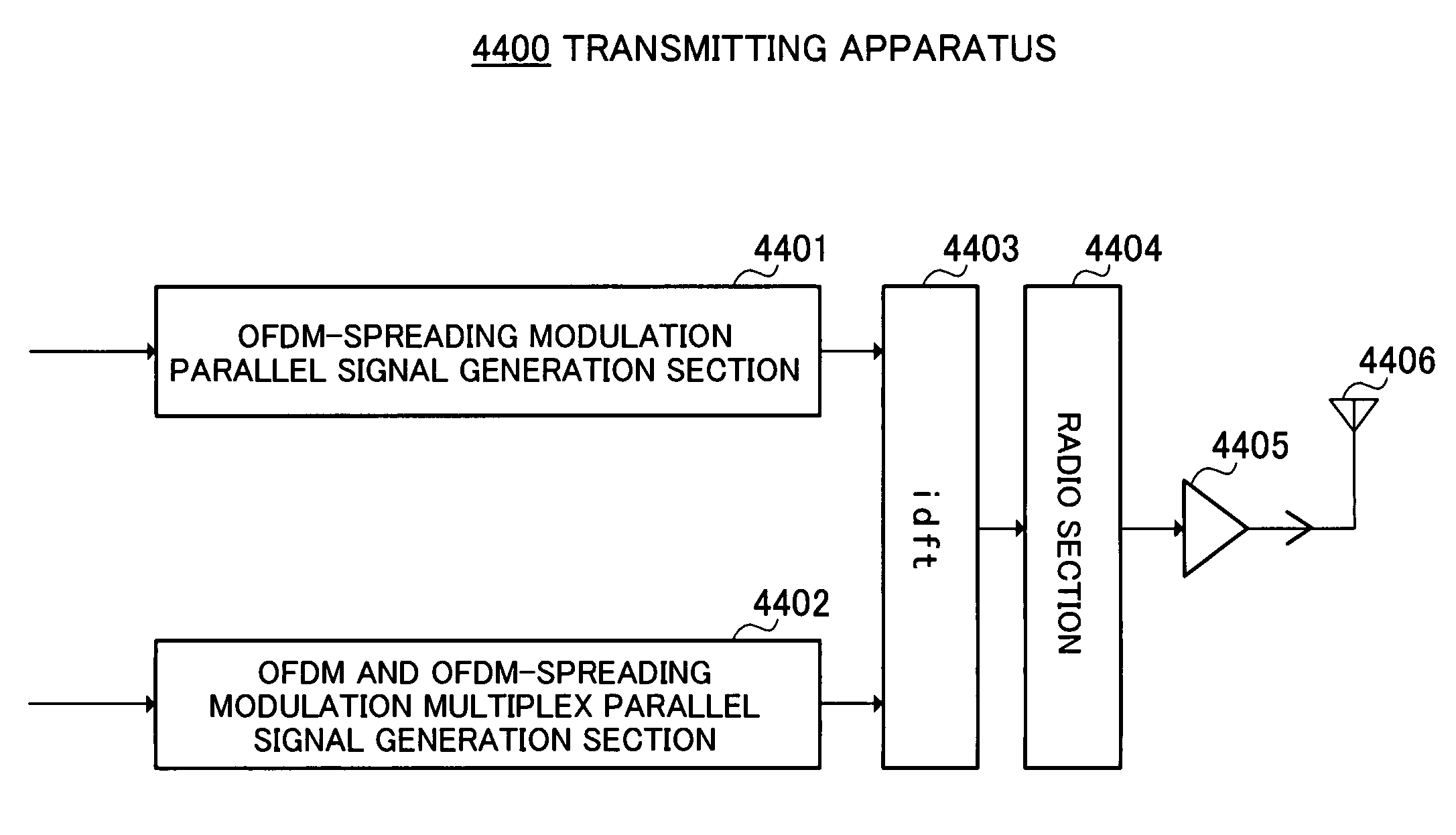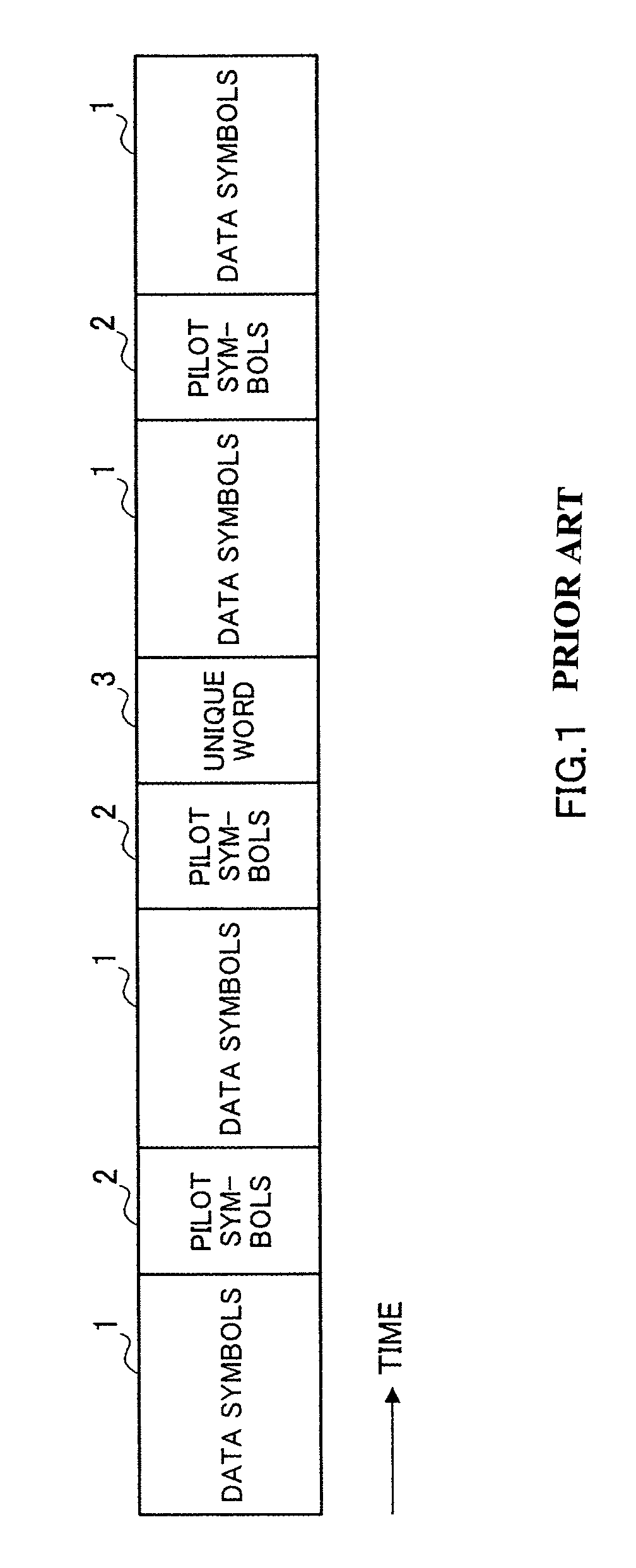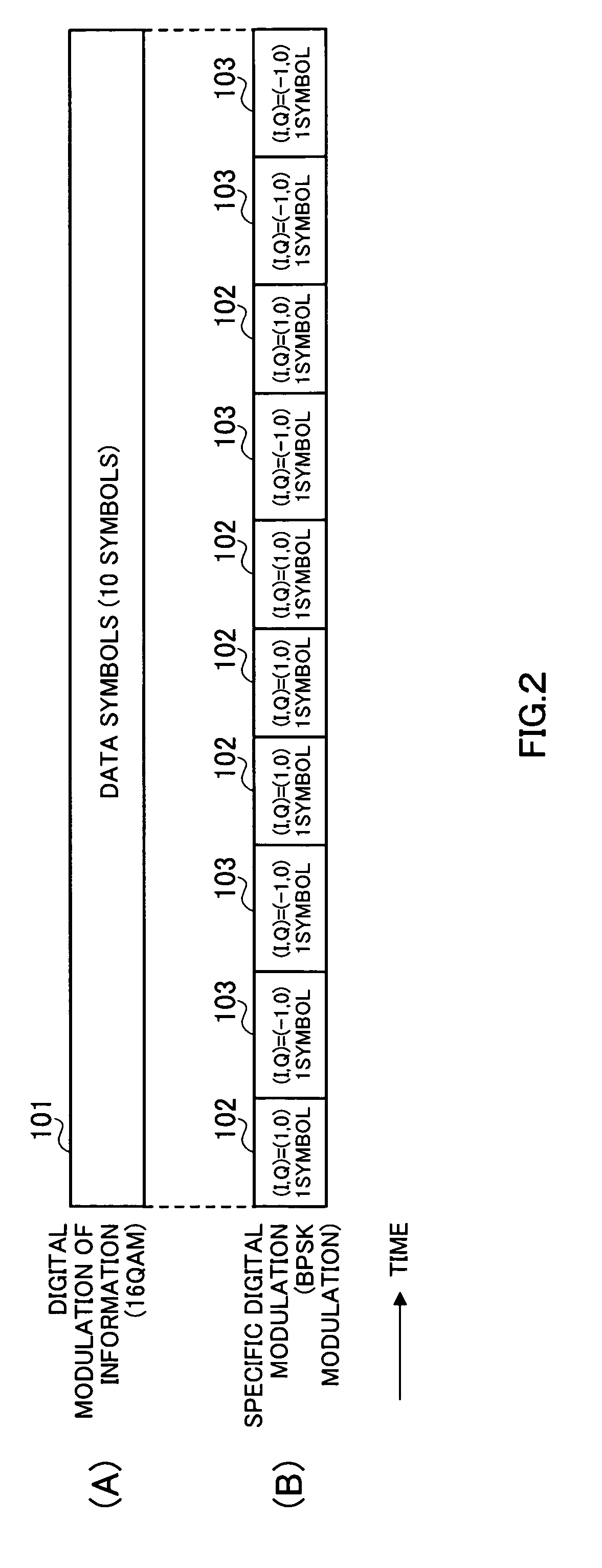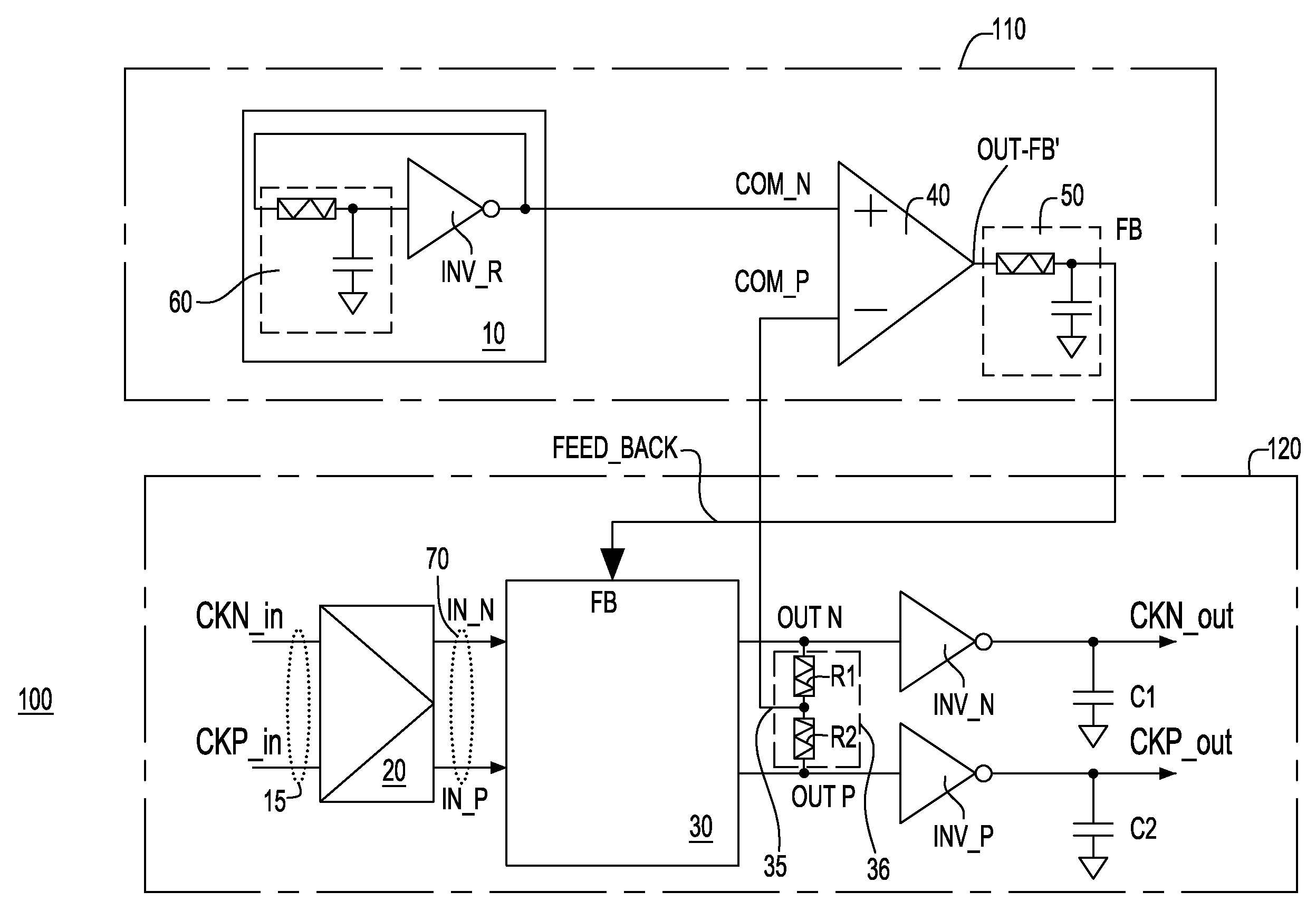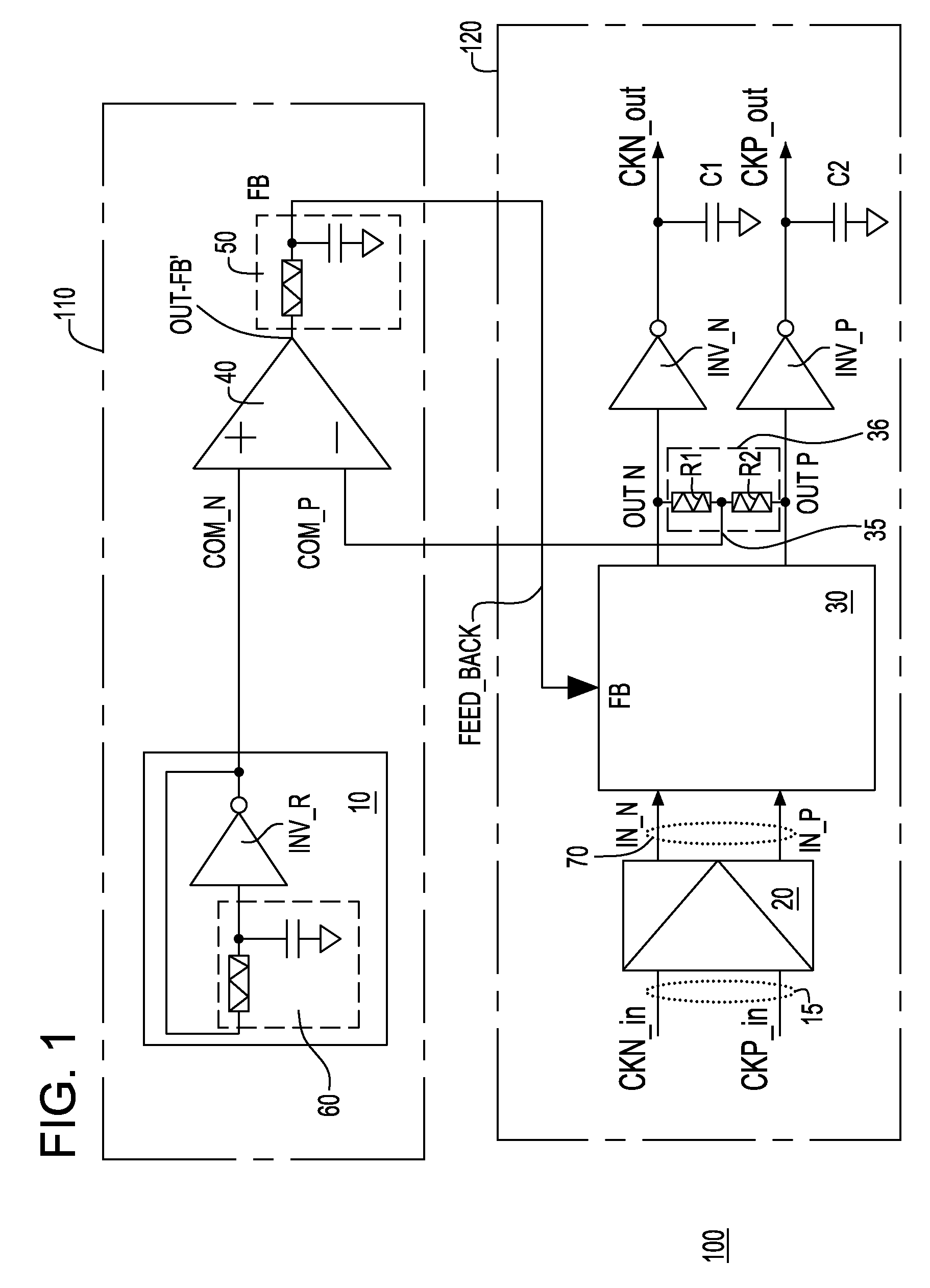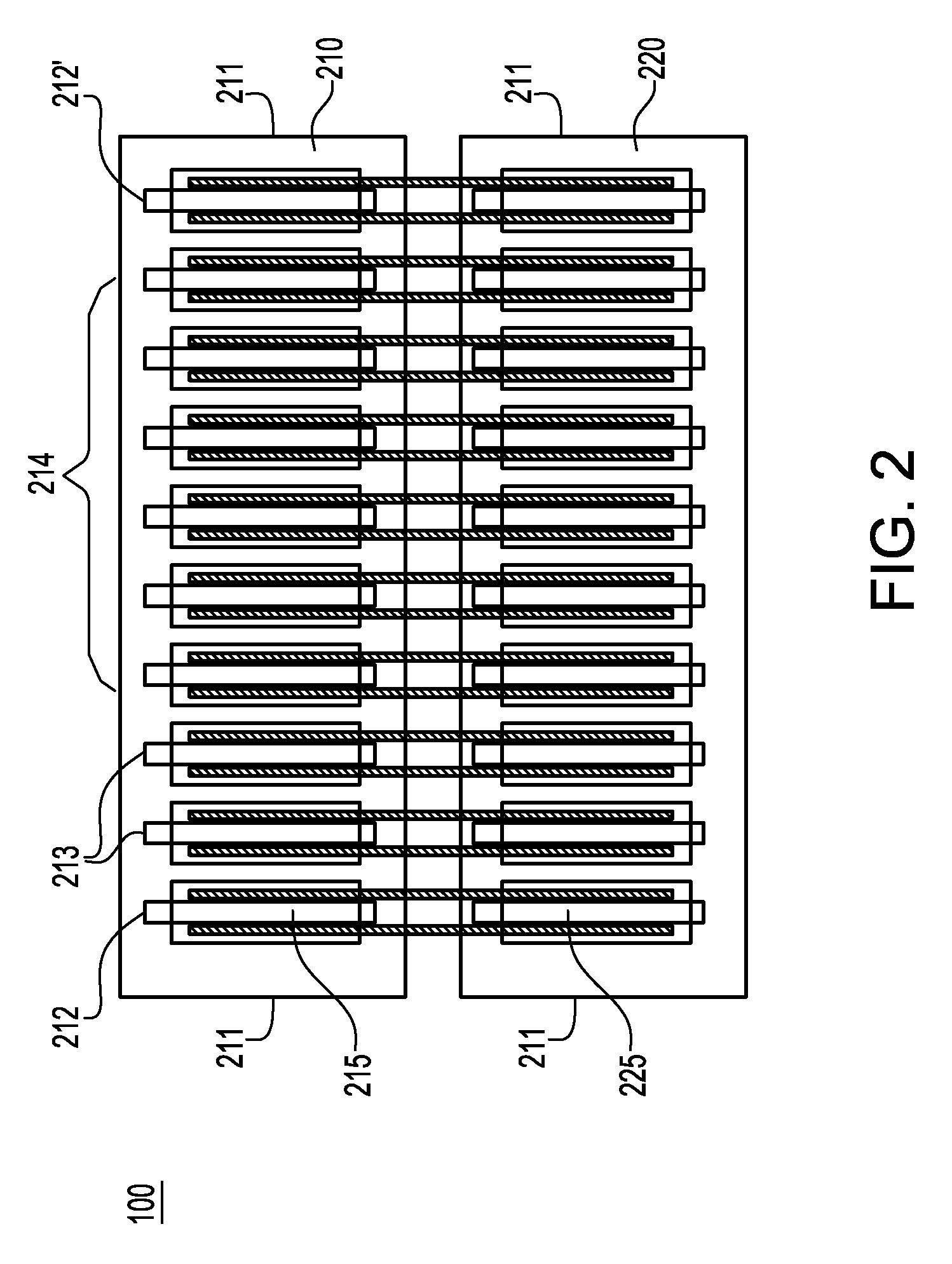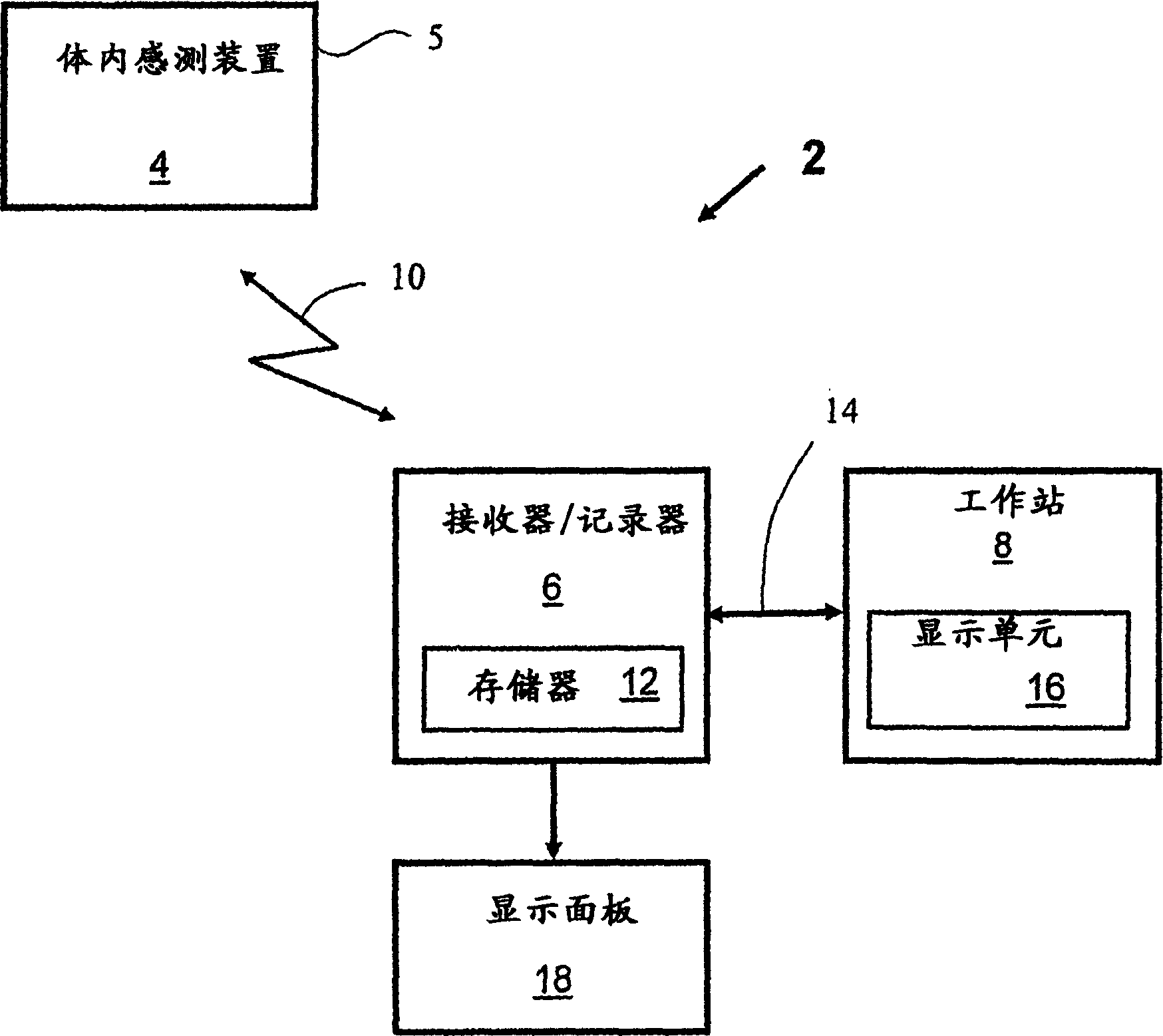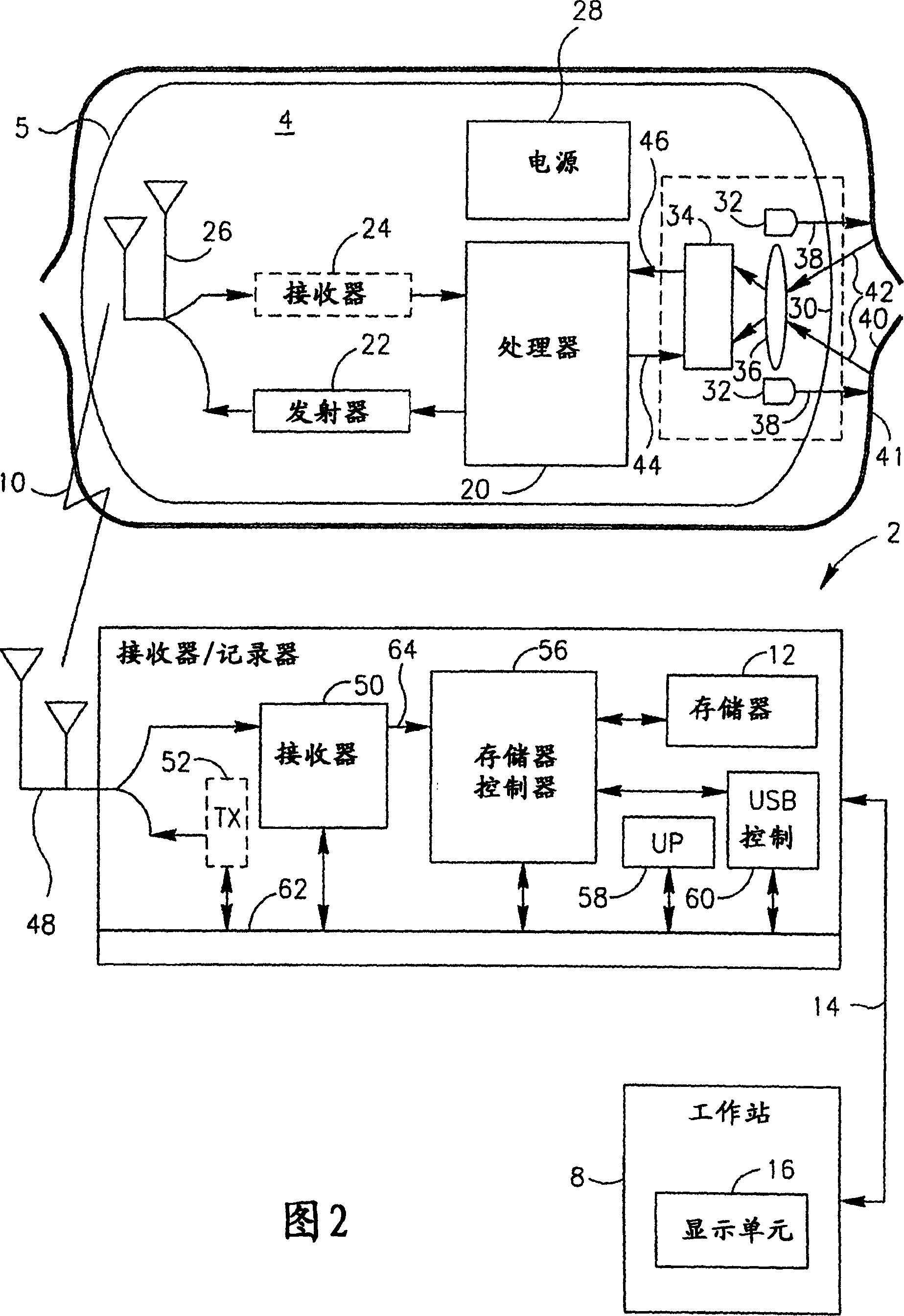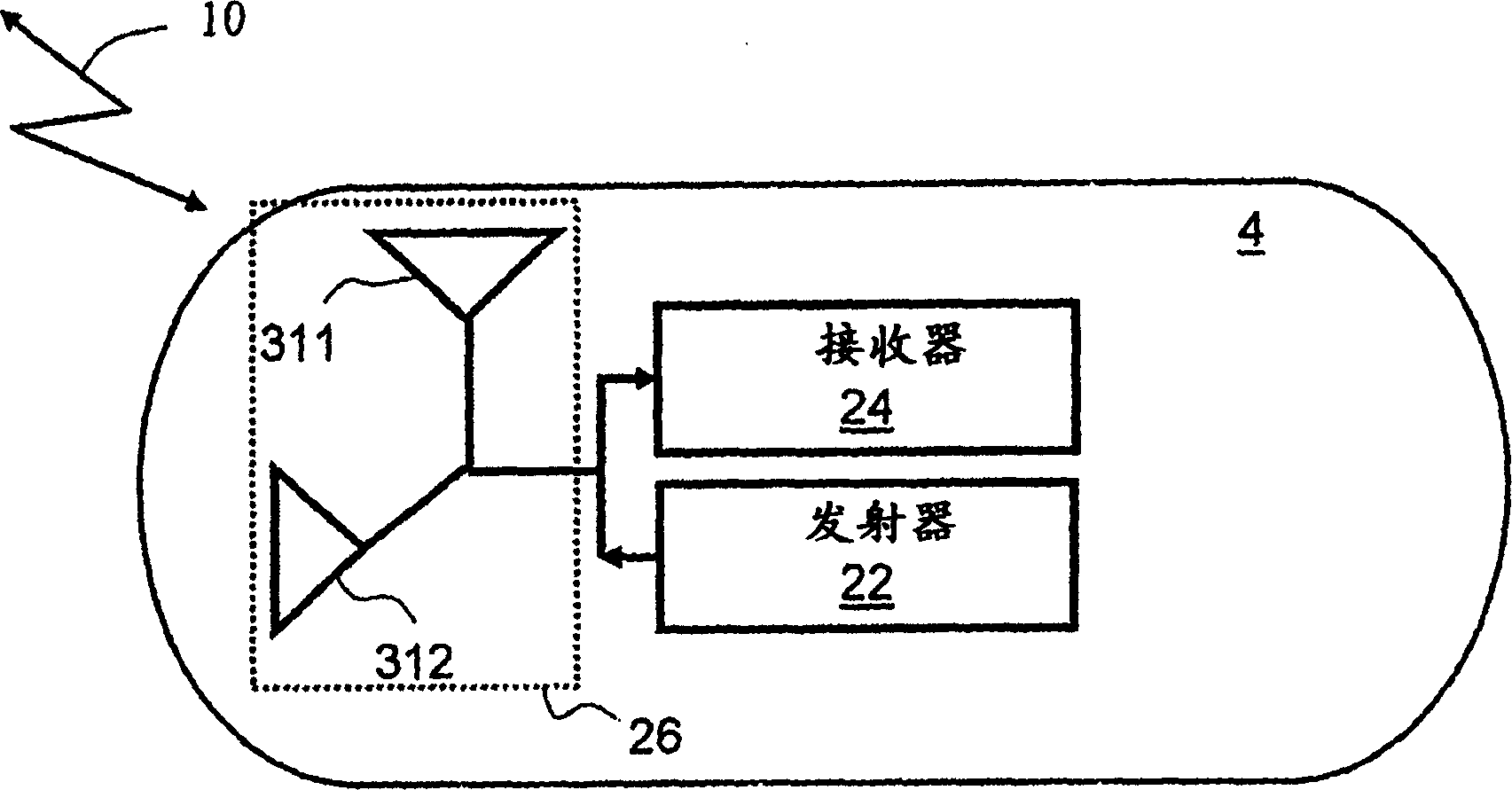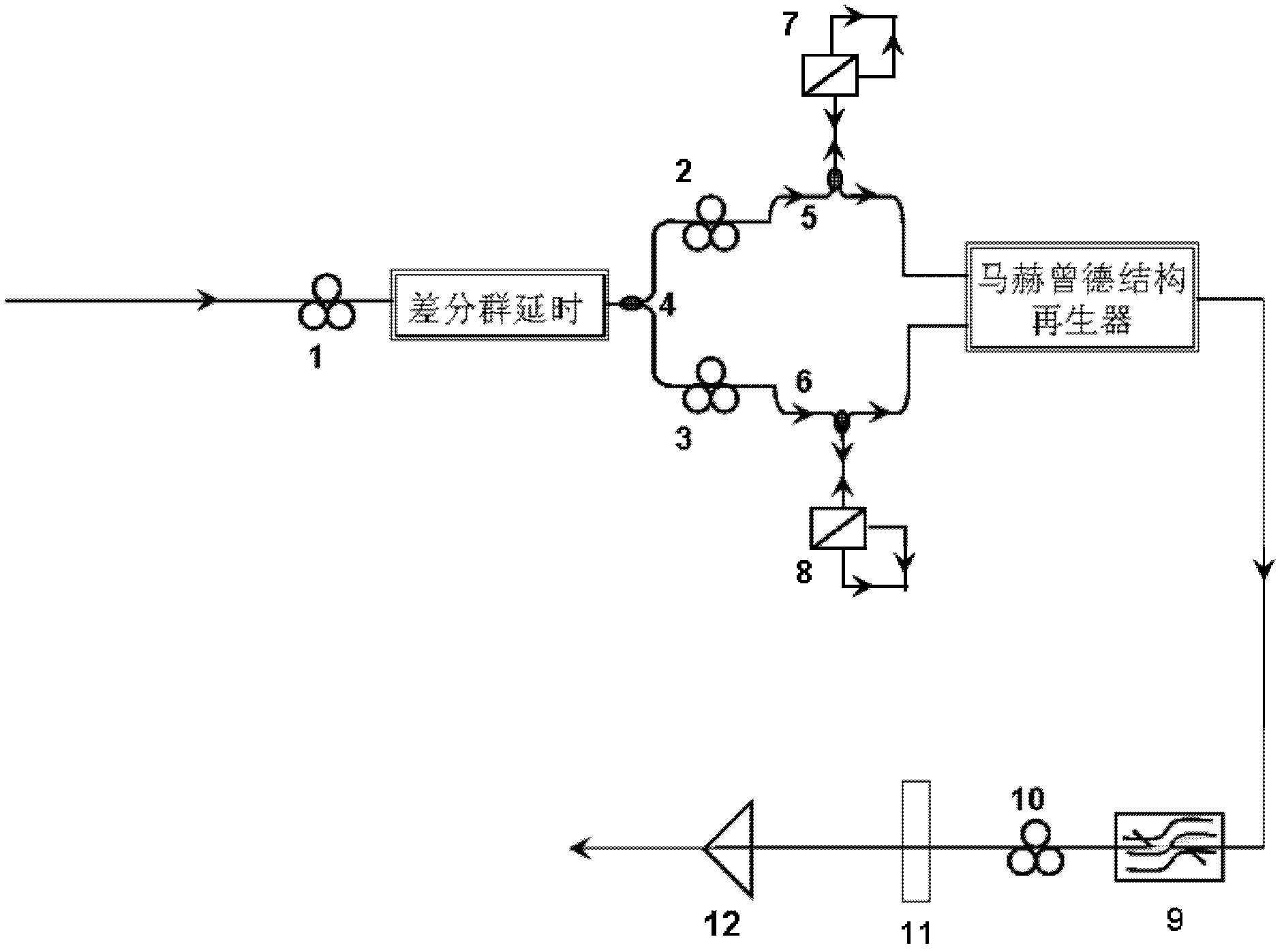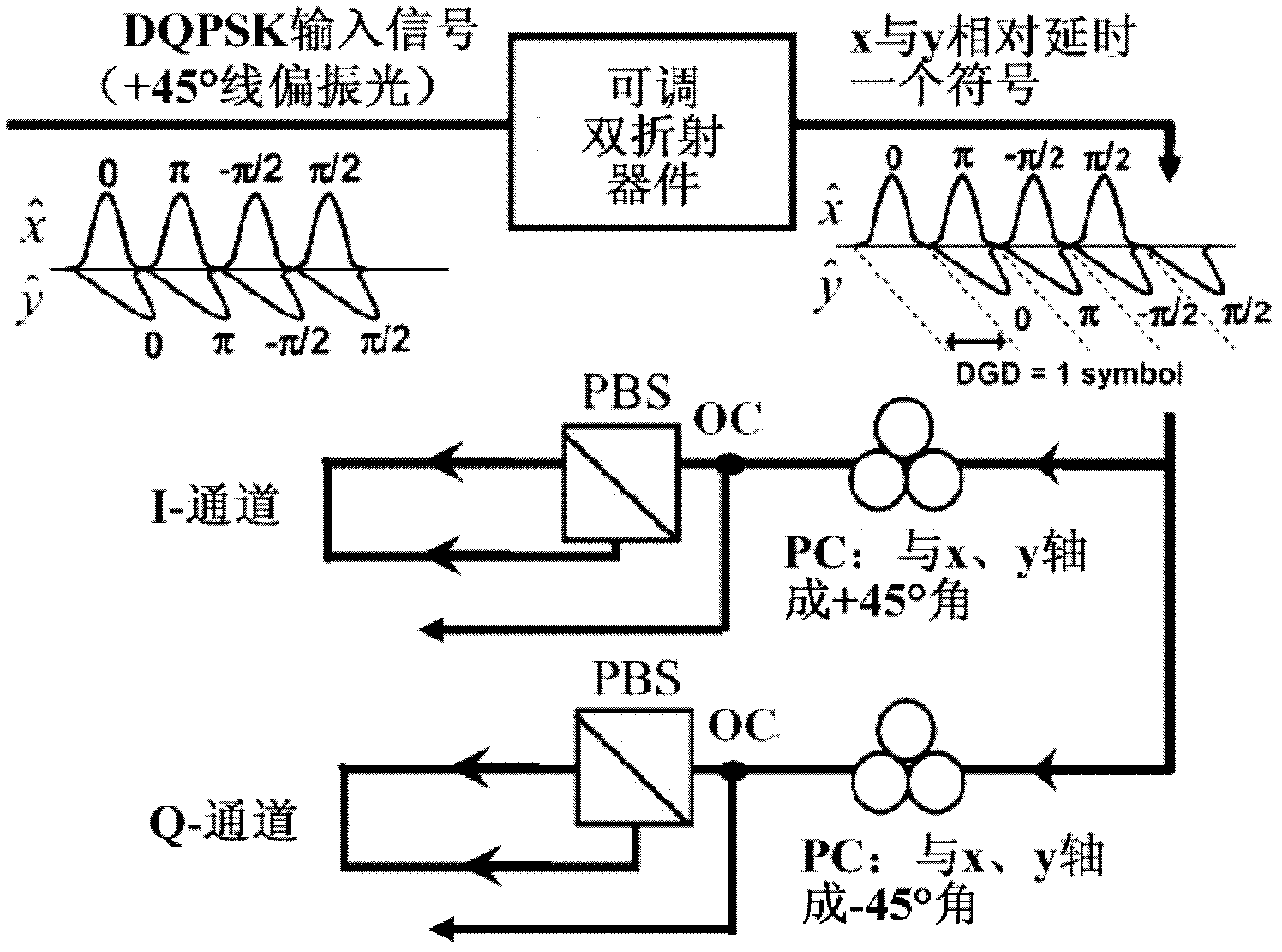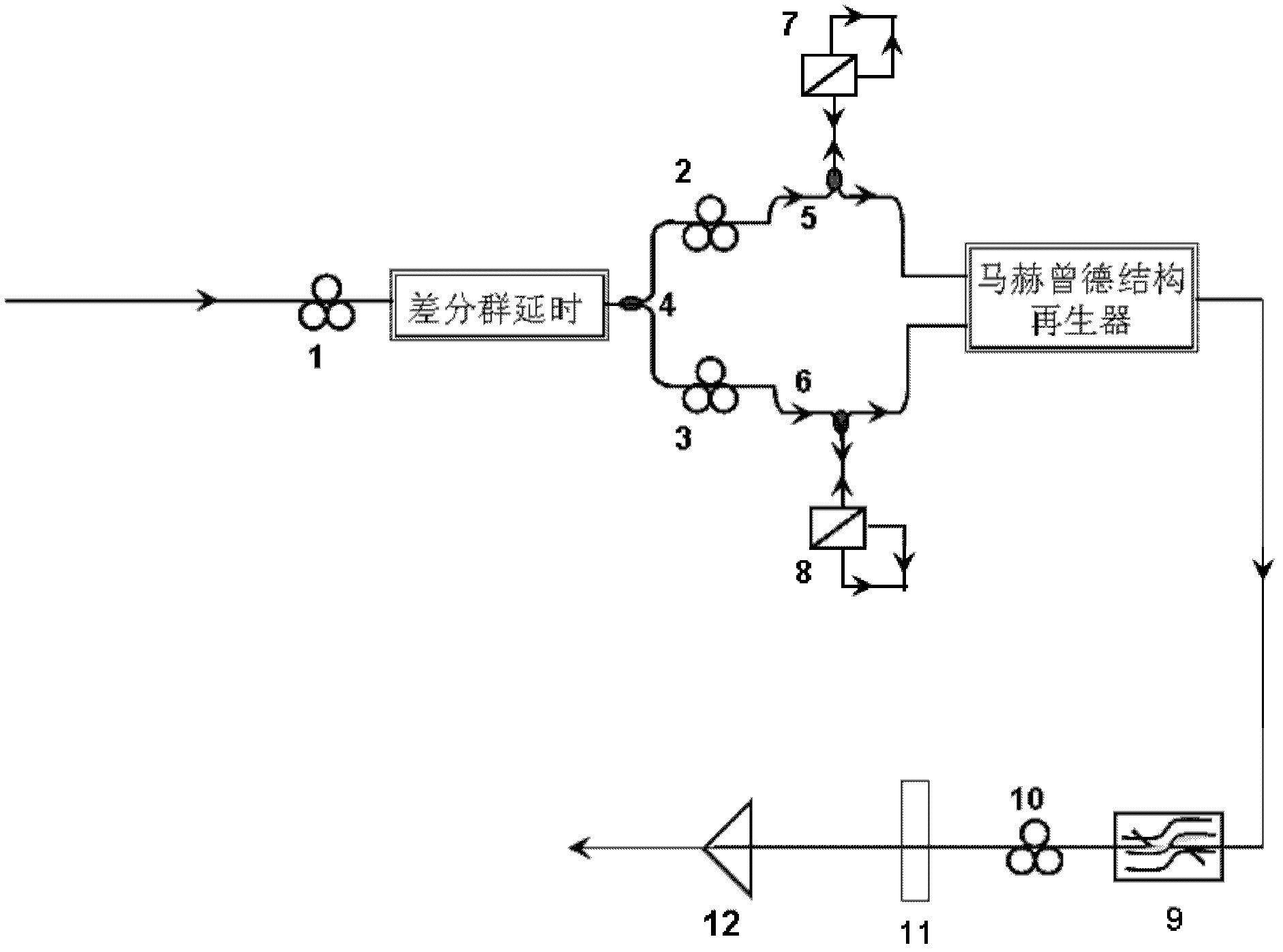Patents
Literature
Hiro is an intelligent assistant for R&D personnel, combined with Patent DNA, to facilitate innovative research.
202 results about "Signal regeneration" patented technology
Efficacy Topic
Property
Owner
Technical Advancement
Application Domain
Technology Topic
Technology Field Word
Patent Country/Region
Patent Type
Patent Status
Application Year
Inventor
In telecommunications, signal regeneration is signal processing that restores a signal, recovering its original characteristics. The signal may be electrical, as in a repeater on a T-carrier line, or optical, as in an OEO optical cross-connect.
Successive interference cancellation in a generalized RAKE receiver architecture
A receiver includes a receiver circuit that decodes multiple signals of interest contained in a composite received signal. The receiver comprises a plurality of successive signal detection stages to detect respective signals contained in the composite received signal. Each detection circuit comprises at least one Generalized RAKE combining circuit and generates a detected signal at an output. Each but the last stage further comprises a signal regeneration circuit that cancels the signal of interest detected by that stage from a stage input signal provided to the next stage such that successive detection of the signals of interest benefits from cumulative cancellation of the previously detected signals.
Owner:OPTIS WIRELESS TECH LLC
Synchronous demodulation apparatus of base transceiver station in interim standard-2000 system
ActiveUS7167716B2Improve sexual functionIncrease the number ofError preventionModulated-carrier systemsSignal regenerationEngineering
The present invention provides a synchronous demodulation apparatus of a base transceiver station in an Interim Standard-2000 (IS-2000) system, including a first synchronous demodulation unit, a received signal delay unit, an interference signal regeneration unit and a second synchronous demodulation unit. In comparison with an asynchronous demodulation apparatus used in an Interim Standard-95 (IS-95), it is possible for the inventive apparatus to improve a reception function approximately 3dB and ultimately increase the number of subscribers.
Owner:PANTECH CORP
Simplified signal regenerator structure
Systems and methods for reconditioning an optical signal by OE (optical-to-electrical) converting the signal, recovering clock and data information and performing 3R reconditioning to reamplify, retime and reshape the converted electrical signal, and EO converting the signal back to the optical domain while the FEC and / or Framing encoding of the optical signal remains intact. An exemplary apparatus may be configured to include a receiver 302 with an optical-to-electrical converter, an electronic distortion estimation and compensation unit 304, an electrical-to-optical converter 308, and a transmitter 310.
Owner:CIENA
Magnetic resonance imaging apparatus
ActiveUS20100117649A1Electric/magnetic detectionMeasurements using NMRCarrier signalSignal regeneration
An apparatus including a probe unit and a control / imaging unit, the probe unit including a converter converting a sampled magnetic-resonance signal into a digital signal, a first transmitter converting the digital signal into a first-radio signal, a first receiver receiving a second-radio signal, and performing detection on the second-radio signal to obtain a first-received signal, and a clock-regeneration unit regenerating a clock component from the first-received signal to generate a regenerated-clock signal, the control / imaging unit including a second-receiver receiving the first-radio signal to obtain a second-received signal, a data processor performing data processing on the second-received signal in synchronism with a reference-clock signal to obtain a video signal, and a second transmitter including a modulator modulating a carrier wave using the reference-clock signal, the second transmitter converting the reference-clock signal into the second-radio signal and transmitting the second-radio signal through the second-wireless channel.
Owner:TOSHIBA MEDICAL SYST CORP
Successive interference cancellation in a generalized RAKE receiver architecture
A receiver includes a receiver circuit that decodes multiple signals of interest contained in a composite received signal. The receiver comprises a plurality of successive signal detection stages to detect respective signals contained in the composite received signal. Each detection circuit comprises at least one Generalized RAKE combining circuit and generates a detected signal at an output. Each but the last stage further comprises a signal regeneration circuit that cancels the signal of interest detected by that stage from a stage input signal provided to the next stage such that successive detection of the signals of interest benefits from cumulative cancellation of the previously detected signals.
Owner:OPTIS WIRELESS TECH LLC
Optical transmission network with asynchronous mapping and demapping and digital wrapper frame for the same
ActiveUS7286487B2Reduce manufacturing costLow costError preventionFrequency-division multiplex detailsTransmission protocolLine rate
An optical transmission network is inherently asynchronous due to the utilization of a variable overhead ratio (V-OHR). The network architecture makes extensive use of OEO regeneration, i.e., deals with any electronic reconditioning to correct for transmission impairments, such as, for example, FEC encoding, decoding and re-encoding, signal reshaping, retiming as well as signal regeneration. The optical transmission network includes a plesiochronous clocking system with intermediate nodes designed to operate asynchronously with a single local frequency clock without complicated network synchronization schemes employing high cost clocking devices such as phase locked loop (PLL) control with crystal oscillators and other expensive system components. The asynchronous network operation provides for asynchronous remapping or remapping of any client signal utilizing any type of transmission protocol where the line side rate or frequency is always the same frequency for the payload signal and the local frequency at an intermediate node is set to a local reference clock in accordance with the payload type and its overhead ratio, i.e., the overhead ratio is varied to meet the desired difference between the line rate or frequency and the desired client signal payload rate or frequency for the particular client signal payload type.
Owner:INFINERA CORP
High performance wireless receiver with cluster multipath interference suppression circuit
InactiveUS20050063500A1Radio transmissionTransmitter/receiver shaping networksSlide windowMultipath interference
A receiver which suppresses inter-cluster multipath interference by processing an impulse channel response consisting of two multipath clusters, each cluster having groups of signals with multiple delays. In one embodiment, the receiver includes a single antenna and parallel-connected delay units used to align the groups of signals before being input into respective sliding window equalizers. The outputs of the equalizers are combined at chip level via a combiner which provides a single output. In another embodiment, a Cluster Multipath Interference Suppression (CMIS) circuit is incorporated into the receiver. The CMIS circuit includes a hard decision unit and a plurality of signal regeneration units to generate replicas of the multipath clusters. The replicas are subtracted from the respective outputs of the delay units and the results are input to the respective sliding window equalizers. In another embodiment, multiple antennas are used to receive and process the clusters.
Owner:INTERDIGITAL TECH CORP
Method of testing an information recording medium and an information recording medium testing apparatus
InactiveUS20050142324A1Preventing information recordedAvoid distributingCombination recordingLayered productsComputer hardwareSignal quality
A method of testing an information recording medium includes a step of attaching an artificial fingerprint to an incident surface of an information recording medium, a step of reproducing a signal recorded in an attached region to which the artificial fingerprint has been attached, and a step of judging whether the information recording medium is defective or non-defective based on a signal quality of the reproduced signal. An information recording medium testing apparatus includes a fingerprint attaching unit that attaches an artificial fingerprint onto an incident surface of an information recording medium, a signal reproducing unit that reproduces a signal recorded in an attached region to which the artificial fingerprint has been attached, and a judging unit that judges whether the information recording medium is defective or non-defective based on a signal quality of the reproduced signal.
Owner:TDK CORPARATION
Optical signal reception device
InactiveUS20060193640A1Quickly identify the signal reception statePerform the frame synchronization pull-in operations quicklyFibre transmissionPhase-modulated carrier systemsMultiplexingMultiplexer
An optical signal reception device is disclosed that receives and demodulates an optical signal modulated by DQPSK and performs logical inversion and other controls to transit to the object reception state. The signal reception device includes a front end including a delay interferometer and an opto-electric conversion element that receive the DQPSK optical signal and convert it into an in-phase signal and an orthogonal signal, a clock regenerator that regenerates a clock signal based on the in-phase signal and the orthogonal signal, a multiplexer that multiplexes the in-phase signal and the orthogonal signal, a reception frame processing unit that detects frame synchronization based on the signal multiplexed by the multiplexer and de-maps the received frames, and a controller that, based on out-of-frame-synchronization information (LOF / OOF) from the reception frame processing unit, performs logical inversion control in the clock regenerator, multiplexing timing control in the multiplexer, and controls the delay interferometer in the front end so as to transit to the object reception state.
Owner:FUJITSU LTD
Optical receiver for regeneration of optical signal
InactiveUS20070081827A1Amplifiers controlled by lightElectromagnetic transmittersSignal regenerationDecision threshold
An optical receiver includes: a converting unit that converts an optical signal into an electrical signal; an amplifying unit that amplifies the electrical signal; a regenerating unit that regenerates the amplified electrical signal; a correcting unit that performs correction of an error included in the regenerated electrical signal; a monitoring unit that performs monitoring of an optical current flowing through the converting unit; and a control unit that calculates a decision threshold based on a result of the correction and a result of the monitoring.
Owner:FUJITSU LTD
Illumination with optical communication method
InactiveUS20080138085A1Increase practicabilityImprove convenienceClose-range type systemsOriginal dataSignal regeneration
The present invention provides an illumination with optical communication method that includes the following steps: a), establishing a signal source; b), encoding and transmitting of signal; c), actuating an LED to emit light; d), detecting light variation; e), analyzing, decoding and signal regeneration, which enables the recovery of original data for use, saving or playing back thereof. Basing on such a method, a light illumination system with optical communication capability can be established.
Owner:FORMOLIGHT TECH
Communication method and system with combination of electric wire communication and light communication
ActiveCN102820909ARealize high-speed signal transmissionLow costMultiplex system selection arrangementsPower distribution line transmissionPower line networkEngineering
The invention provides a communication method with combination of electric wire communication and light communication. The communication method comprises the following steps that: S1, a transmitting terminal performs code modulation, framing and analog front end treatment on a digital signal to be transmitted according to a predetermined transmission mode, so that a transmitting signal is obtained and coupled to an electric power circuit for transmission; S2, a transfer terminal extracts an electric signal through a coupler and then delivers the electric signal to a light emitting diode (LED); after the automatic gain control process, a voltage signal is converted to a current signal by an LED driving unit to perform light intensity modulation on the LED; S3, a receiving terminal receives the light signal through a photoelectric detector and then converts the light signal to an electric signal according to the light intensity; the transmission digital signal is obtained through the analog front end process, the synchronization, demodulation and decoding. By adopting a generic technology, the seamless combination of a power line network and the LED light communication is achieved, two signals are combined into one; the electric signal transmitted by the electric power circuit can be emitted out in a manner of wireless light communication through the LED without signal regeneration, so that the wideband high-speed signal transmission is implemented.
Owner:TSINGHUA UNIV +1
Signal regenerator
InactiveUS6028898AImpose constraintAcquire the threshold and phase characteristics of a signal very rapidlyPulse automatic controlDc level restoring means or bias distort correctionDigital signal processingContinuous data
The invention seeks to provide an improved, bandwidth-efficient method and apparatus for acquiring and tracking bursts of data, or continuous data, of varying and unpredictable amplitude, extinction ratio, and phase. The system avoids the use of digital signal processing which is not practical at high data signal rates. The system also obviates encoding of the data signal using a line code, thereby extending the existing technology to give a significant increase in data throughput for the same available bandwidth. The system may treat acquisition of each data burst, comprising alternate synchronisation parts and data parts, ab initio.
Owner:NORTEL NETWORKS LTD
Optically controlled optical PAM signal regeneration device
InactiveCN106972890AFlexible designTime-division multiplexElectromagnetic transmittersOptical clockSignal regeneration
The invention discloses an optically controlled optical PAM signal regeneration device comprising a power adapting unit, an optical clock control unit and a PAM reshaping unit, wherein the PAM reshaping unit is the core of a regenerator and is composed of a Mach-Zehnder interferometer MZI and a highly nonlinear fiber ring NOLM, for a to-be-regenerated degraded optical PAM signal, the level matching between the input degraded optical PAM signal and the PAM reshaping unit is accomplished by the power adapting unit, the optical clock signal power and the delay output by the optical clock control unit and a phase shifter in the MZI structure are adjusted, so that the PAM reshaping unit works normally, the loss coefficient, the optical fiber length, the nonlinear coefficient and other parameters of a highly nonlinear optical fiber in the NOLM structure, and the coupling coefficients of front and back couplers in the MZI structure are changed to design PAM reshaping units with different level numbers, and then the regeneration of the degraded optical PAM signal is accomplished. Therefore, the optically controlled optical PAM signal regeneration device disclosed by the invention can execute a reshaping and a re-timing function and has the advantages of flexible design of regeneration level numbers.
Owner:UNIV OF ELECTRONICS SCI & TECH OF CHINA
Optical repeating apparatus, optical network system, optical network design supporting apparatus and design supporting method
InactiveUS20050185967A1Wavelength-division multiplex systemsElectromagnetic repeatersSignal regenerationLength wave
The present invention relates to a technique suitable for the enhancement of efficiency of wavelength allocation in an optical network. A transmission capability for each of a plurality of wavelengths available in the optical network is calculated to allocate, to a recommendation optical transmission path in the optical network for a traffic demand from the external, a wavelength having a transmission capability corresponding to a total optics transmission distance of the recommendation optical transmission path on the basis of a result of the calculation. This enables considerably reducing the number of optical repeaters to be disposed, each of which has an electrical signal regeneration function in the optical network, thereby reducing the number of devices, dissipation power, installation area and others in the optical network.
Owner:FUJITSU LTD
Multi-mode mobile satellite communication verification system and verification method
ActiveCN106850084AAchieving packet error rateImplementation LatencyRadio transmissionTransmission monitoringCommunications systemValidation methods
The invention provides a multi-mode mobile satellite communication verification system and verification method. The system comprises a terminal simulator, a user link channel simulator, a receiving multi-beam antenna simulator, a return link processor, a subband exchange processor, a signal regeneration processor, a forward link processor, a transmitting multi-beam antenna simulator, a feeder link channel simulator, a gateway station simulator and a control center, a user segment, a space segment, a ground segment and a mobile satellite communication channel of a mobile satellite communication system are separately simulated. The system can perform demonstration verification on the link performance and the business ability of the mobile satellite communication system adopting a plurality of satellite-borne processing modes and multiple communication systems, and solves the problem that related verification system and method is lacked at present and technical feasibility verification cannot be provided for engineering application. Meanwhile, the invention further discloses a verification method of the verification system.
Owner:CHINA ACADEMY OF SPACE TECHNOLOGY
Power source low-level all-digital amplitude phase control system for high-energy particle accelerator and implementation method thereof
InactiveCN104333375AStable structureLess power consumptionPulse automatic controlLinear acceleratorsDigital signal processingLoop control
The invention relates to a power source low-level all-digital amplitude phase control system for a high-energy particle accelerator and an implementation method thereof. The method comprises cooperation of signal preprocessing, digital signal processing and digital loop control. An analog circuit component of the signal preprocessing comprises six signal processing channels and one clock processing channel integrated on an analog part, wherein each signal processing channel comprises an attenuator, an amplifier and a filter; and the clock processing channel comprises an attenuator, an amplifier, a filter, a frequency multiplier and a frequency divider. A digital circuit component of the digital signal processing and the digital loop control comprises three A / D (Analog to Digital) converters for sampling six paths of signals, one D / A (Digital to Analog) converter for generating signals and one FPGA (Field Programmable Gate Array) for the digital signal processing and the digital loop control, wherein the three A / D converters, the D / A converter and the FPGA are integrated on a digital part. Through adoption of the power source low-level all-digital amplitude phase control system, the physical structural parameters of a super conduction cavity can be controlled, and high stability of the amplitude and phase of a super conduction cavity driving energy field can be kept.
Owner:HOHAI UNIV
Wireless magnetic resonance imaging apparatus generating synchronized clock-regenerated signals and video
ActiveUS8502540B2Electric/magnetic detectionMeasurements using magnetic resonanceCarrier signalSignal regeneration
A magnetic resonance imaging apparatus includes a probe unit and a control / imaging unit. The probe unit includes a converter converting a sampled magnetic-resonance signal into a digital signal, a first transmitter converting the digital signal into a first-radio signal, a first receiver receiving and performing detection on the second-radio signal to obtain a first-received signal, and a clock-regeneration unit regenerating a clock component from the first-received signal to generate a regenerated-clock signals. The control / imaging unit includes a second-receiver receiving the first-radio signal to obtain a second-received signal, a data processor performing data processing on the second-received signal in synchronism with a reference-clock signal to obtain a video signal, and a second transmitter which modulates a carrier wave using the reference-clock signal, converts the reference-clock signal into the second-radio signal, and transmits the second-radio signal through the second-wireless channel.
Owner:TOSHIBA MEDICAL SYST CORP
Frequency converting system
InactiveUS20100220778A1Easy to processImprove dynamic rangeSpectral/fourier analysisElectric signal transmission systemsPhase correctionIntermediate frequency
In a frequency converting system, an input signal x(t) is supplied to a signal branching section for dividing a predetermined frequency domain into M bands, extracting signal components of the respective divided bands. The respective signal components and local signals each including a frequency difference corresponding to a predetermined intermediate frequency with respect to a center frequency of each band are input to a frequency converting part. The signals of the respective divided bands are converted into signals of intermediate frequency bands each including the predetermined intermediate frequency as the center frequency, the conversion outputs are sampled by using a common clock signal, whereby the conversion outputs are converted into digital signals. Further, after being subjected to phase correction processing, the digital signals are subjected to frequency conversion and combination processing by a signal regeneration part.
Owner:ANRITSU CORP
Signal regeneration device, optical receiver, and signal processing method
InactiveUS20070127929A1Improve clock accuracyImprove receiver sensitivityEqualisersPhase-modulated carrier systemsDifferential phaseData signal
A signal regeneration device which makes an extracted clock signal highly accurate while maintaining superior receiving sensitivity. To this end, a device of the present invention is configured to have a branch section for branching an input electrical signal which has been demodulated from a differential phase-shift modulated state; a first filter for equalizing a waveform of one of the demodulated electrical signals branched by the branch section; a clock recovery section for recovering a clock signal from the demodulated electrical signal whose waveform has been equalized by the first filter; and a data regeneration section for regenerating a data signal from a remaining one of the demodulated electrical signals branched by the branch section and from a clock signal recovered by the clock recovery section.
Owner:FUJITSU LTD
Method, system and device for protecing long-reach passive optical network
ActiveUS20100119228A1Improve LR-PON system reliabilityImprove reliabilityLaser detailsTransmission monitoringSignal regenerationSystem protection
A method, system and device for protecting a Long Reach Passive Optical Network (LR-PON) system are provided. The Electrical Relay (E-R) device receives the optical signal transmitted on two fiber transmission paths by the Optical Line Terminal (OLT) or Optical Network Unit (ONU) on one side, performs optical-to-electrical (O / E) conversion, signal regeneration, and electrical-to-optical (E / O) conversion for the optical signal, and sends the signal to the ONU or the OLT on the other side through the two fiber transmission paths. Through backup of the fiber transmission path, an LR-PON system protection method is provided to improve the reliability of the LR-PON system. The method, system, and device for protecting the LR-PON system under the present invention all support and are compatible with the existing functions of all devices in the existing LR-PON system.
Owner:HUAWEI TECH CO LTD
3R optical signal regeneration
InactiveUS6775481B2Logic circuits using opto-electronic devicesElectromagnetic transmittersSignal regenerationOptical power
An optical signal regeneration device having an interferometric structure with two arms. Each of the arms has a medium, the optical power output of which is variable with the optical power input. The first arm receives, through an input coupler, a continuous wave and the signal to be regenerated. The second arm receives through the input coupler, a continuous wave signal and a clock signal. A filter, centered on the continuous wave wavelength, receives the output signal of the interferometric structure through the coupler. The filter output signal constitutes the regenerated 3R signal.
Owner:RPX CORP
Indoor positioning information push method based on GNSS satellite signal
ActiveCN107607970ANo hardware design changes requiredFast positioningSatellite radio beaconingSmart antennaSignal regeneration
Provided is an indoor positioning information push method based on GNSS satellite signals. The method includes the following steps: (1) arranging a camera device indoors, taking the camera device as acoordinate system original point to divide a to-be-measured room into planar grid coordinate systems, and utilizing a moving object detection technology to obtain two-dimensional coordinate values ofa user in the room; (2) obtaining an actual geological coordinate, time service information and PPS synchronous second pulse information of an antenna through the indoor GNSS satellite signal reception antenna, and combining the two-dimensional coordinate values of the user and the geometrical parameters of the room to perform calculation and obtaining actual geological coordinate values of the user; (3) conducting regeneration of GNSS satellite signals; and (4) through the intelligent antenna technology, forming a wave beam pointing the user and broadcasting the GNSS satellite signals in a corresponding position so that a positioning apparatus of the user resolves the broadcasting position. The GNSS satellite signals are taken as a medium to perform indoor positioning. The method has theadvantages that the precision is high, the speed is fast and a reception apparatus does not need to change or add other pieces of hardware.
Owner:XI AN JIAOTONG UNIV
Full light regeneration method of optical four-phase shift key control signals
InactiveCN101102162APromote regenerationCompared with regeneration, optical-electrical-optical relay regeneration is beneficial toElectromagnetic repeatersPhase shiftedCommunications system
The method comprises: the damaged inputted optical signals are divided into two routes via two output end of optic splitter and coupler; one route of signal is connected to the optic delay line (2) and the non-linear optic signal processor(4); the other route of signal is connected to the optic delay line (3) and the non-linear optic signal processor (5); the non-linear optic signal processor (4) and (5) respectively make phase and amplitude compression for the four phase shift keyed signals orthogonal each other in the angular bisector direction to generate two phase shift keyed signals orthogonal each other; said two route of signals is combined to generate the four phase shift keyed signals via an optical multiplexer. The invention can be used to restore the optical four phase shift keyed signals polluted by noise.
Owner:BEIHANG UNIV
Method and system for suppressing radio communication mutual interference
InactiveCN101052219AImprove anti-interference abilityQuality improvementRadio/inductive link selection arrangementsRadio transmission for post communicationInterference cancellerCommunications system
The invention is used in the interference suppression in co-frequency and adjacent frequency between radio communication systems. In the invention, two systems co-existed all makes signal regeneration; the regenerated signals is sent to a regenerated signal process filter in another system through a wired media; according to requirement of its own system, the filter makes relevant filter process for the regenerated interference signals; the processed signals are re-inputted into the interference eliminator to eliminate the interference signals existed in its own system.
Owner:UNIV OF ELECTRONIC SCI & TECH OF CHINA
Signal reproducing apparatus and method, signal recording apparatus and method, signal receiver and information processing method
InactiveCN1457482AEliminates the possibility of illegal decryptionTelevision system detailsPulse modulation television signal transmissionInformation processingDummy data
A signal (801) of a first code string made through replacing a part of a code string of a predetermined format with dummy data is sent to code string rewriting means (1802) via code string resolution means (1801). A signal (806) of a second code string for complementing the dummy data part in the signal (801) is sent to the code string rewriting means (1802) via control means (1805) and the dummy data in the first code string is rewritten to the second code string. At the time of trial viewing / listening, a signal (802) from the code string resolution means (1801) is selected by a switch (1808), and when the second code string (806) is acquired through content purchase, a signal (803) from the code string rewriting means (1802) is selected by the switch (1808). Thus, trial viewing / listening of a content such as music is made possible while the possibility of decryption is eliminated. By acquiring a relatively small quantity of data, reproduction of a high-quality content is made possible.
Owner:SONY CORP
Transmission device, reception device and radio communication method
ActiveUS7724638B2Without degrading reception qualityTransmission path divisionSecret communicationMultiplexingSignal regeneration
On a transmitting side, a spread modulated signal that has undergone spread spectrum processing and an information modulated signal that has not undergone spread spectrum processing are multiplexed in a same frequency band. On the receiving side, the specific modulated signal is first demodulated by a spread spectrum demodulation section, then a replica signal of the specific modulated signal is generated by a spread spectrum modulated signal regeneration section, and the information signal that has not undergone spread spectrum processing is extracted by eliminating the replica signal from the multiplex signal. Thus, even when a large number of information signals are transmitted in a same frequency band, these signals can be separated and demodulated satisfactorily on the receiving side.
Owner:INTERDIGITAL PATENT HLDG INC
CML to CMOS signal converter
InactiveUS7394283B2Reliability increasing modificationsLogic circuits characterised by logic functionSignal regenerationVoltage reference
A signal regenerator is provided which includes a common mode reference generator and a signal converter circuit. A common mode reference voltage level is generated which is variable in relation to at least one of a process used to fabricate the common mode reference generator, a level of a power supply voltage provided to the common mode reference generator or a temperature at which the common mode reference generator is operated. A signal converter circuit receives a differentially transmitted signal pair including a first input signal and a second input signal and outputs a single-ended output signal representing information carried by the differentially transmitted signal pair. Using a feedback signal from the common mode reference generator, a feedback control block controls a common mode level of the single-ended output signal in accordance with the common mode reference voltage level.
Owner:GOOGLE LLC
Apparatus and method for receiving device selection and combining
An in-vivo communication system comprises an in-vivo transmitting device, multiple receiving devices, a signal selector, and a signal processing device. The signal selector being able to select two or more signals from multiple received signals at the multiple receiving devices, and the signal processing device being able to combine the selected two or more signals to reproduce a transmitted signal. A method of reproducing the transmitted signal from two or more signals selected from multiple received signals.
Owner:GIVEN IMAGING LTD
Method and device for all-optical regeneration of high-speed differential quadrature reference phase shift keying (DQPSK) modulation signal
InactiveCN102305985ASimple structureSolve the problem that DQPSK signal cannot be fully opticalCoupling light guidesElectromagnetic transmissionPhase noiseSignal on
The invention discloses a method and a device for all-optical regeneration of a high-speed differential quadrature reference phase shift keying (DQPSK) modulation signal. The method comprises the following steps of: modulating the DQPSK signal; regenerating an on-off-keying (OOK) signal; and recovering the DQPSK signal. An aggravated DQPSK optical signal on a transmission link enters a demodulation unit of the DQPSK signal; the DQPSK signal is demodulated into the OOK signal, and simultaneously phase noises are converted into intensity noises; then an OOK signal regenerator performs amplituderegeneration on the optical signal; and finally, a polarization controller and a polarizer convert the OOK signal into the DQPSK signal to realize the all-optical regeneration of the DQPSK signal. Bythe method and the device, the all-optical regeneration of the DQPSK signal can be realized, a difficulty in the all-optical regeneration of the DQPSK signal is expected to be overcome, and a probable solution is provided for solving similar problems in high-speed optical signal processing.
Owner:SHANXI DATONG UNIV
Features
- R&D
- Intellectual Property
- Life Sciences
- Materials
- Tech Scout
Why Patsnap Eureka
- Unparalleled Data Quality
- Higher Quality Content
- 60% Fewer Hallucinations
Social media
Patsnap Eureka Blog
Learn More Browse by: Latest US Patents, China's latest patents, Technical Efficacy Thesaurus, Application Domain, Technology Topic, Popular Technical Reports.
© 2025 PatSnap. All rights reserved.Legal|Privacy policy|Modern Slavery Act Transparency Statement|Sitemap|About US| Contact US: help@patsnap.com
